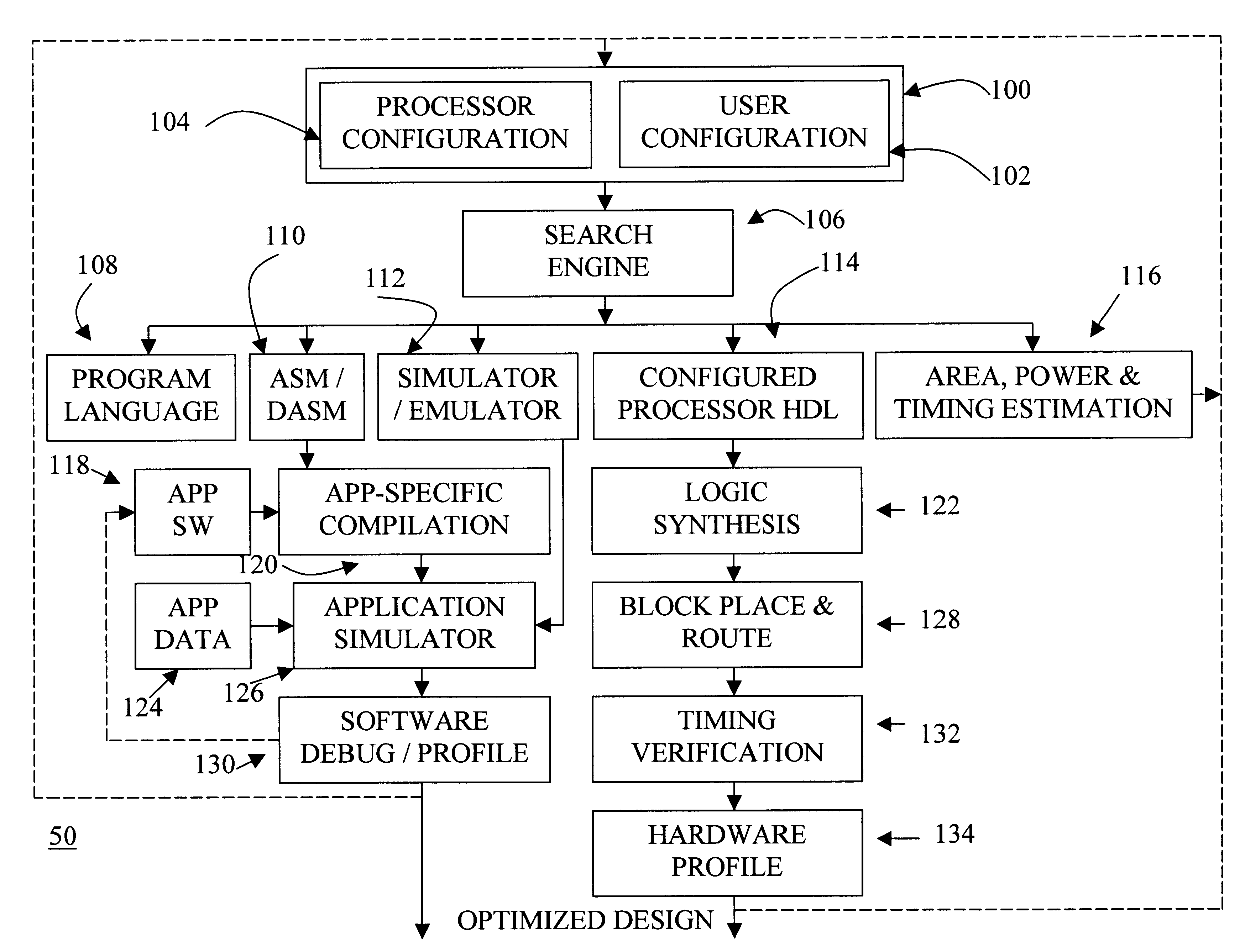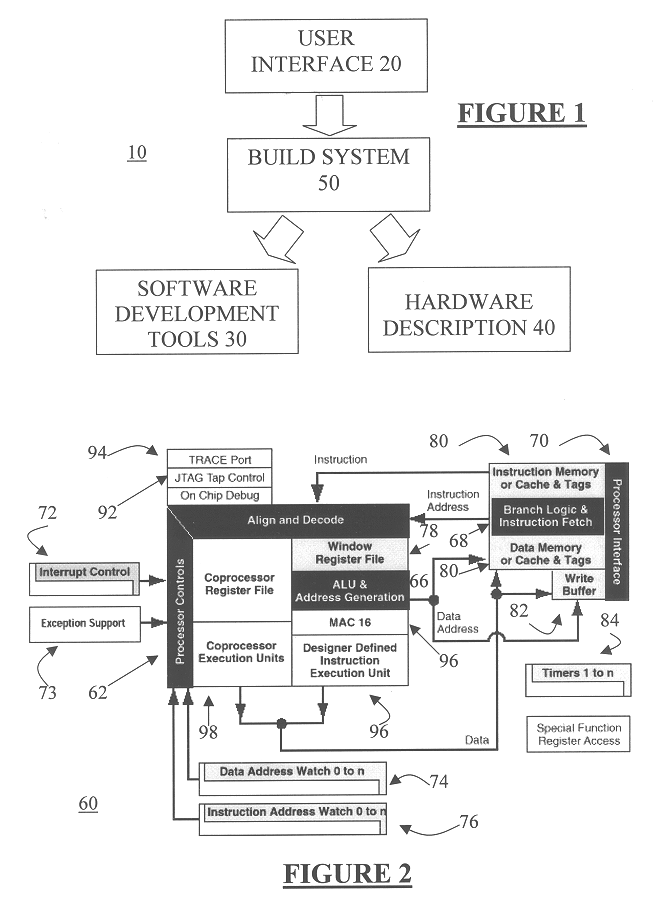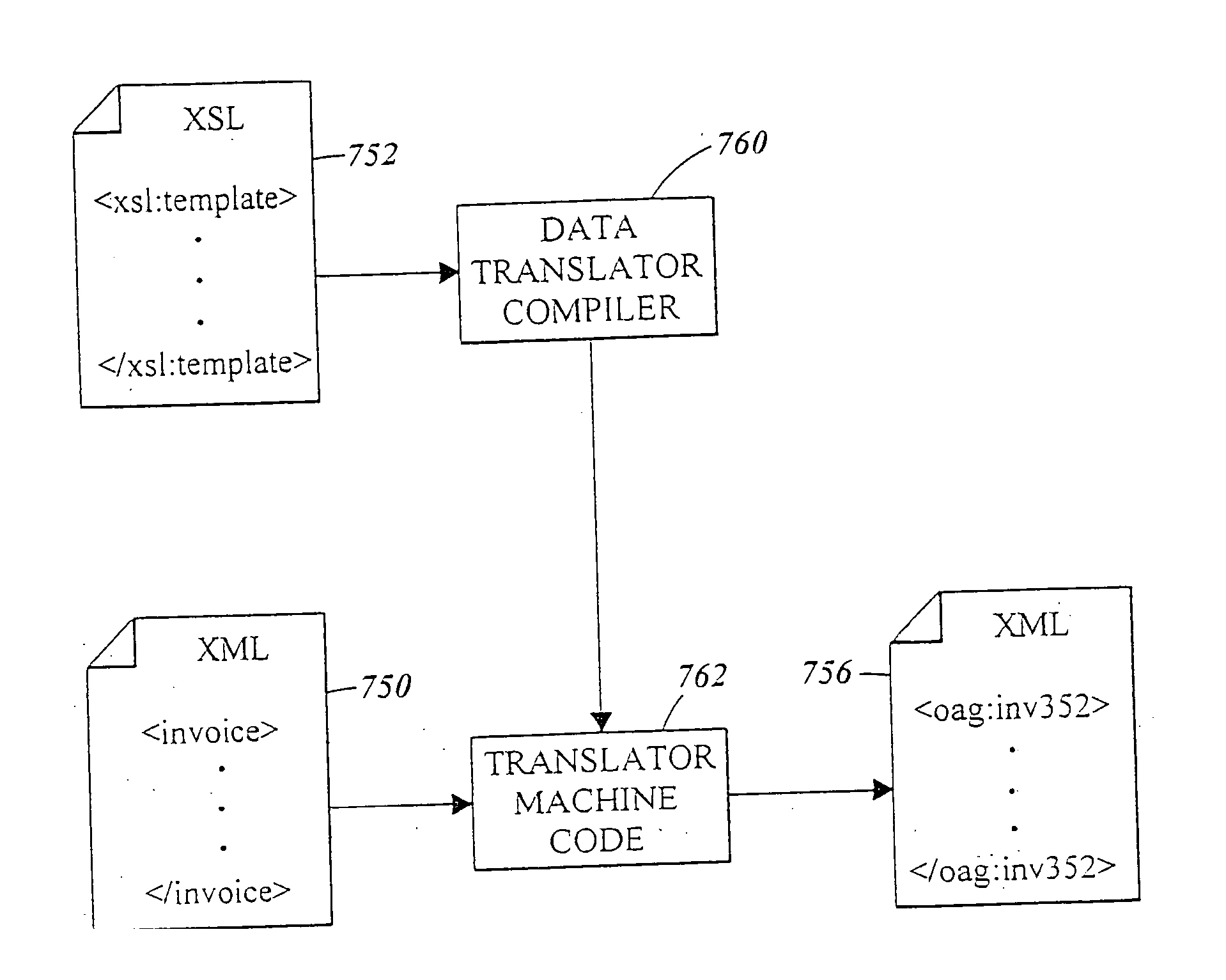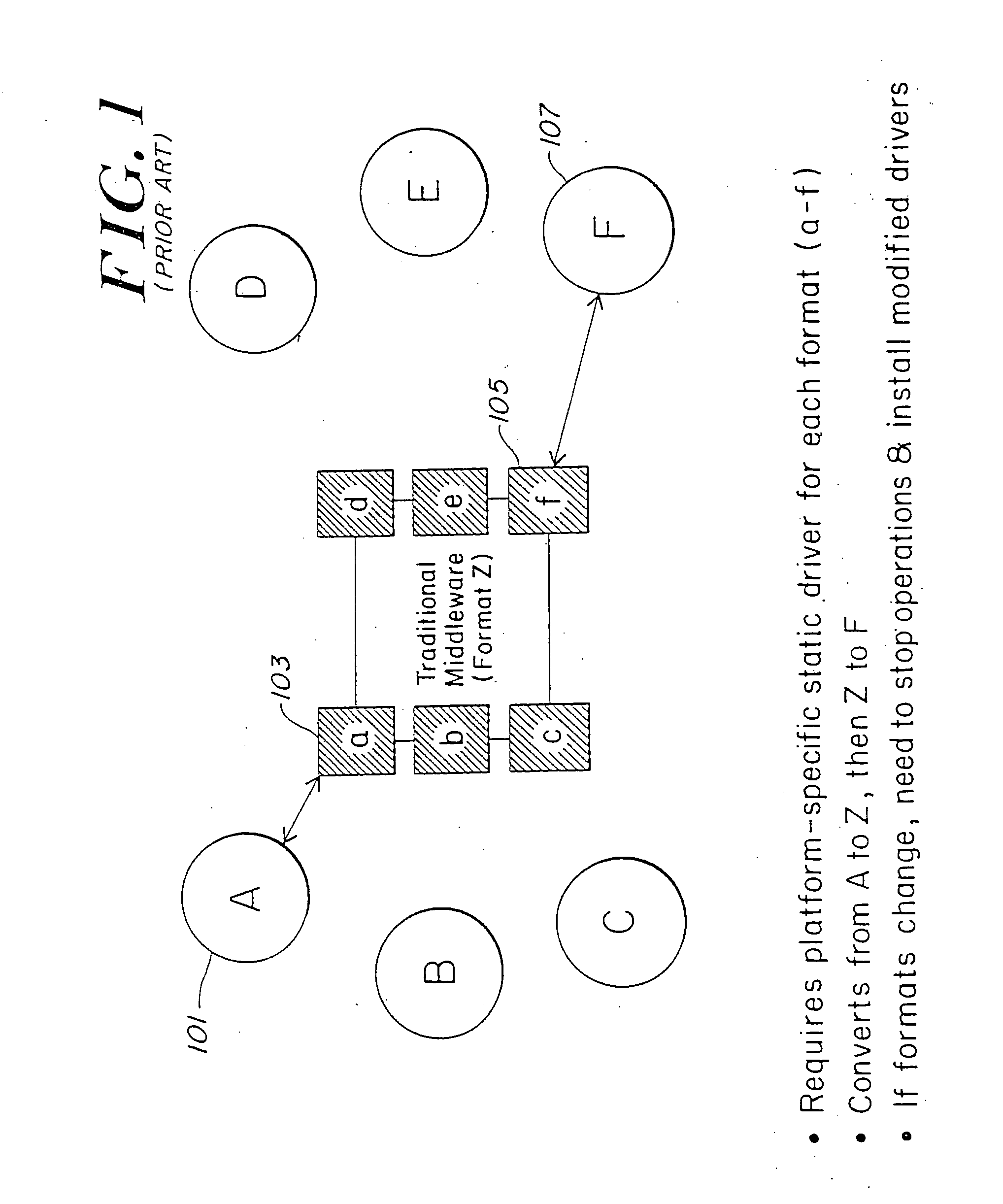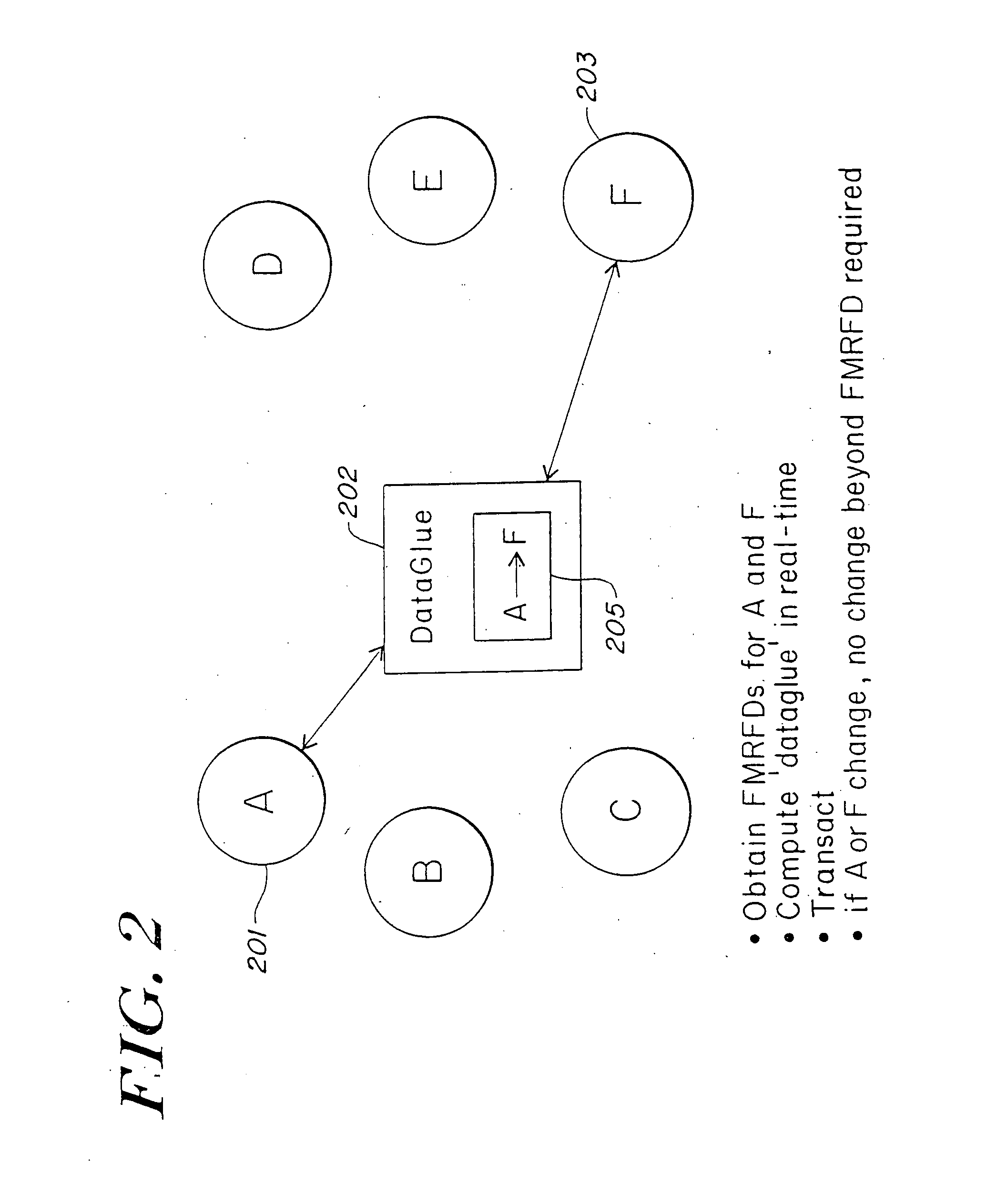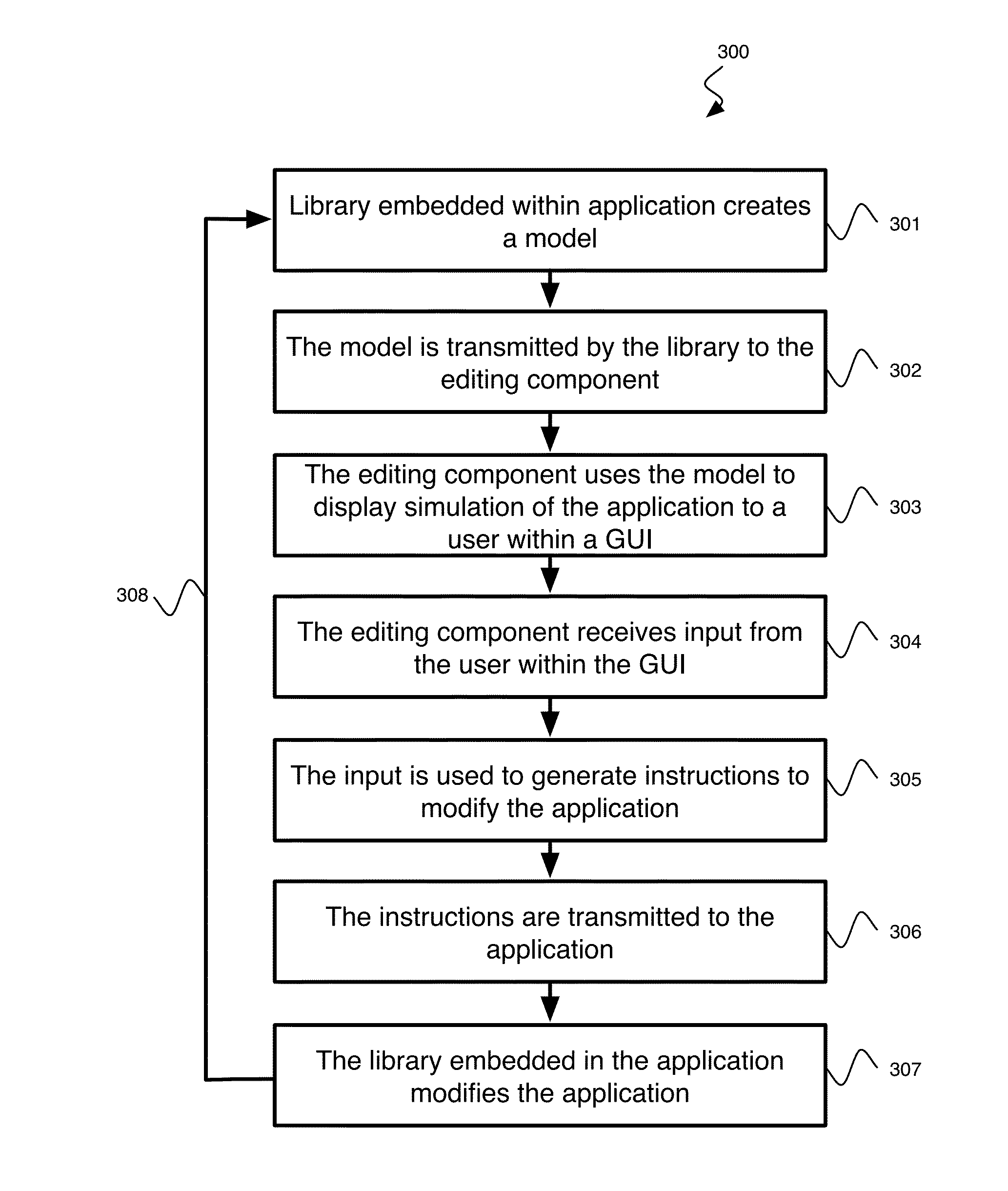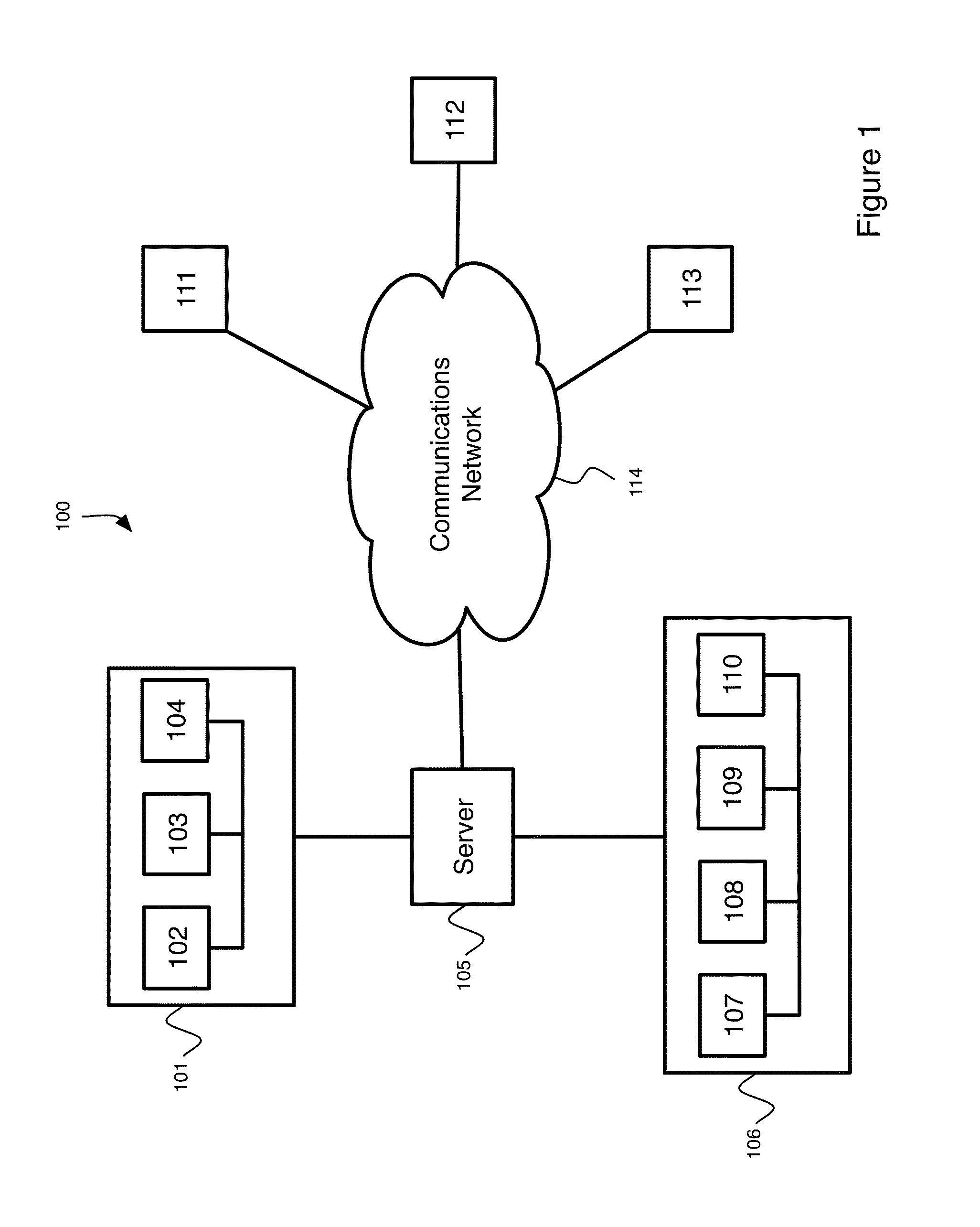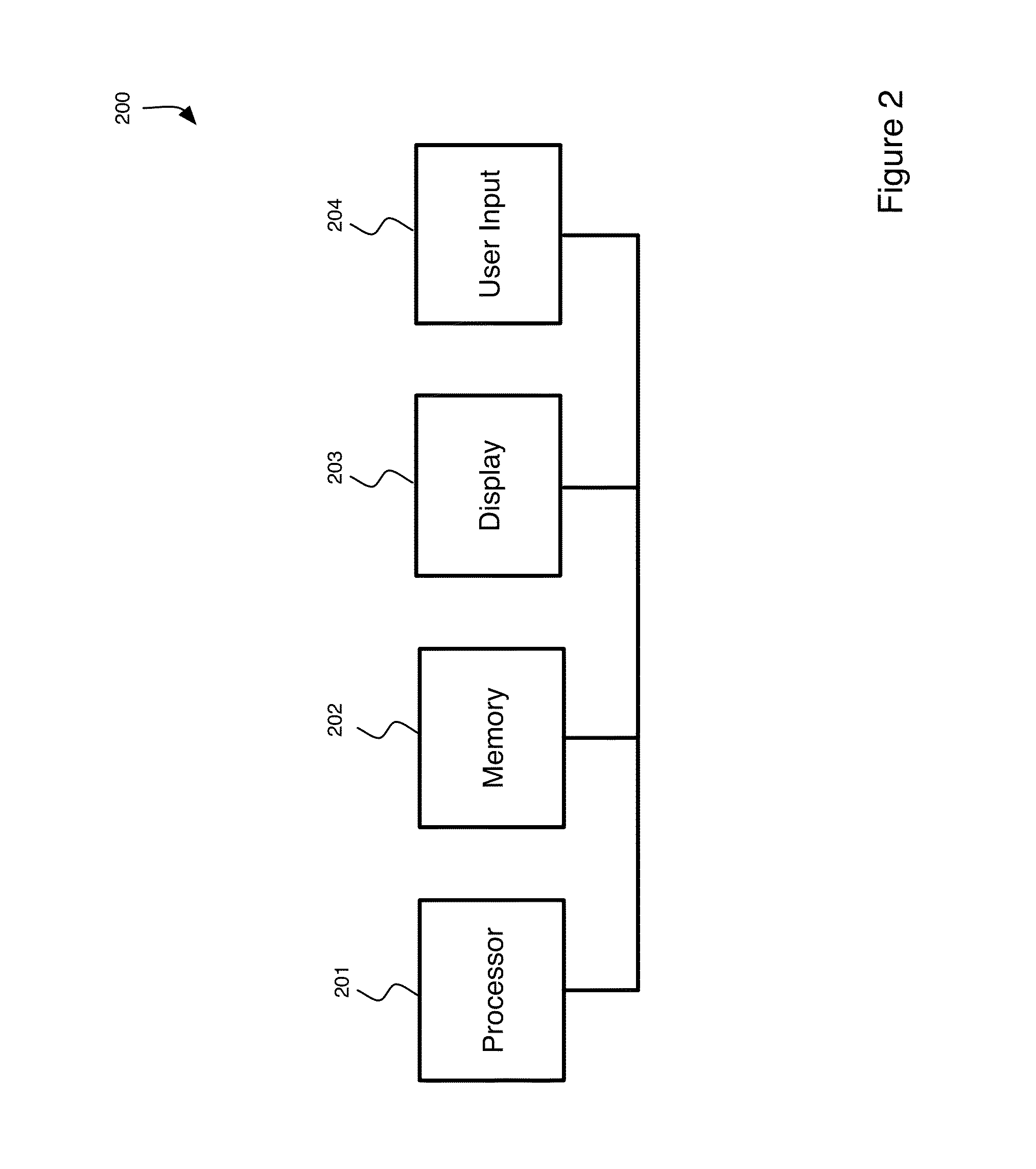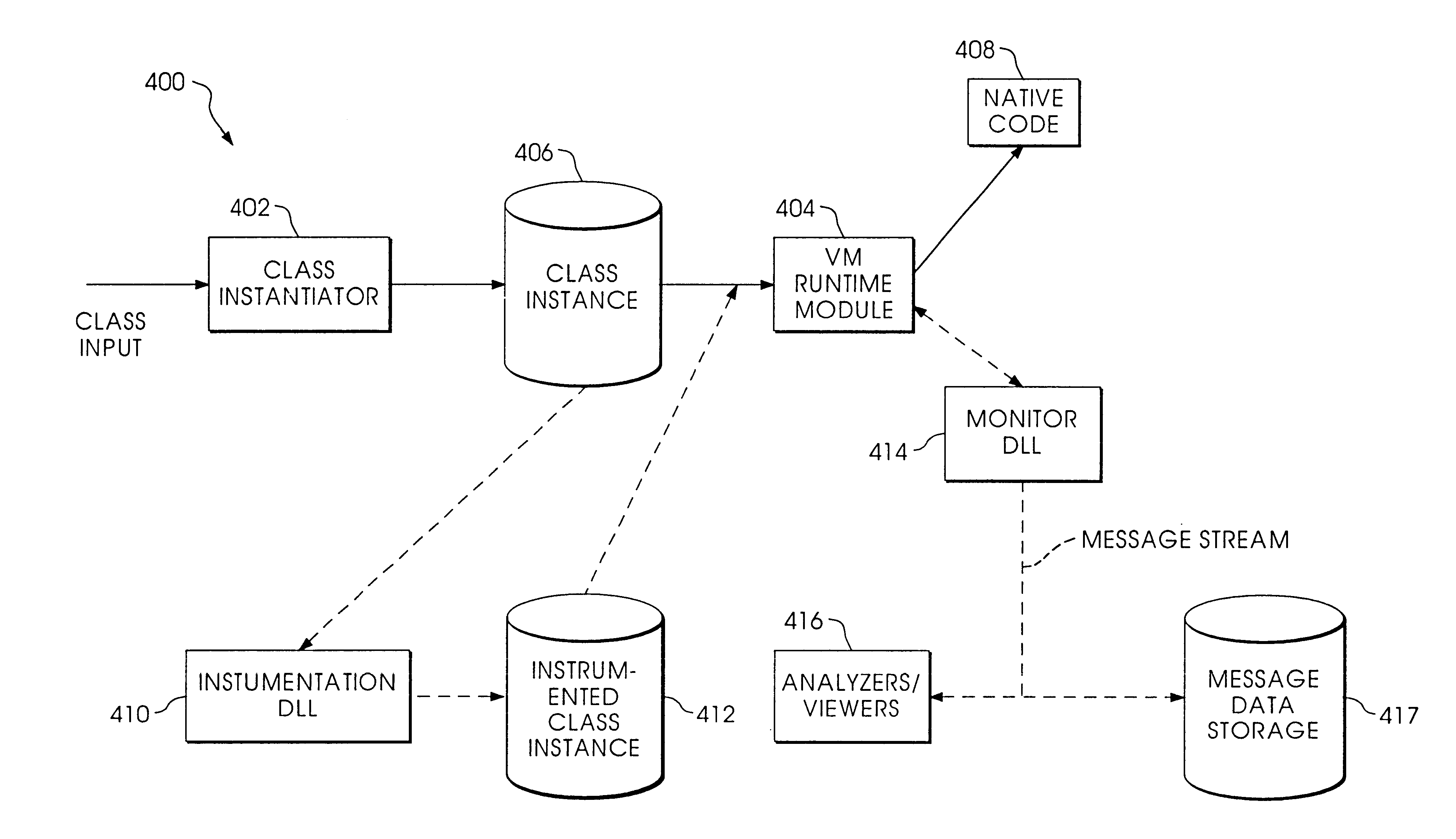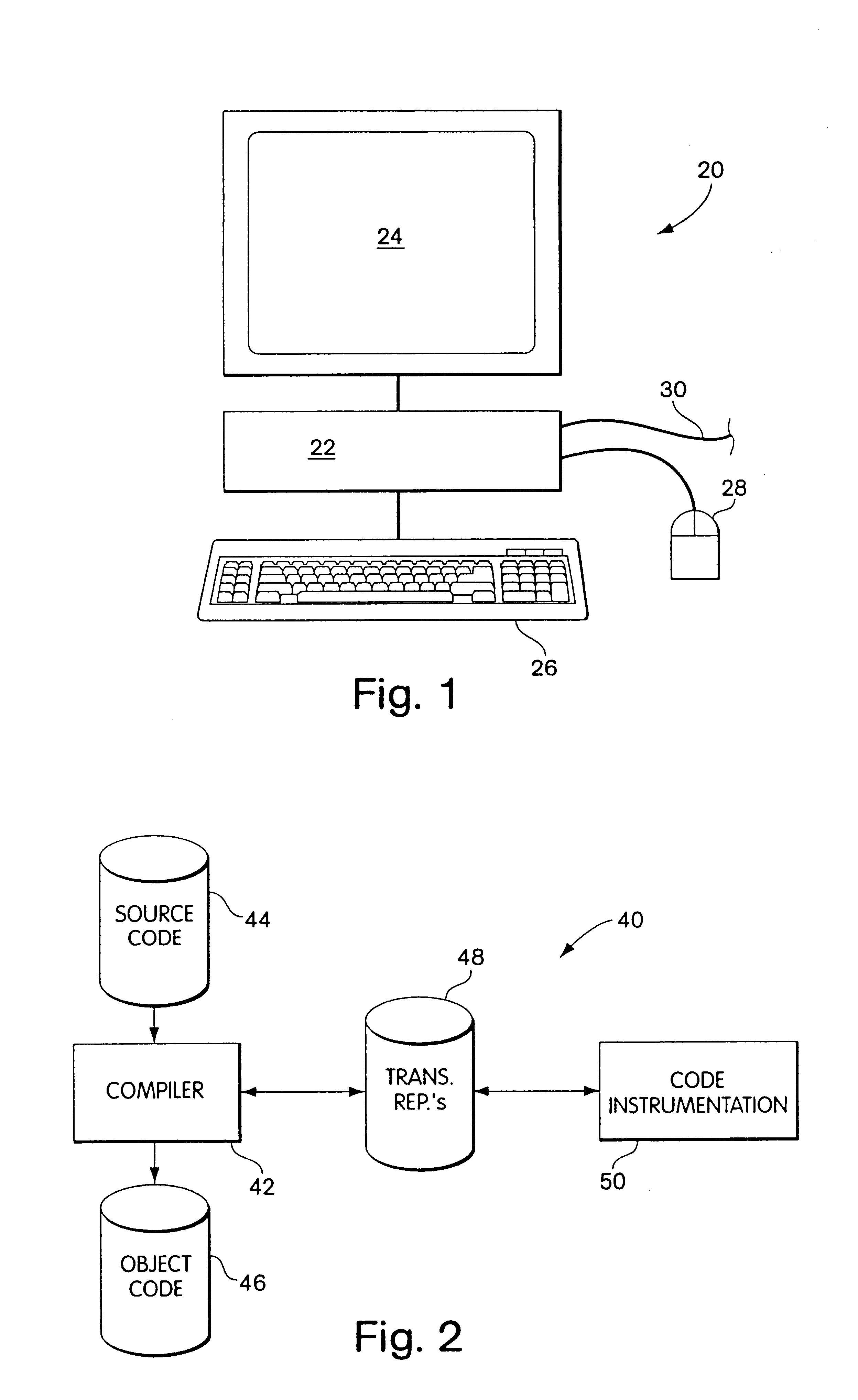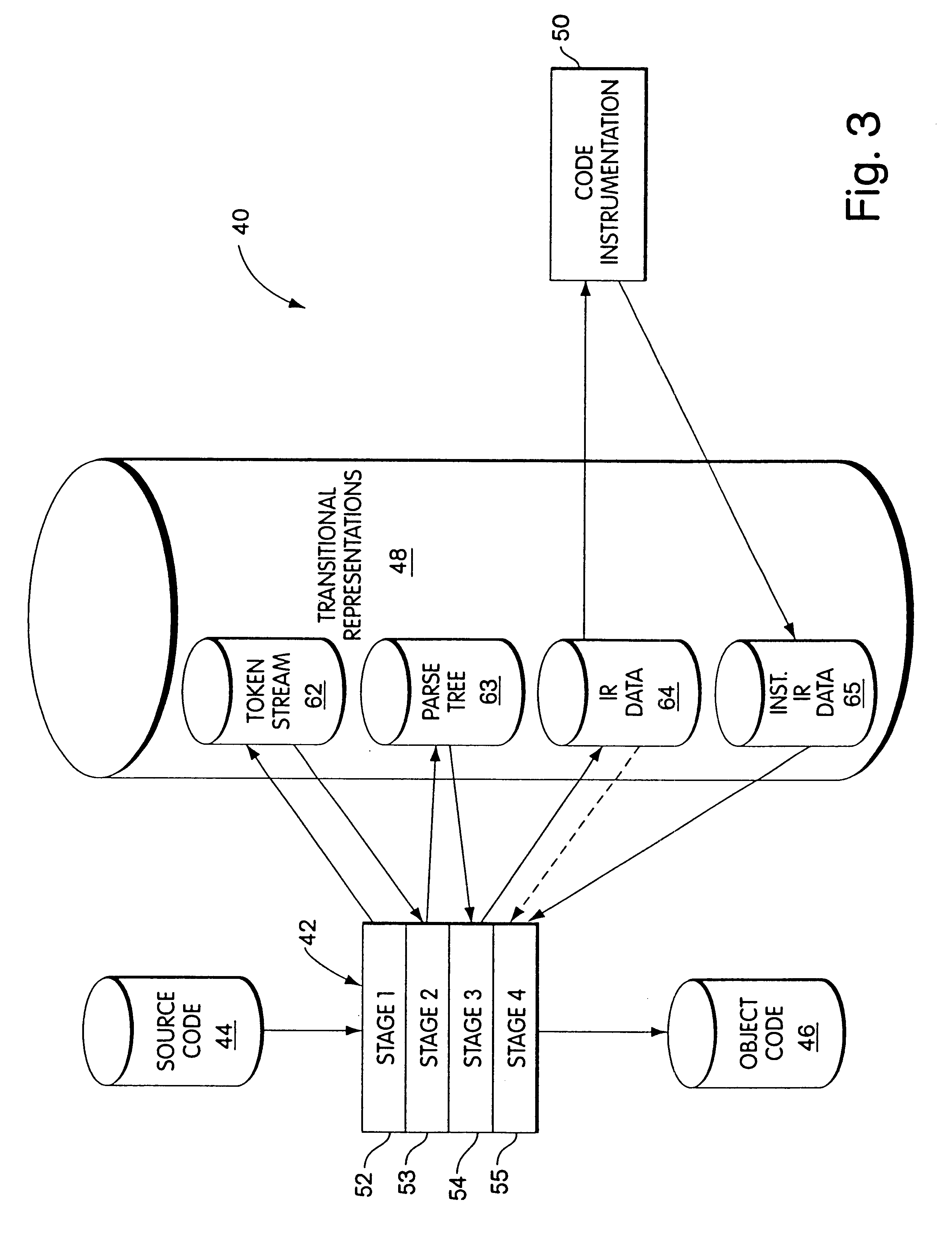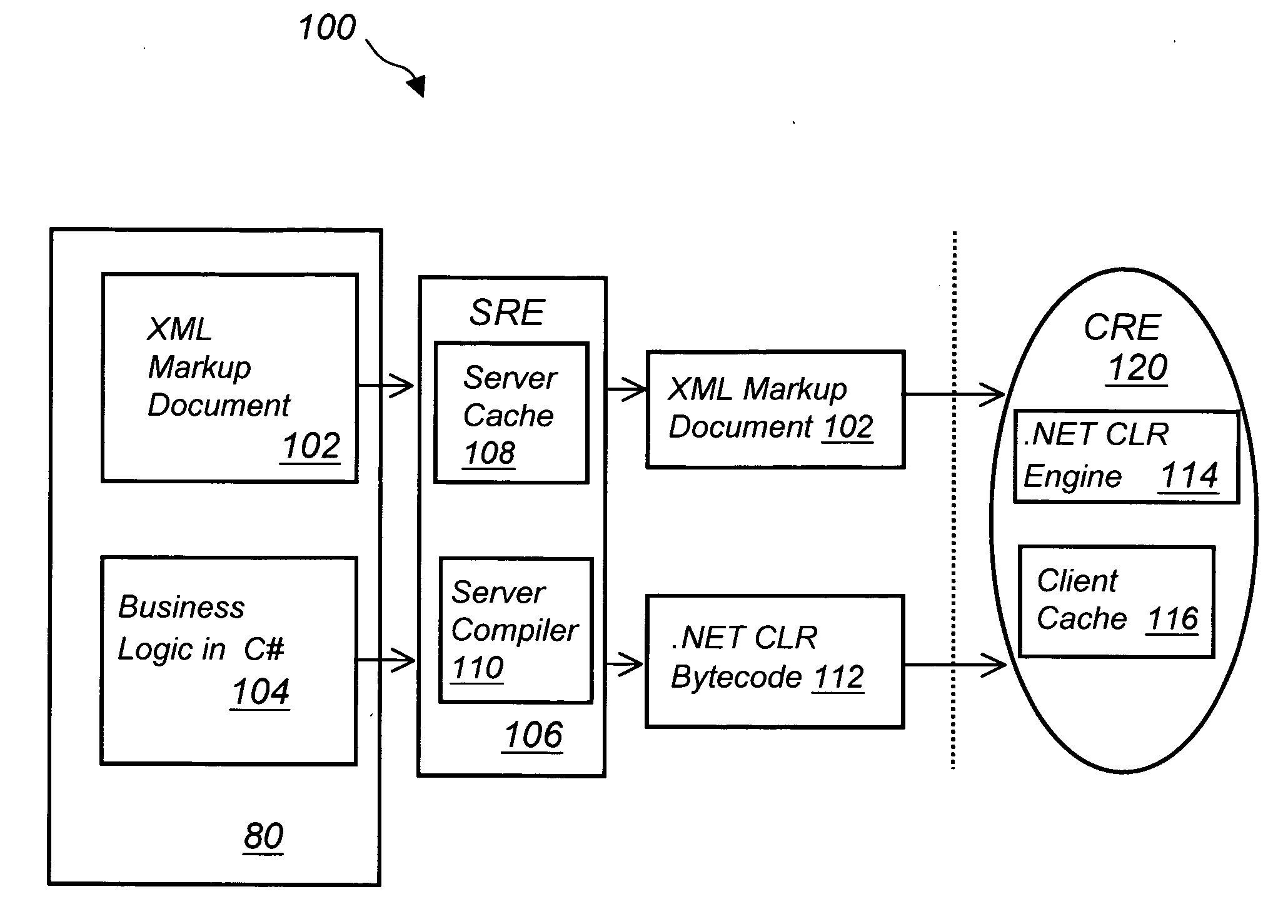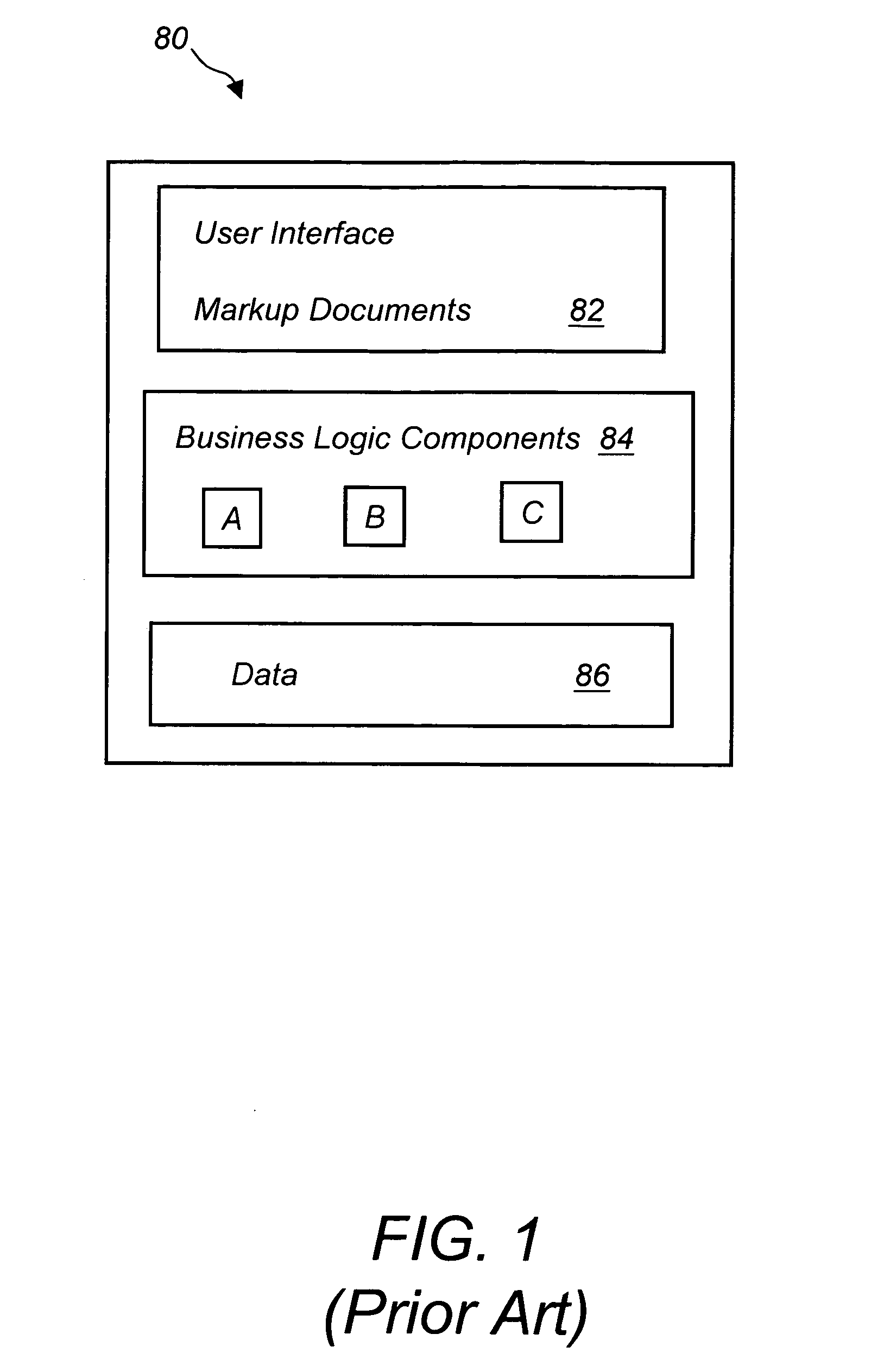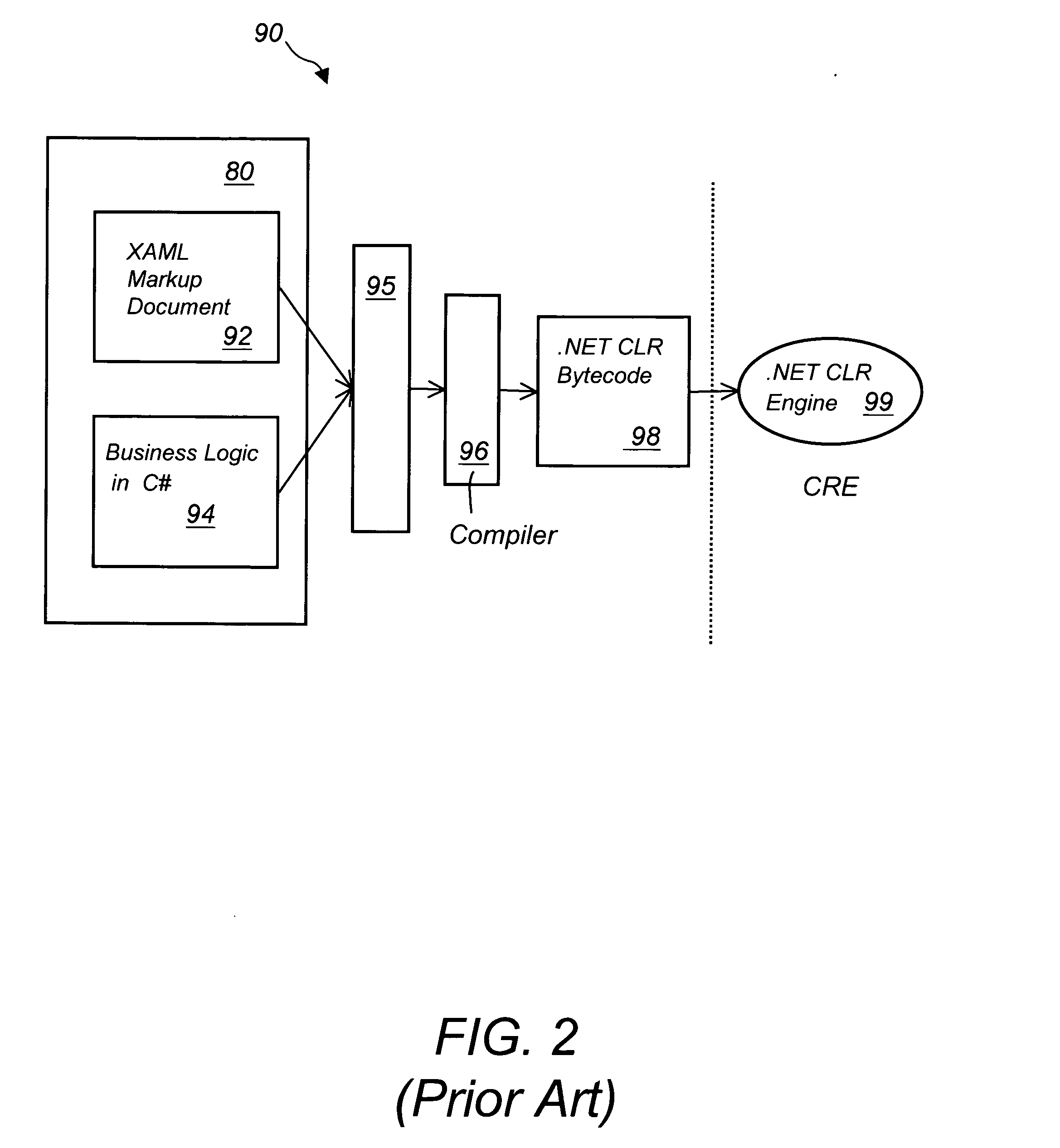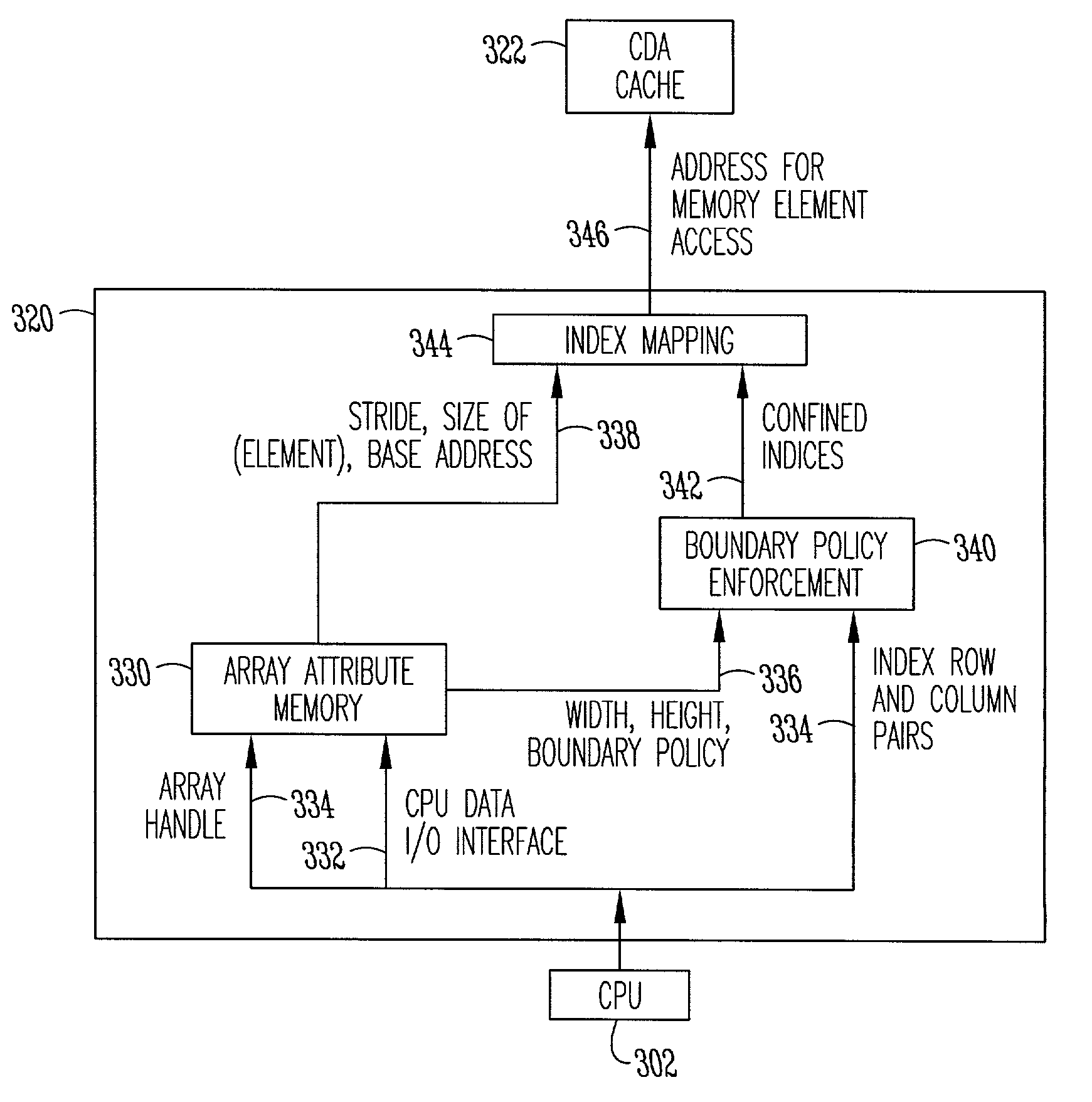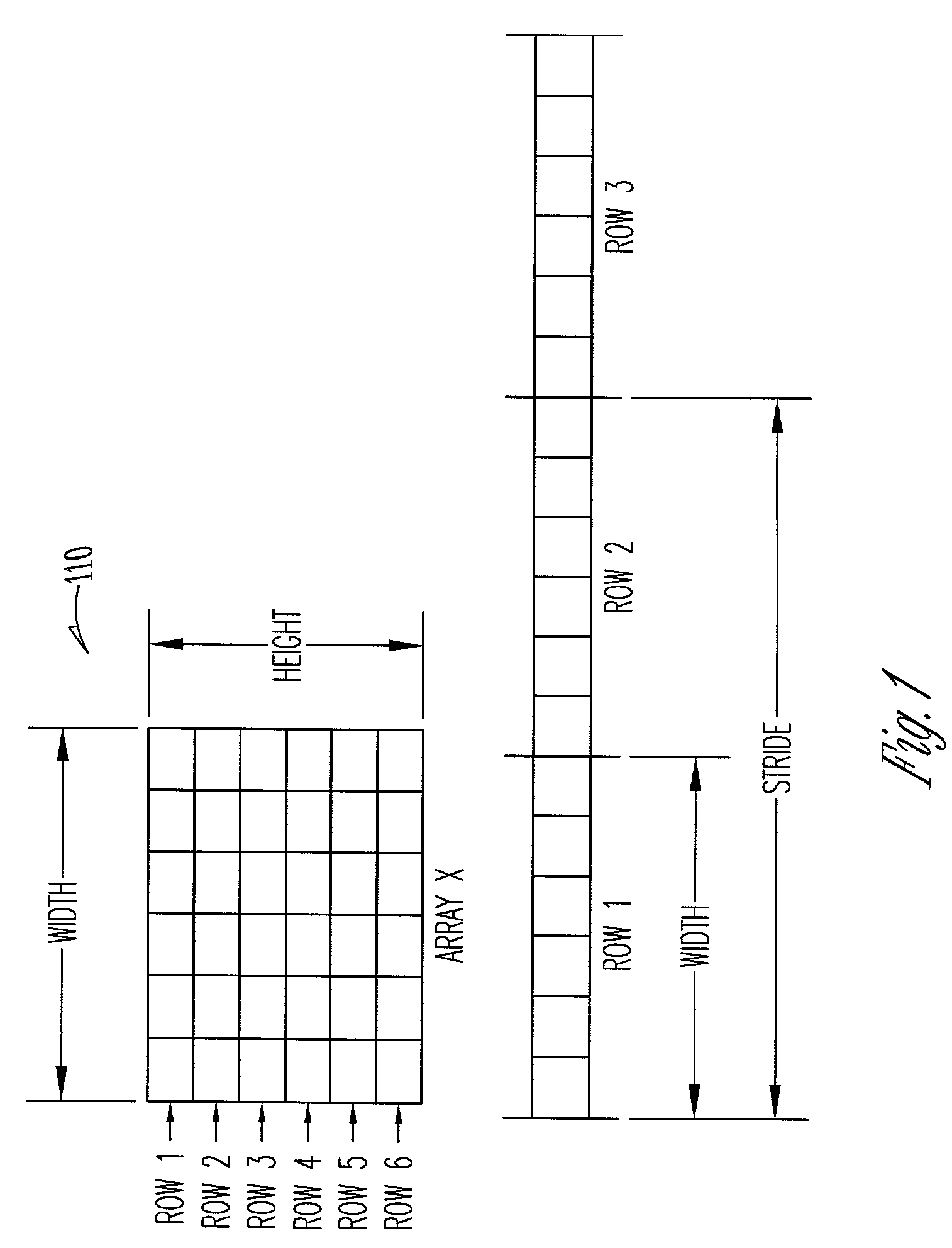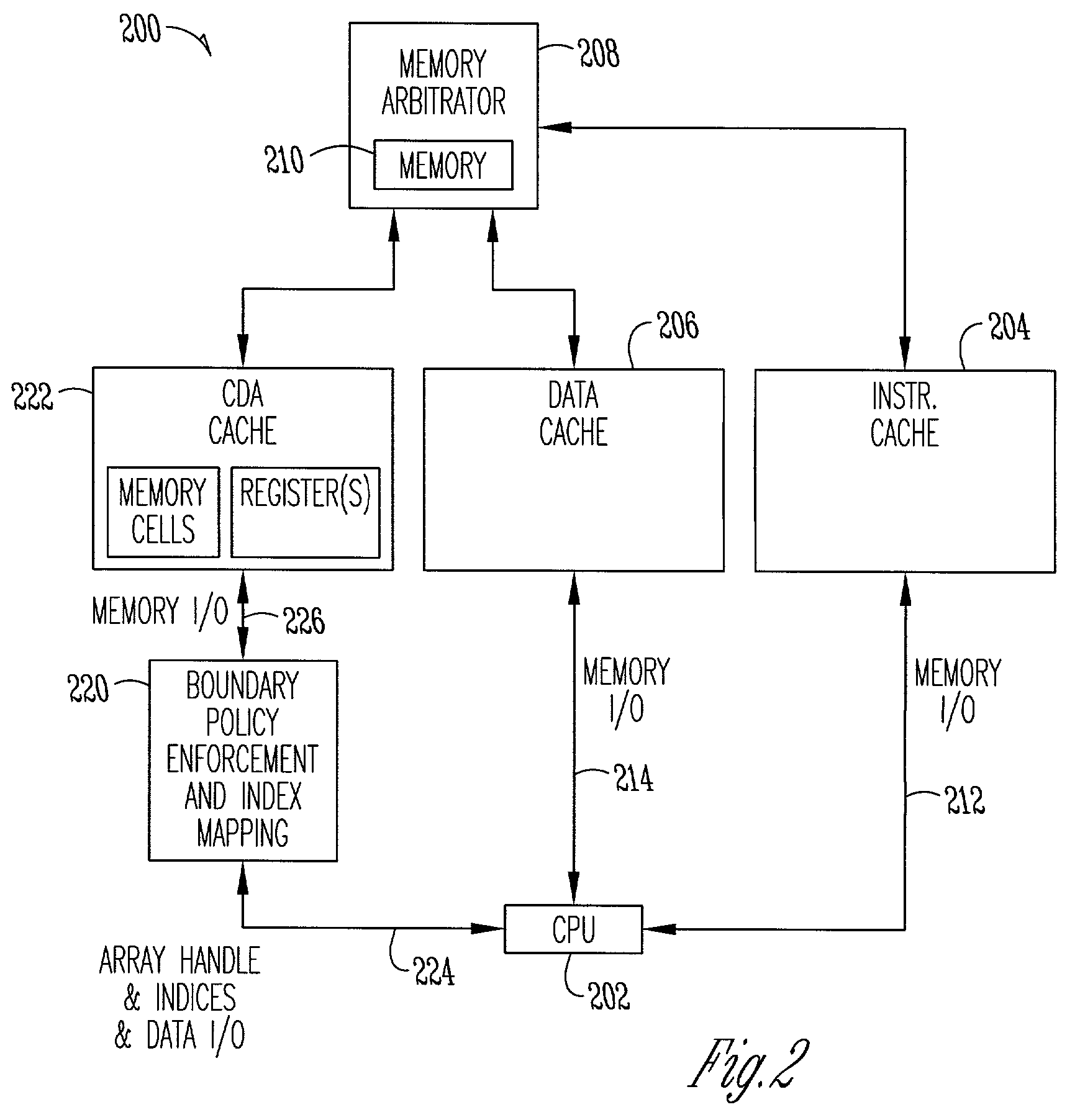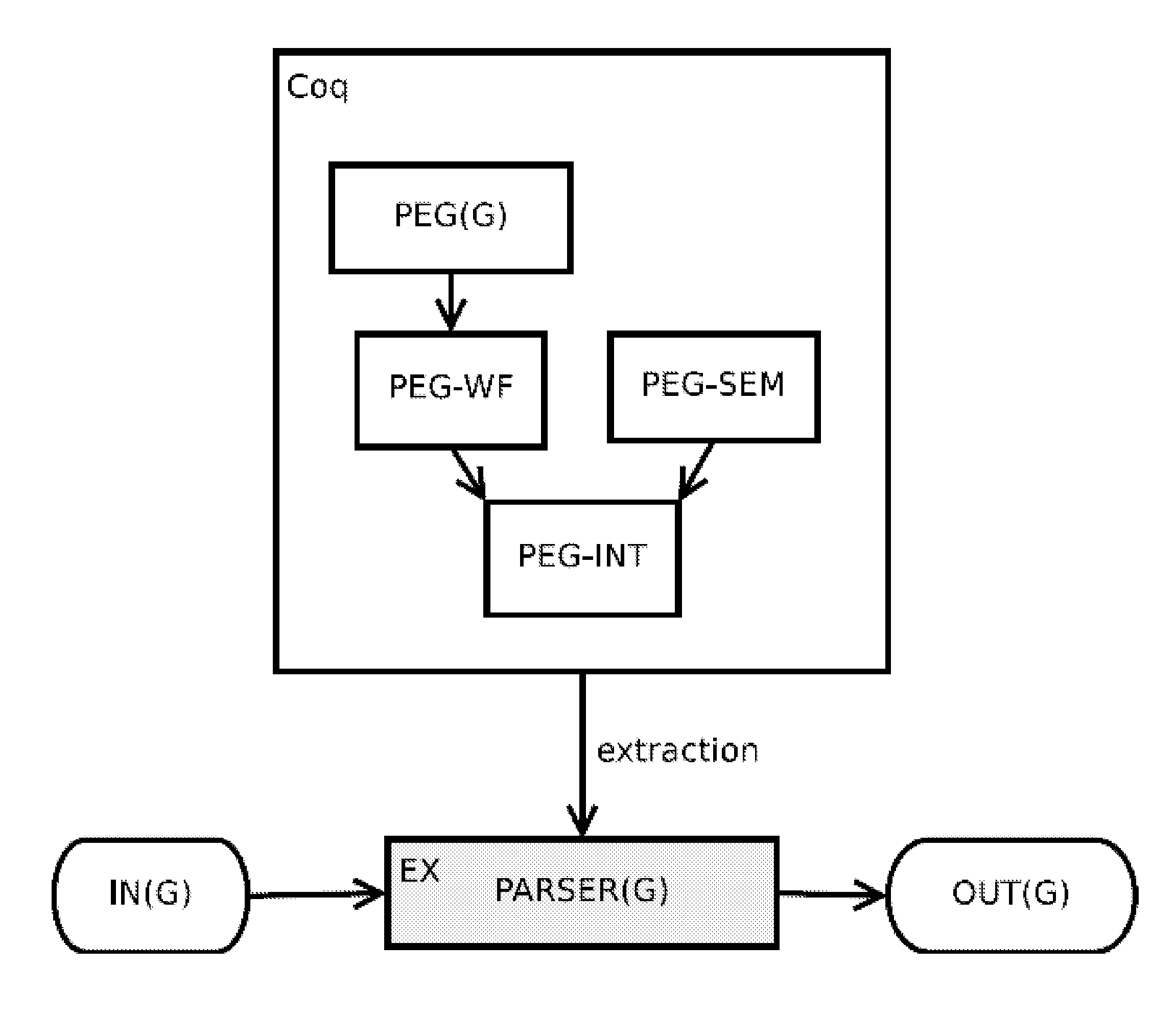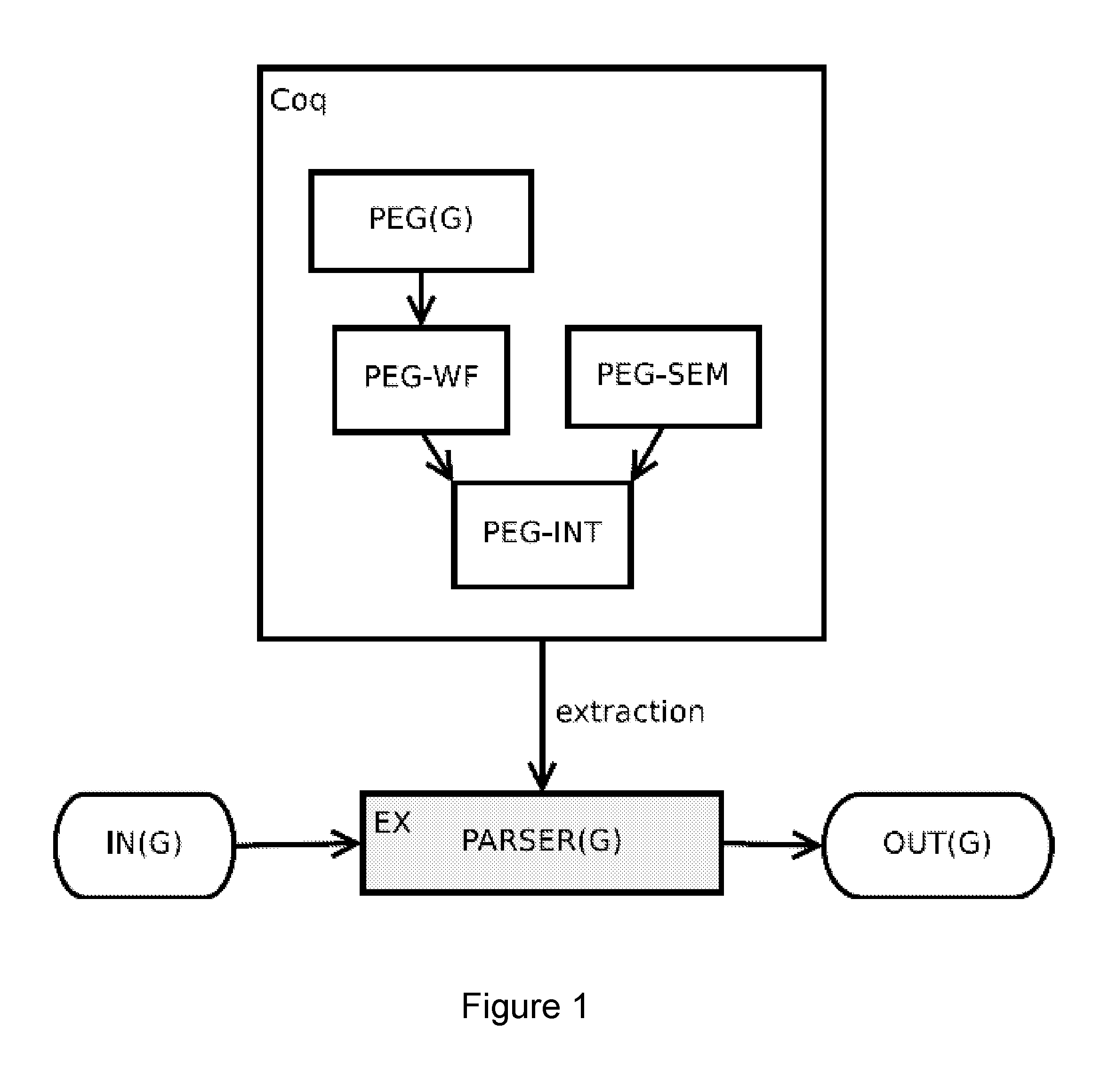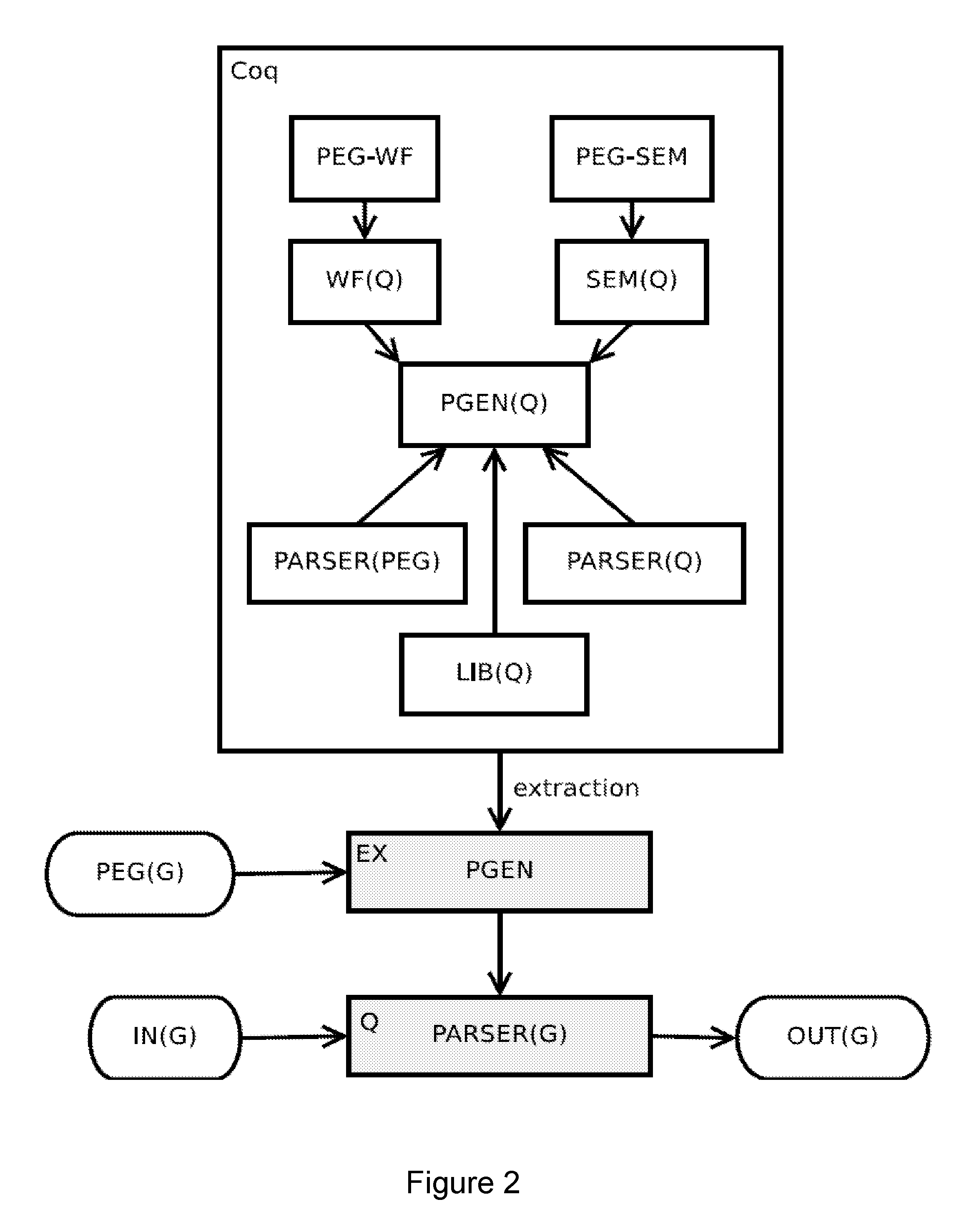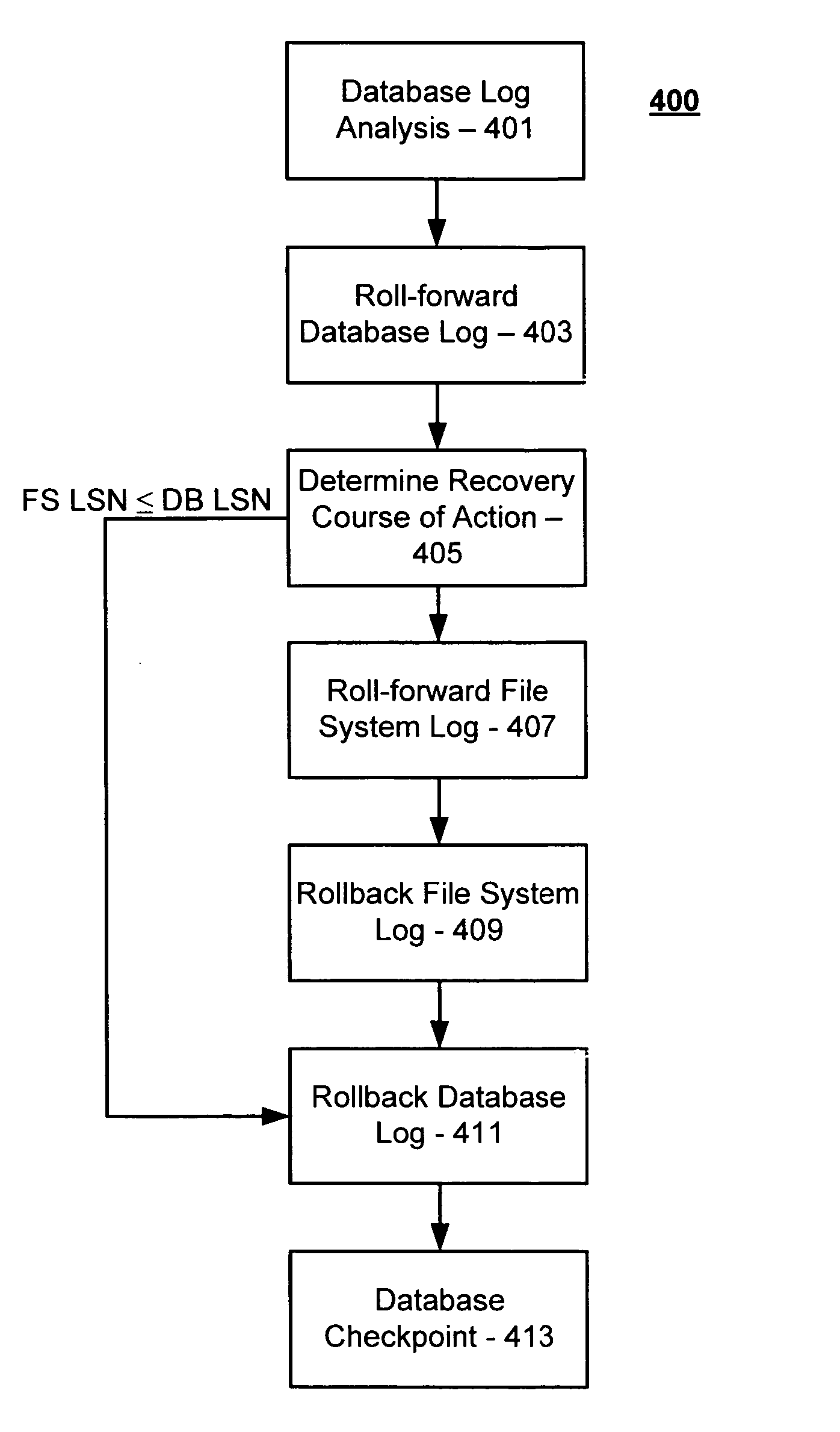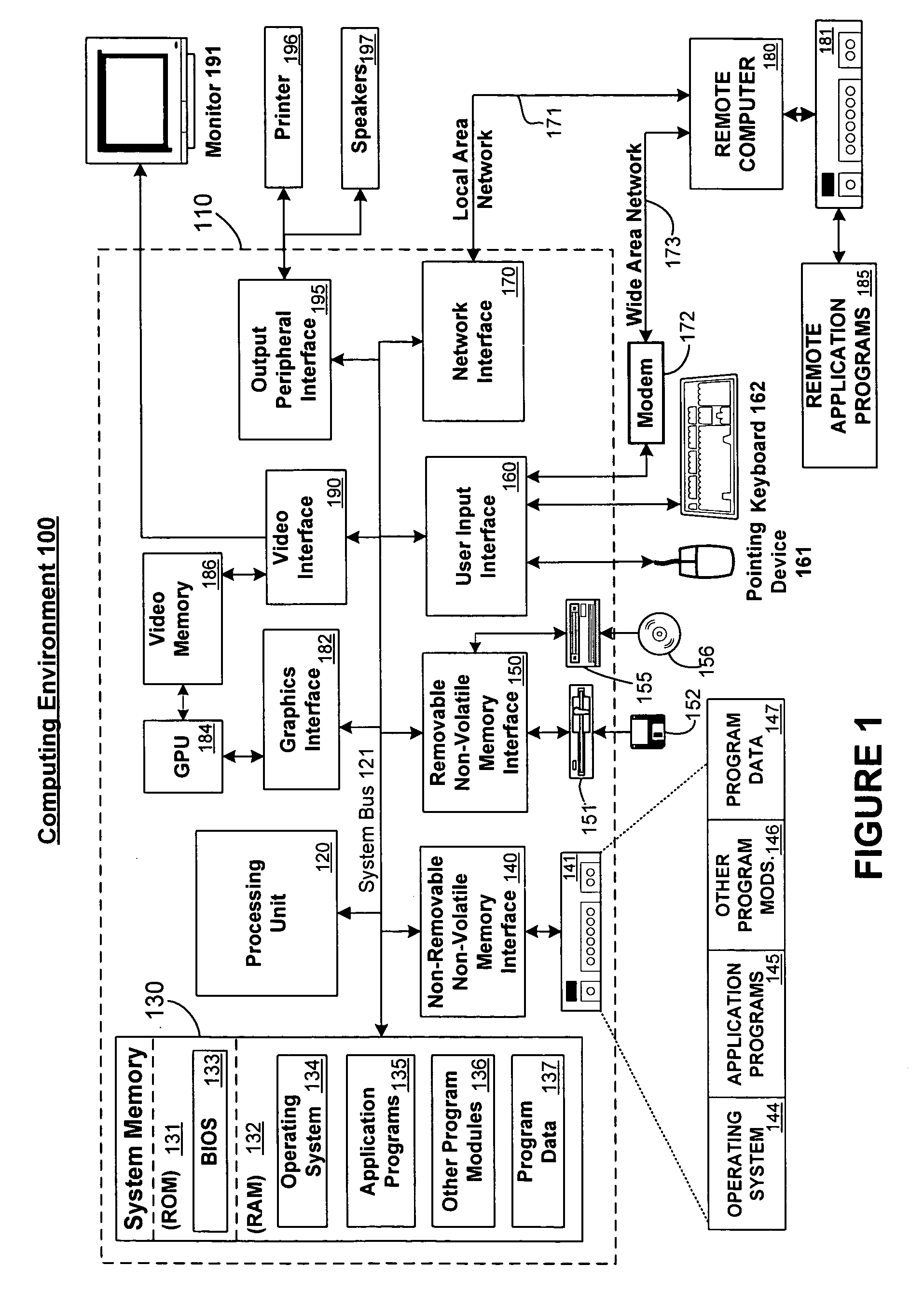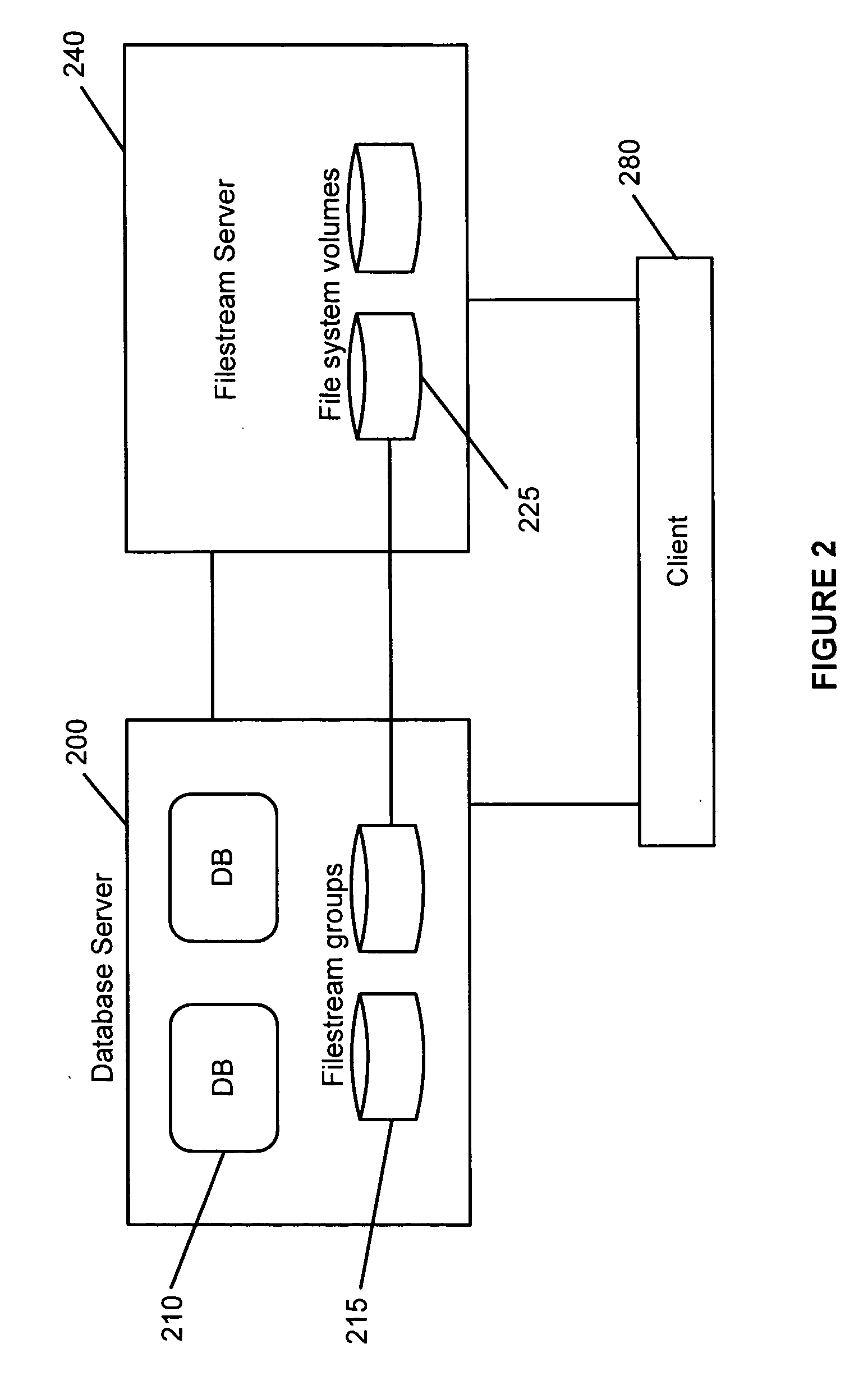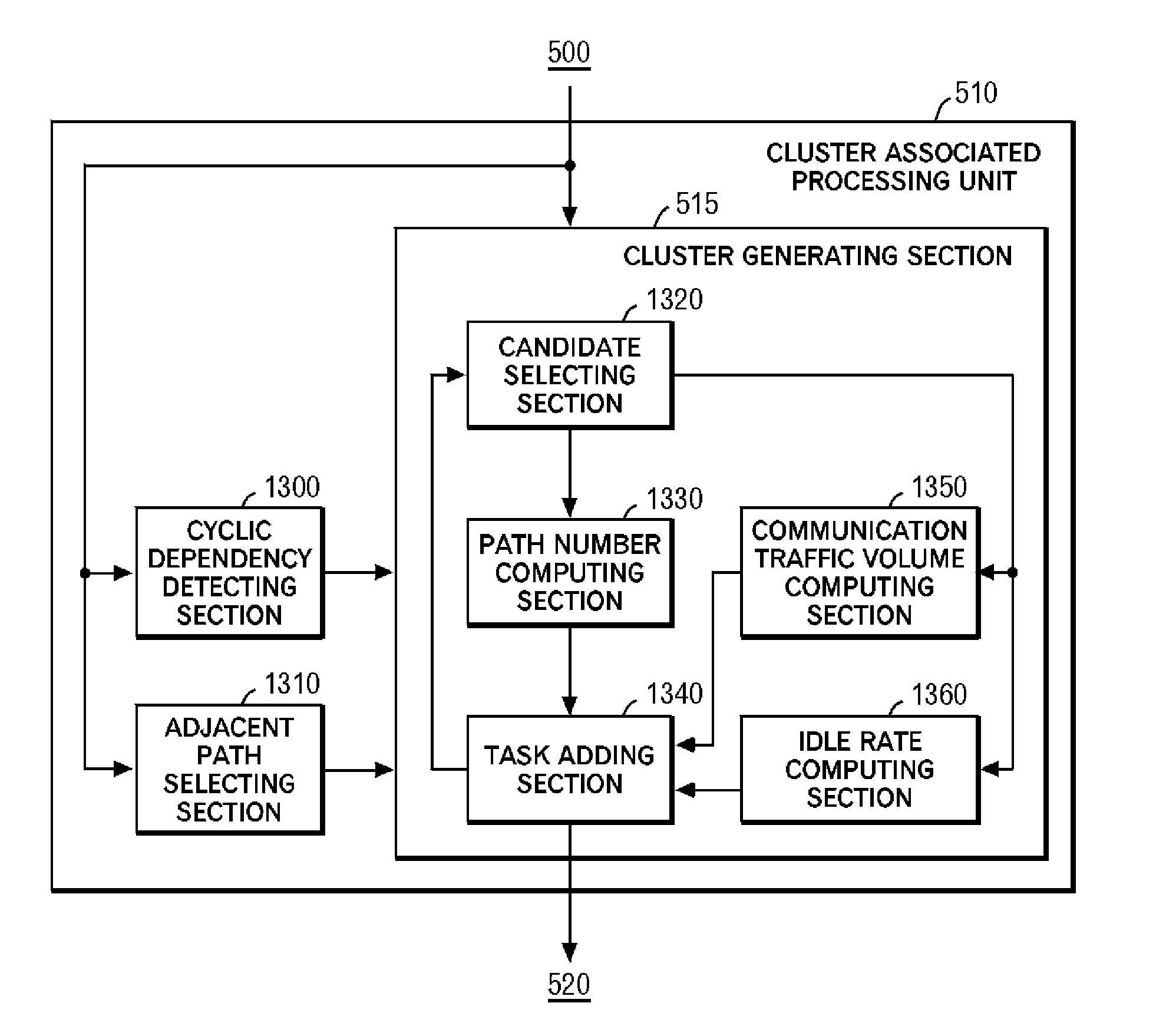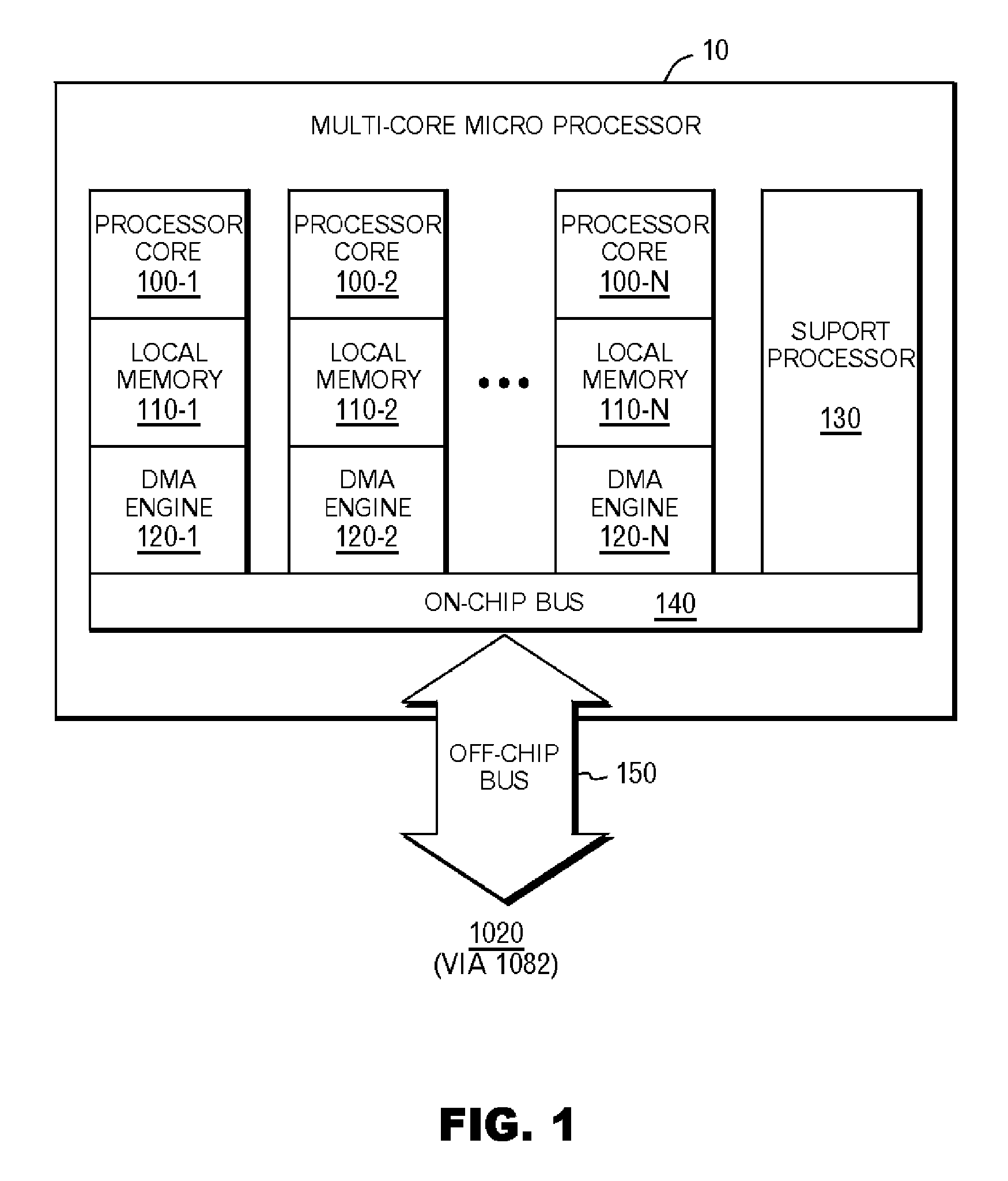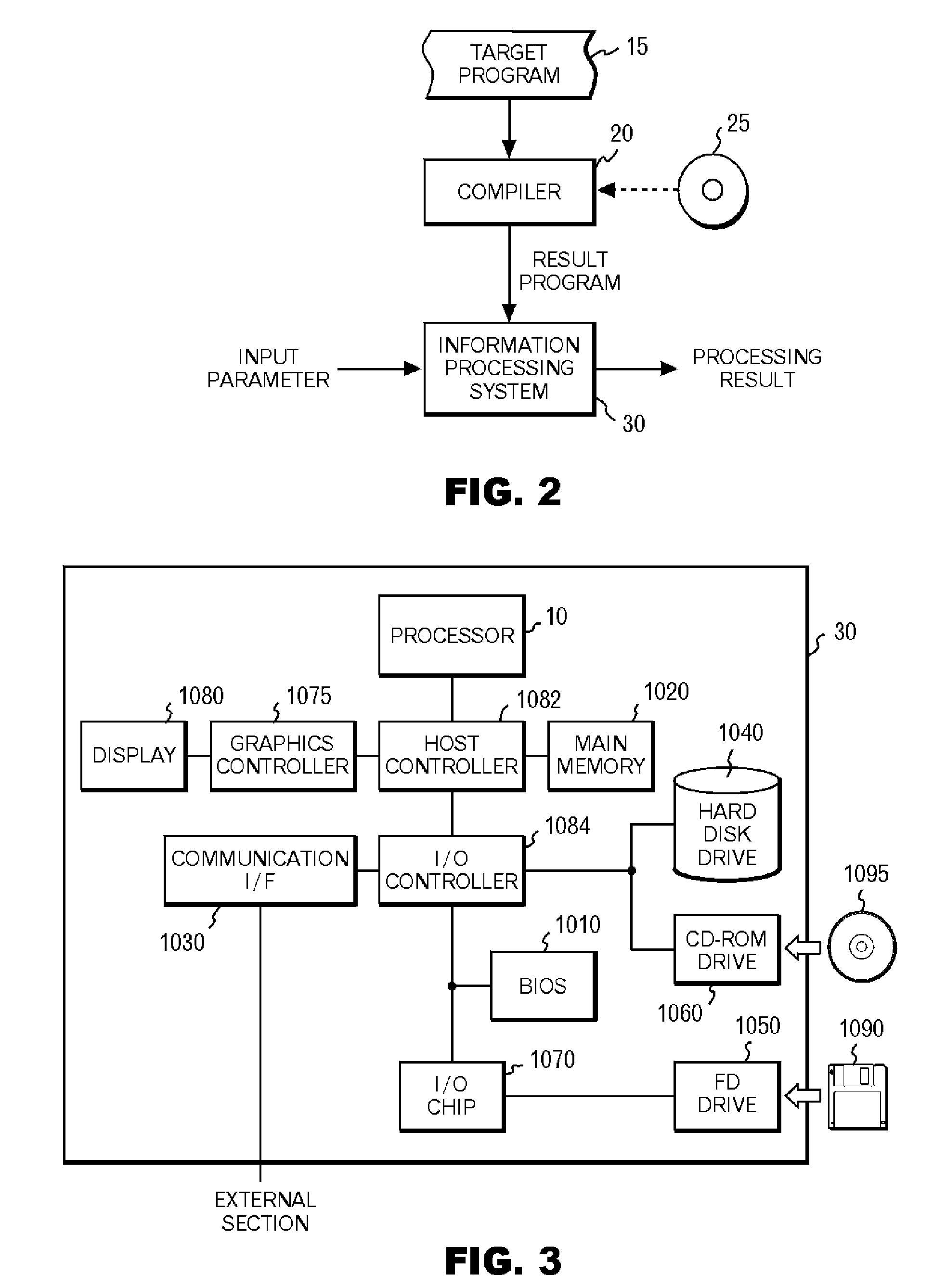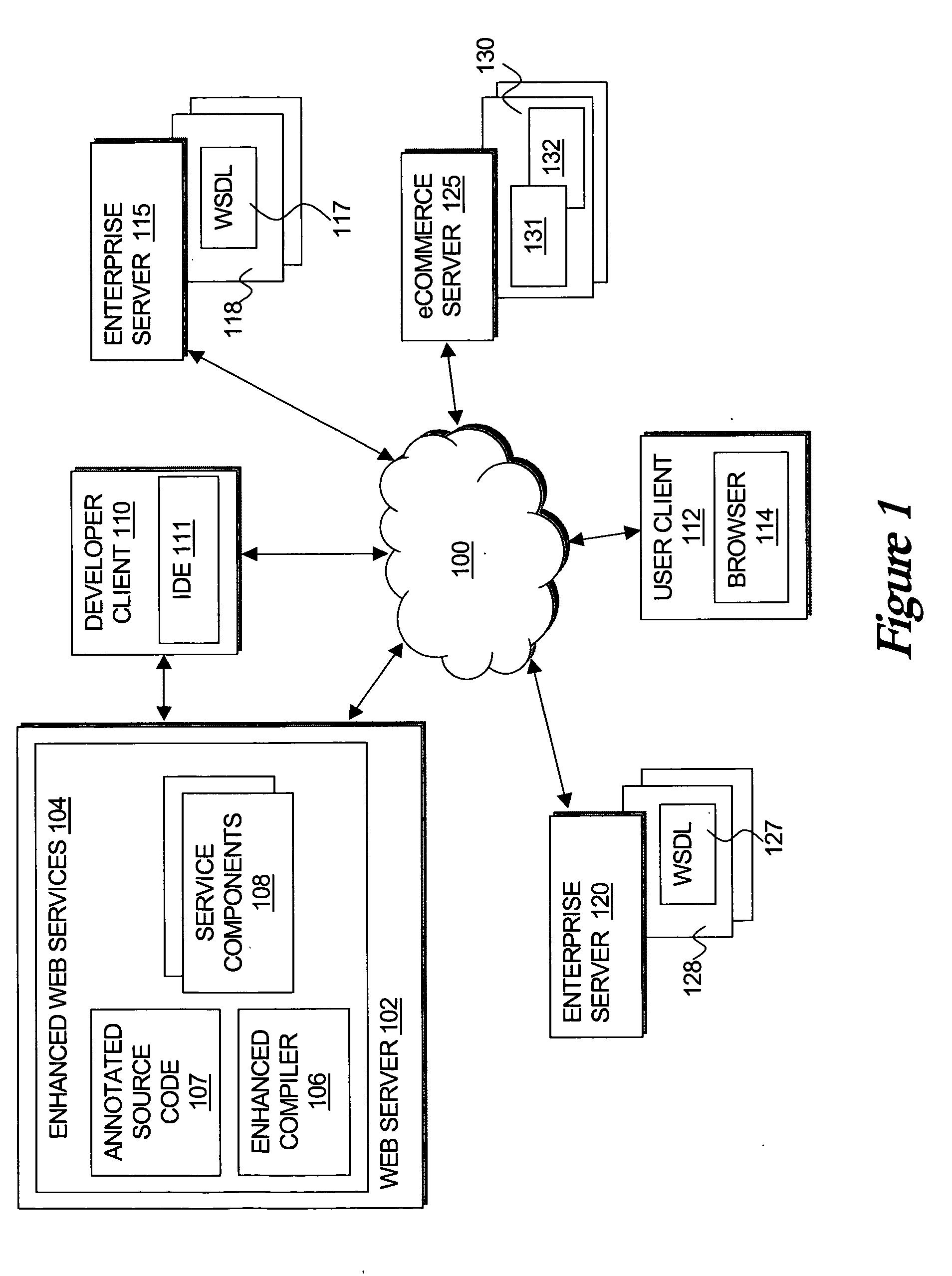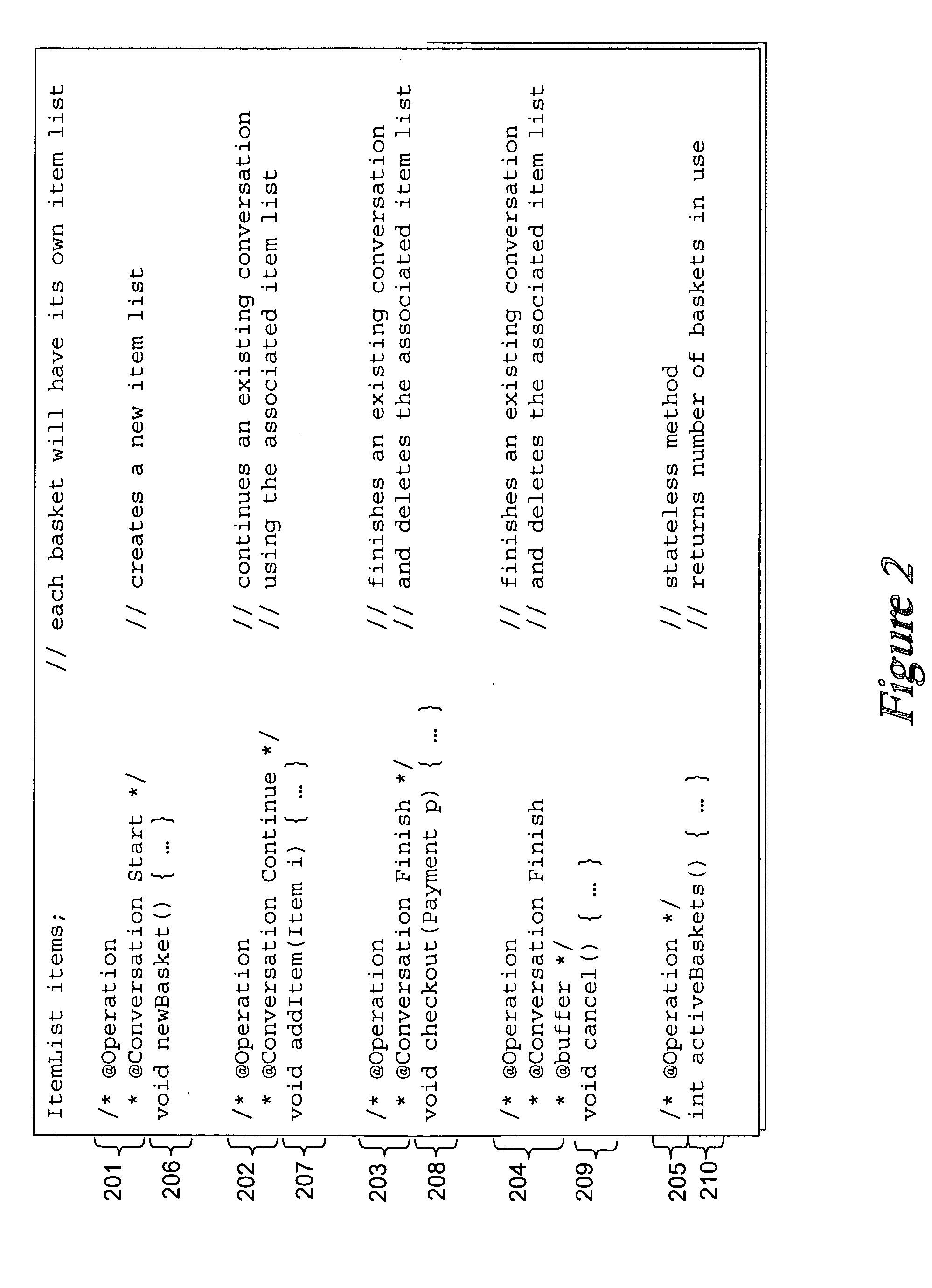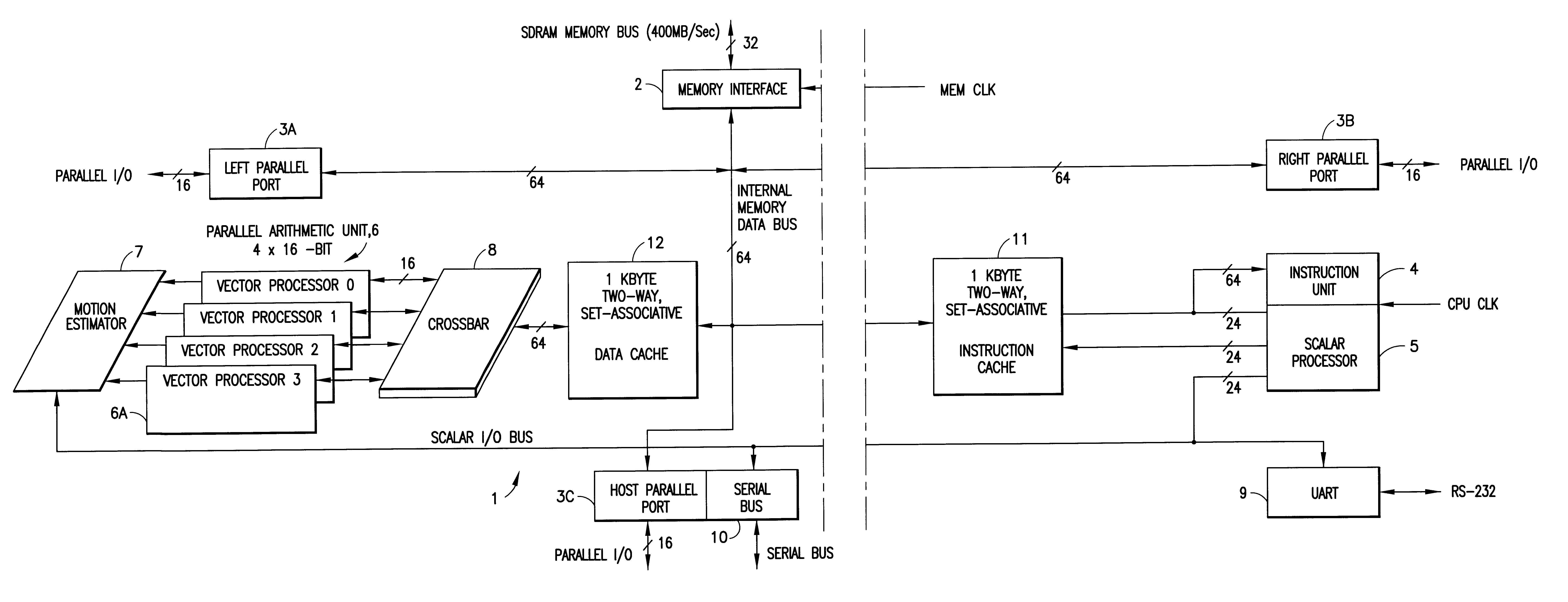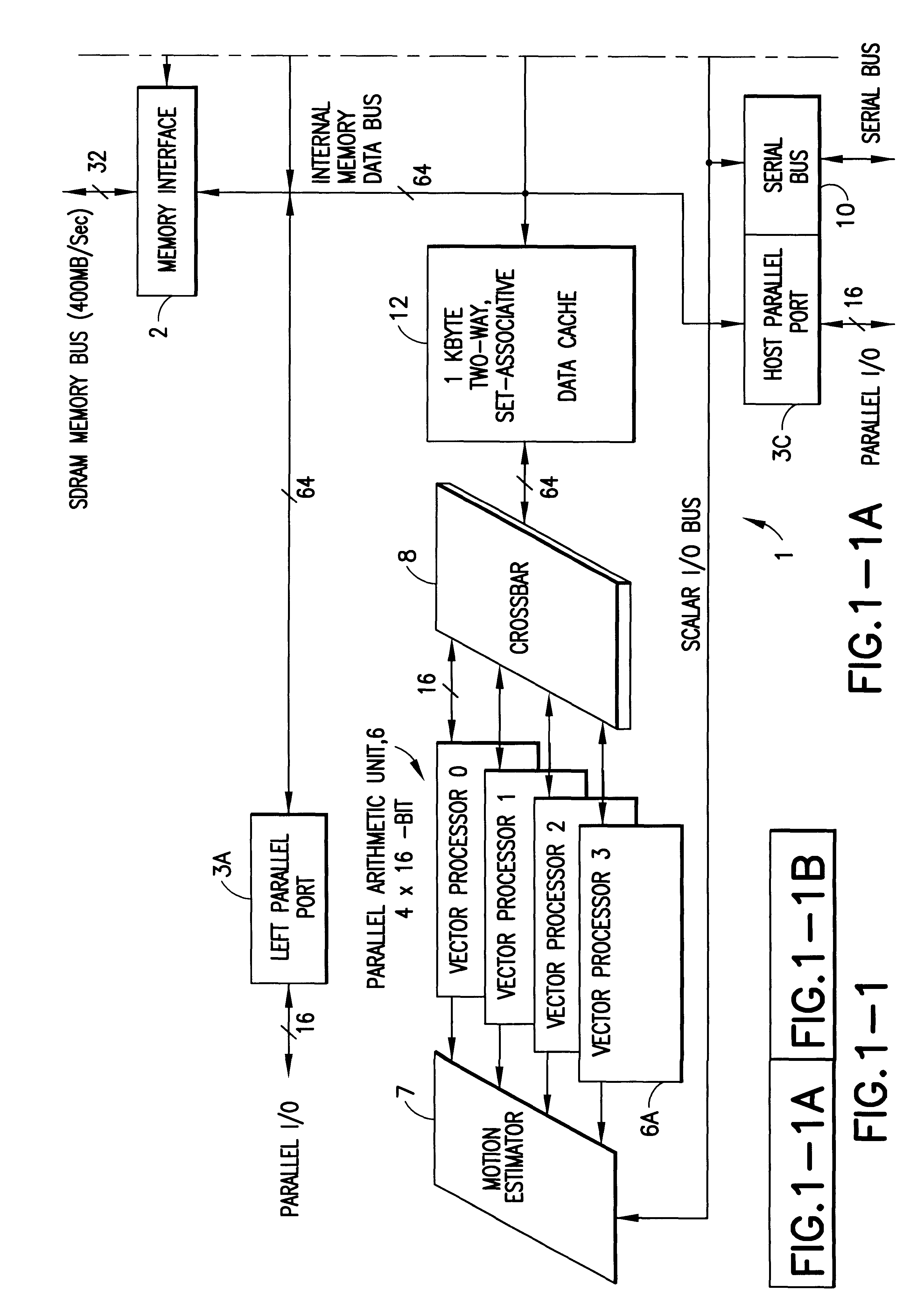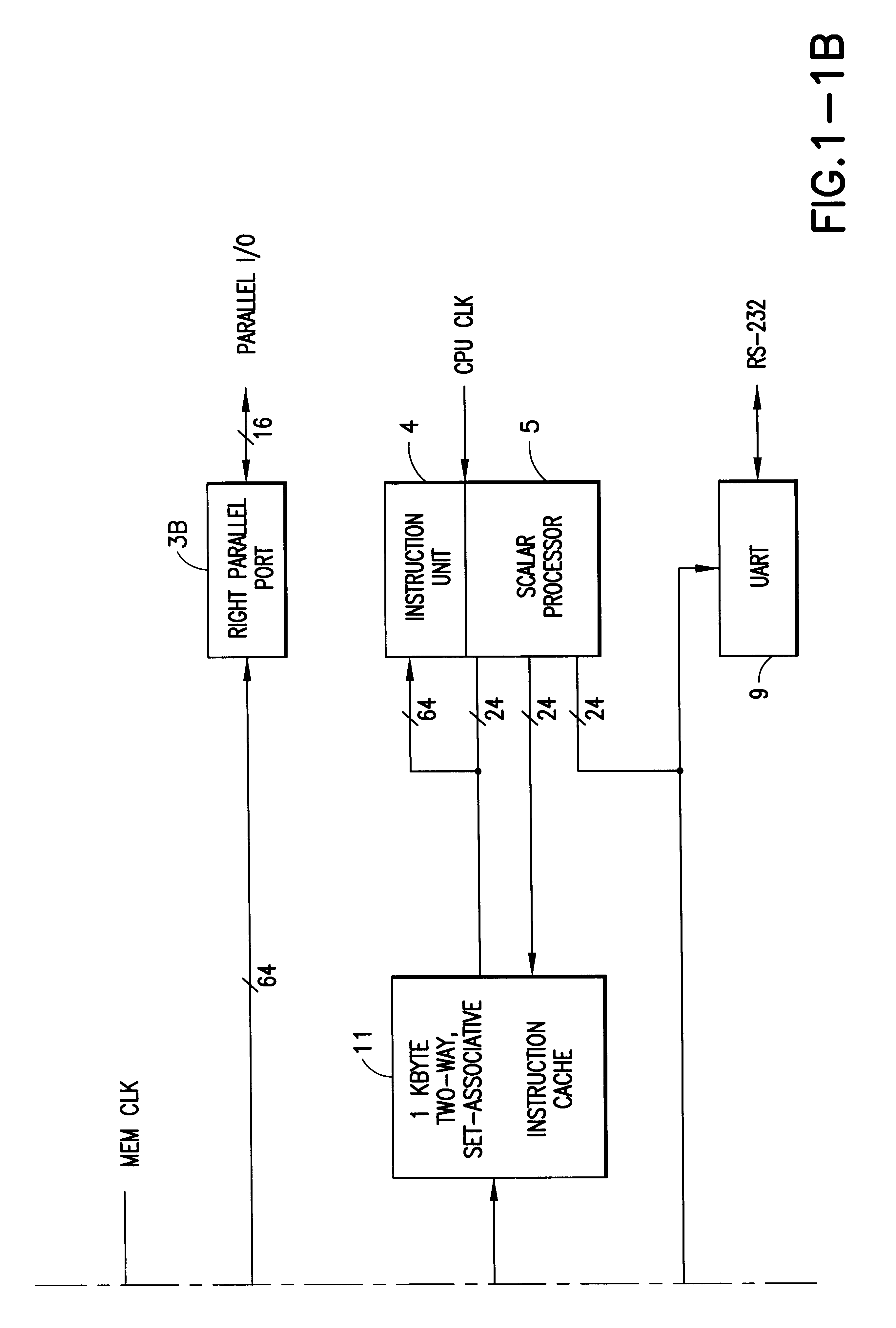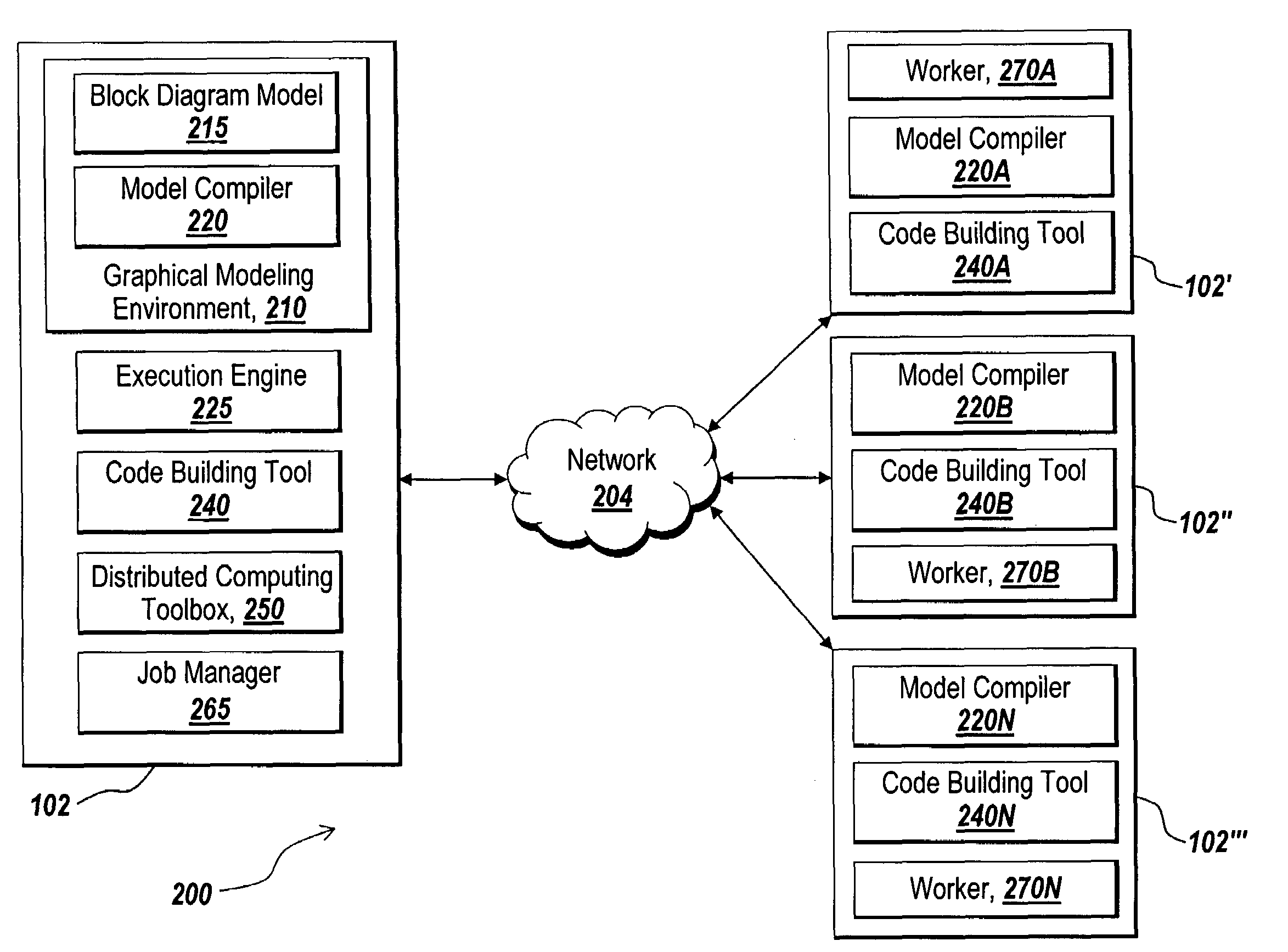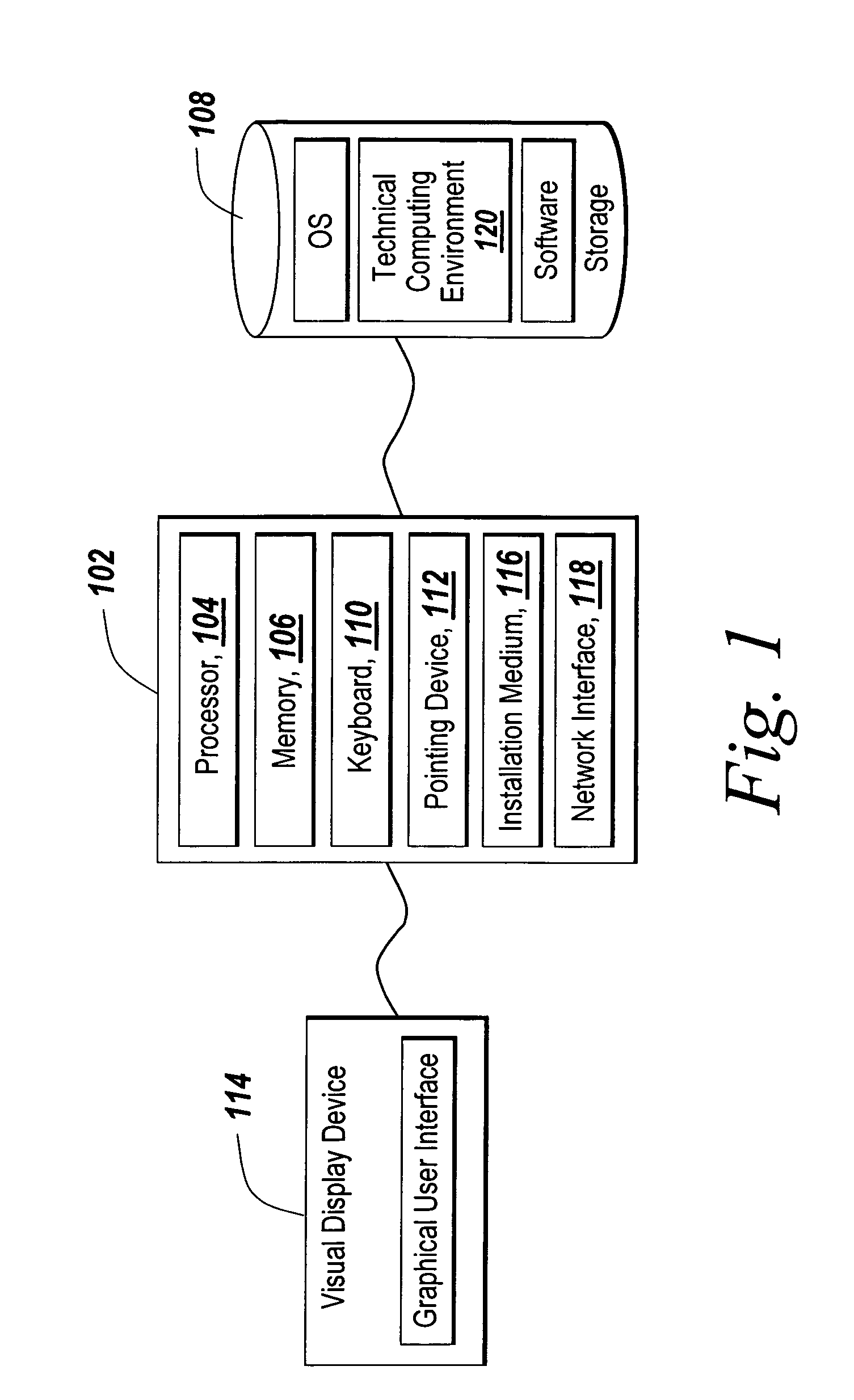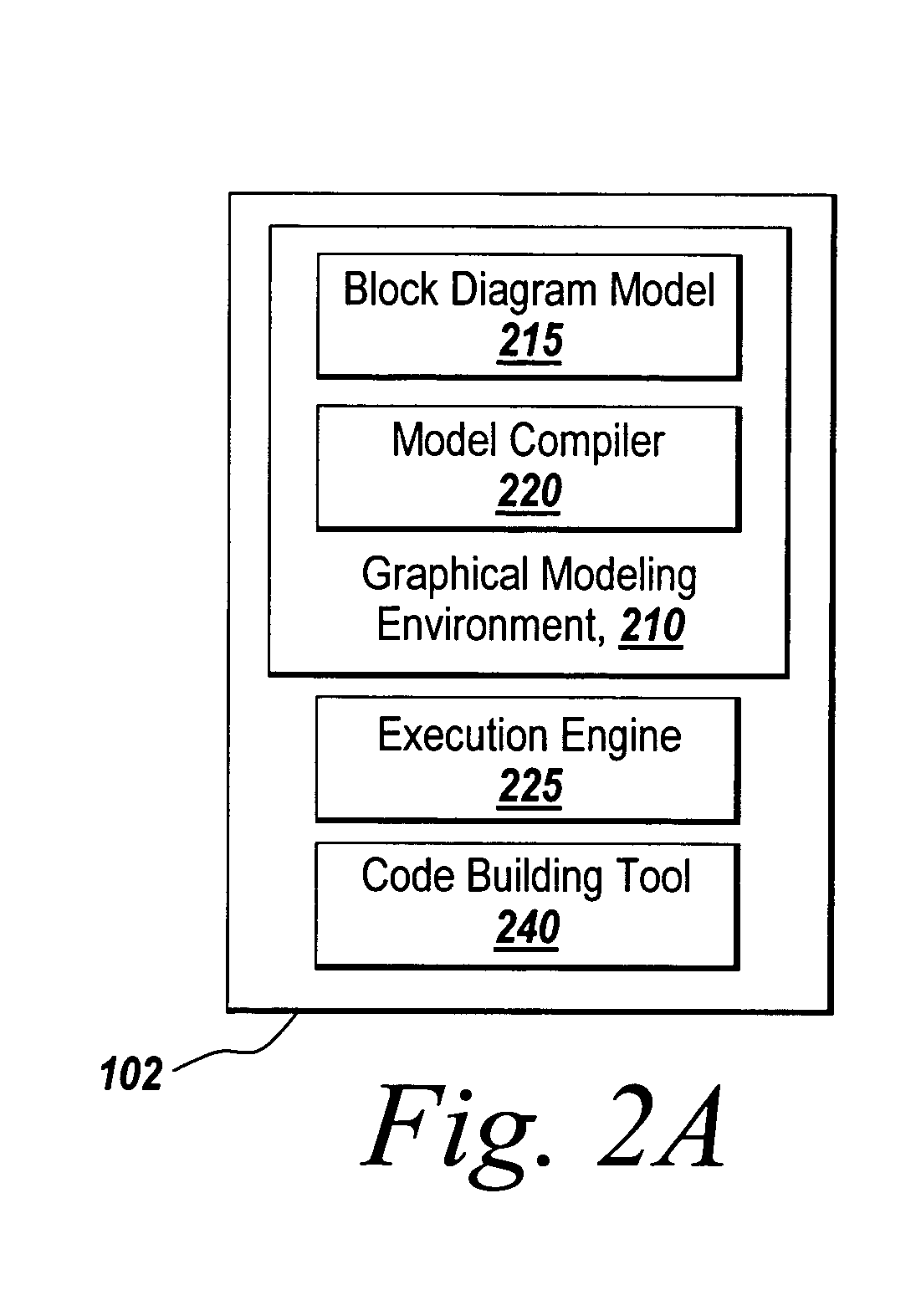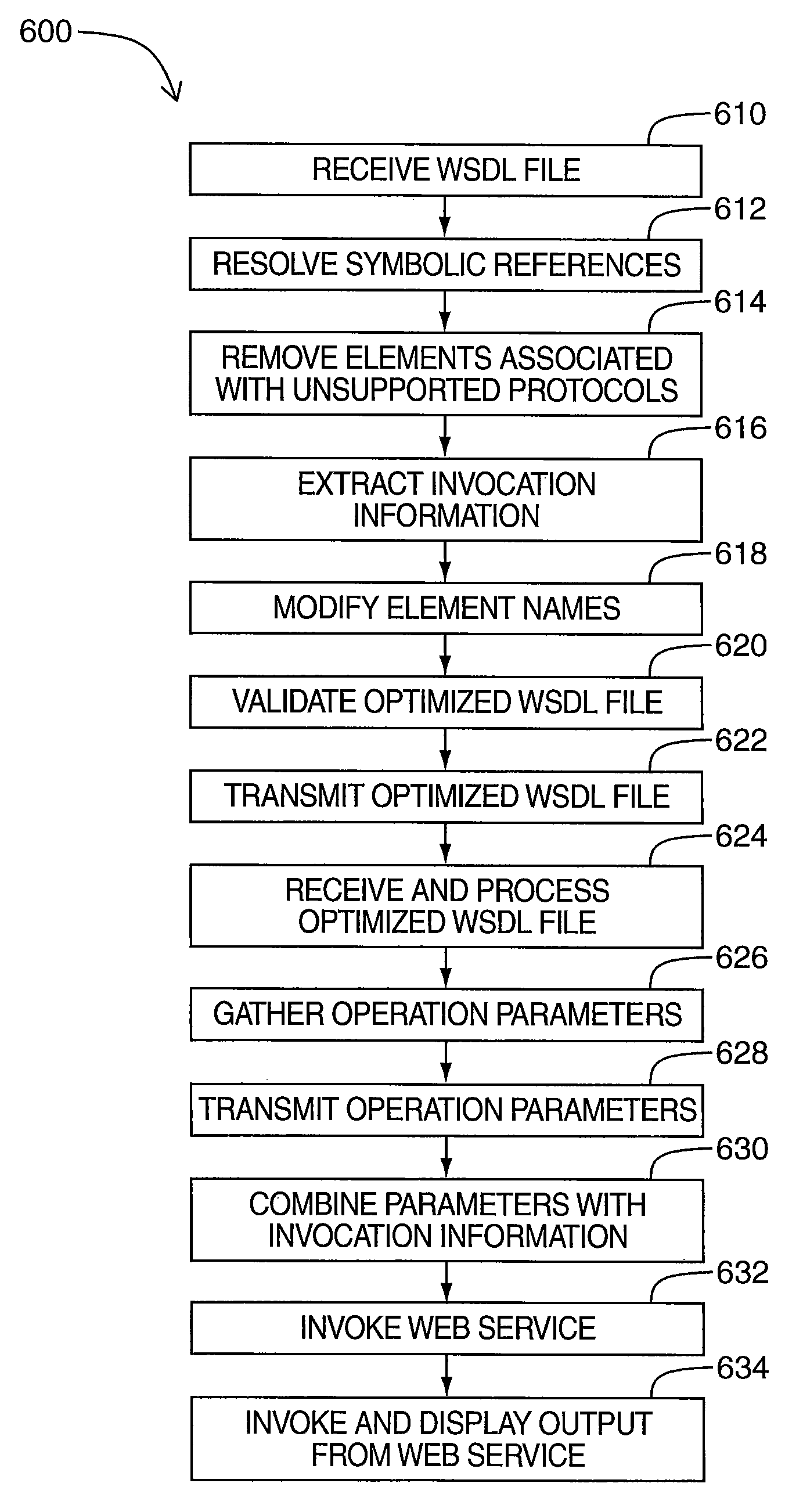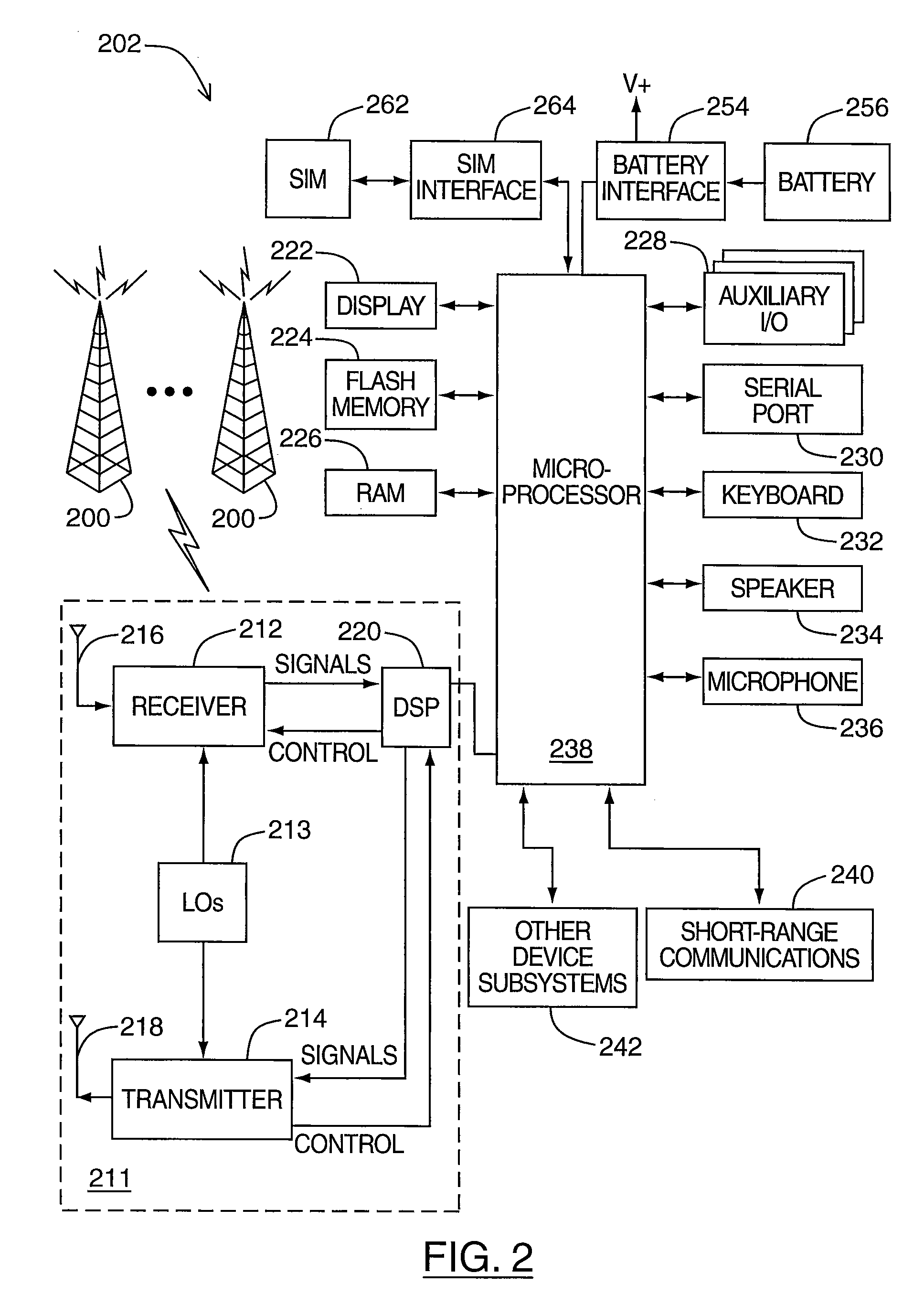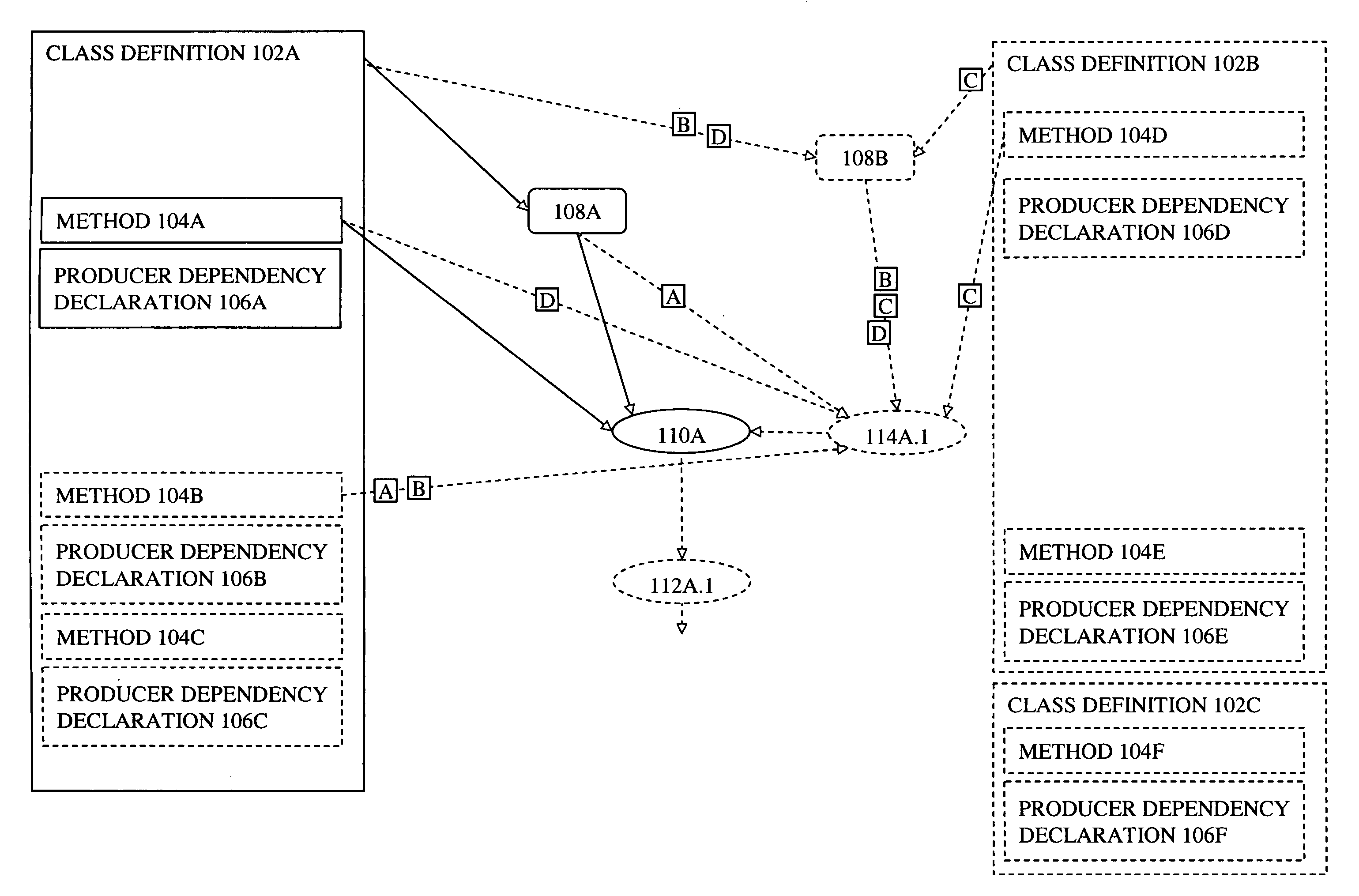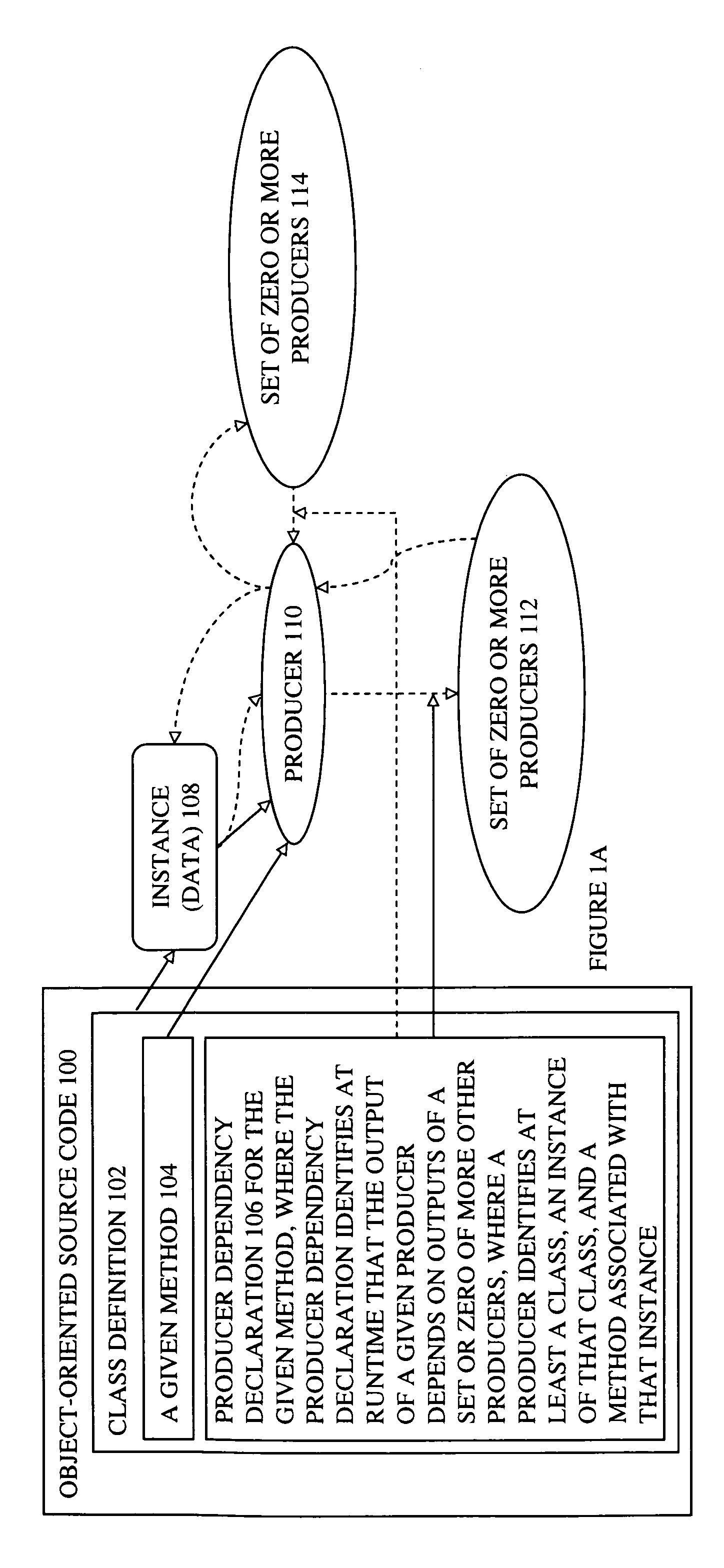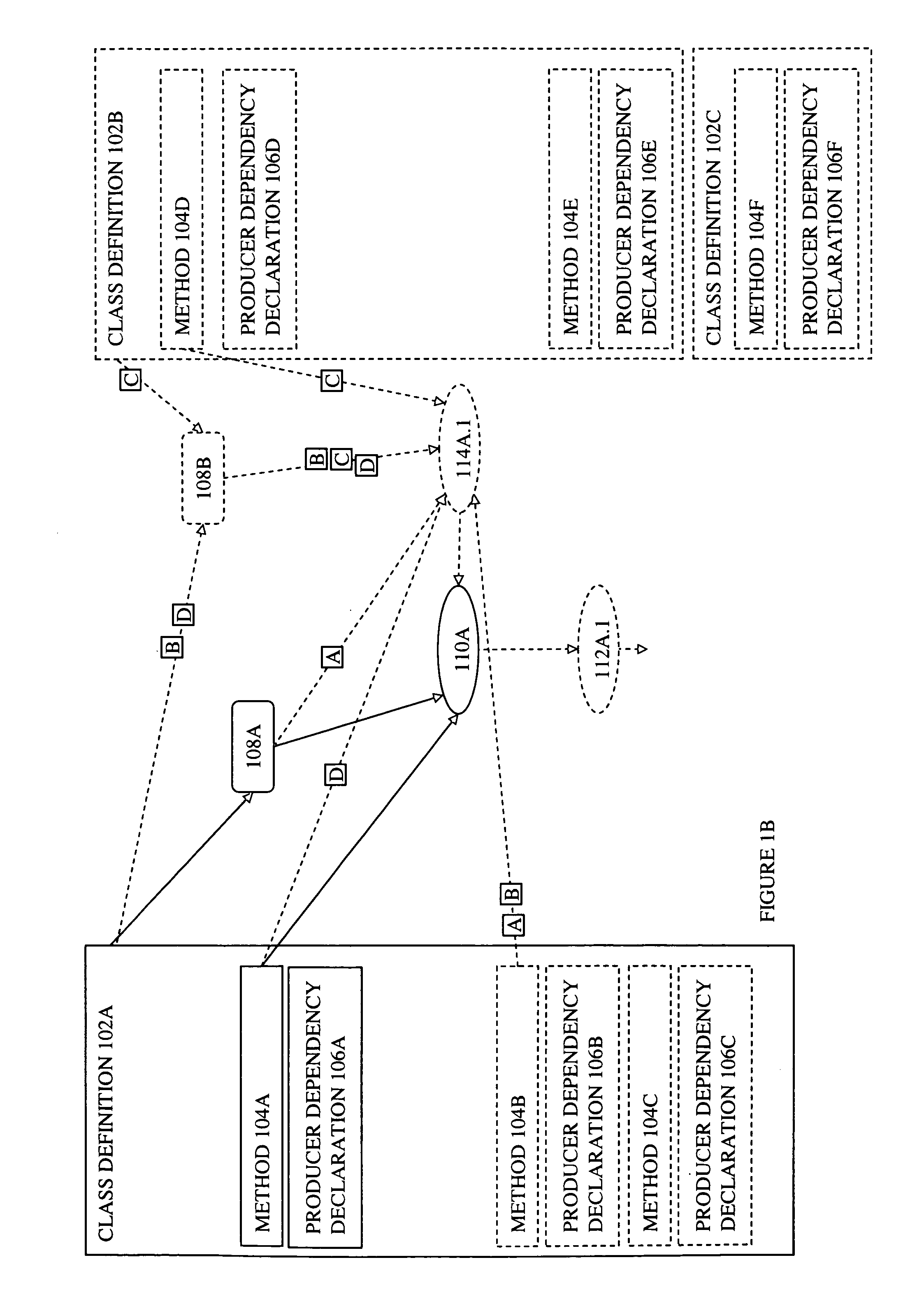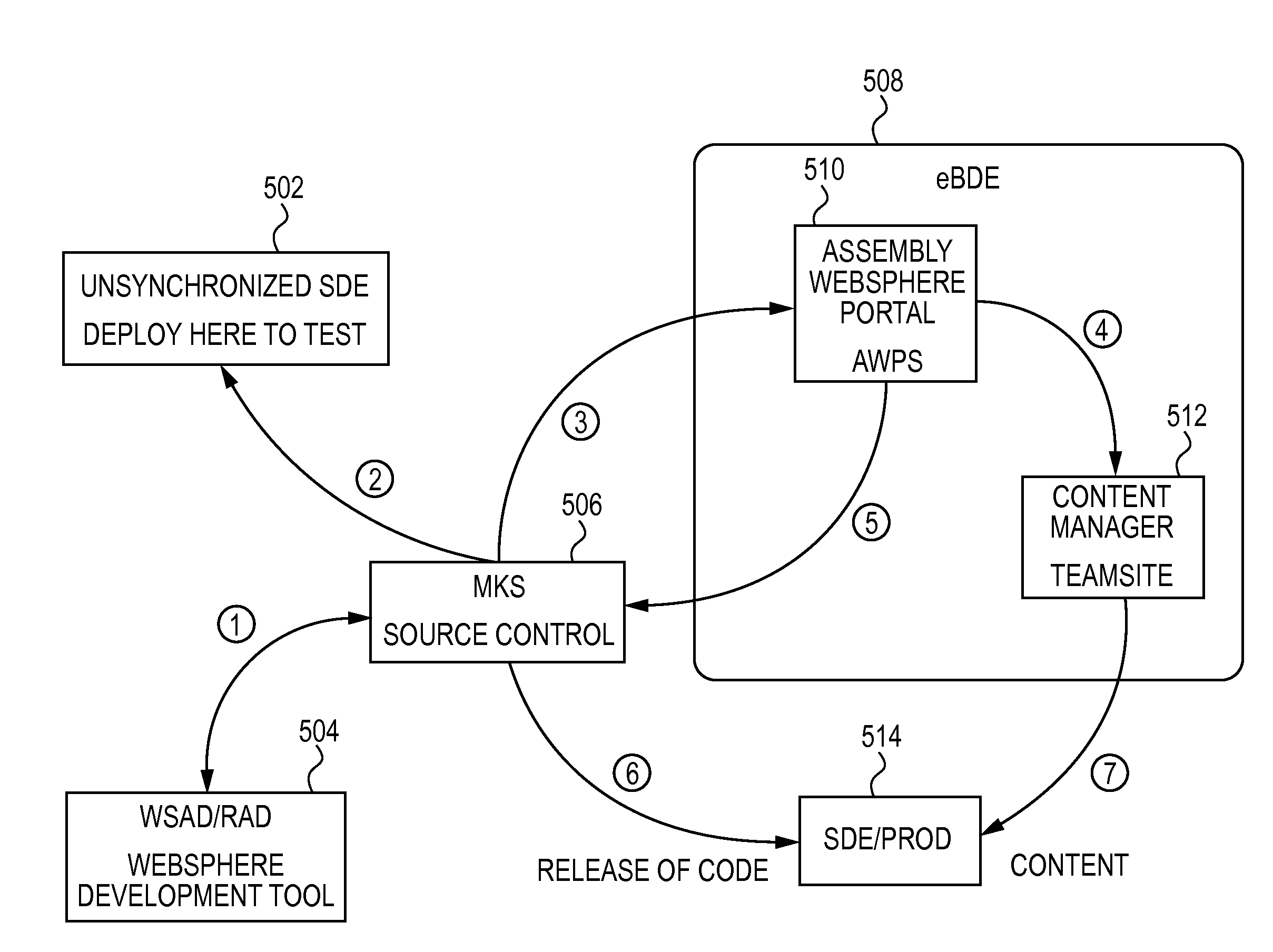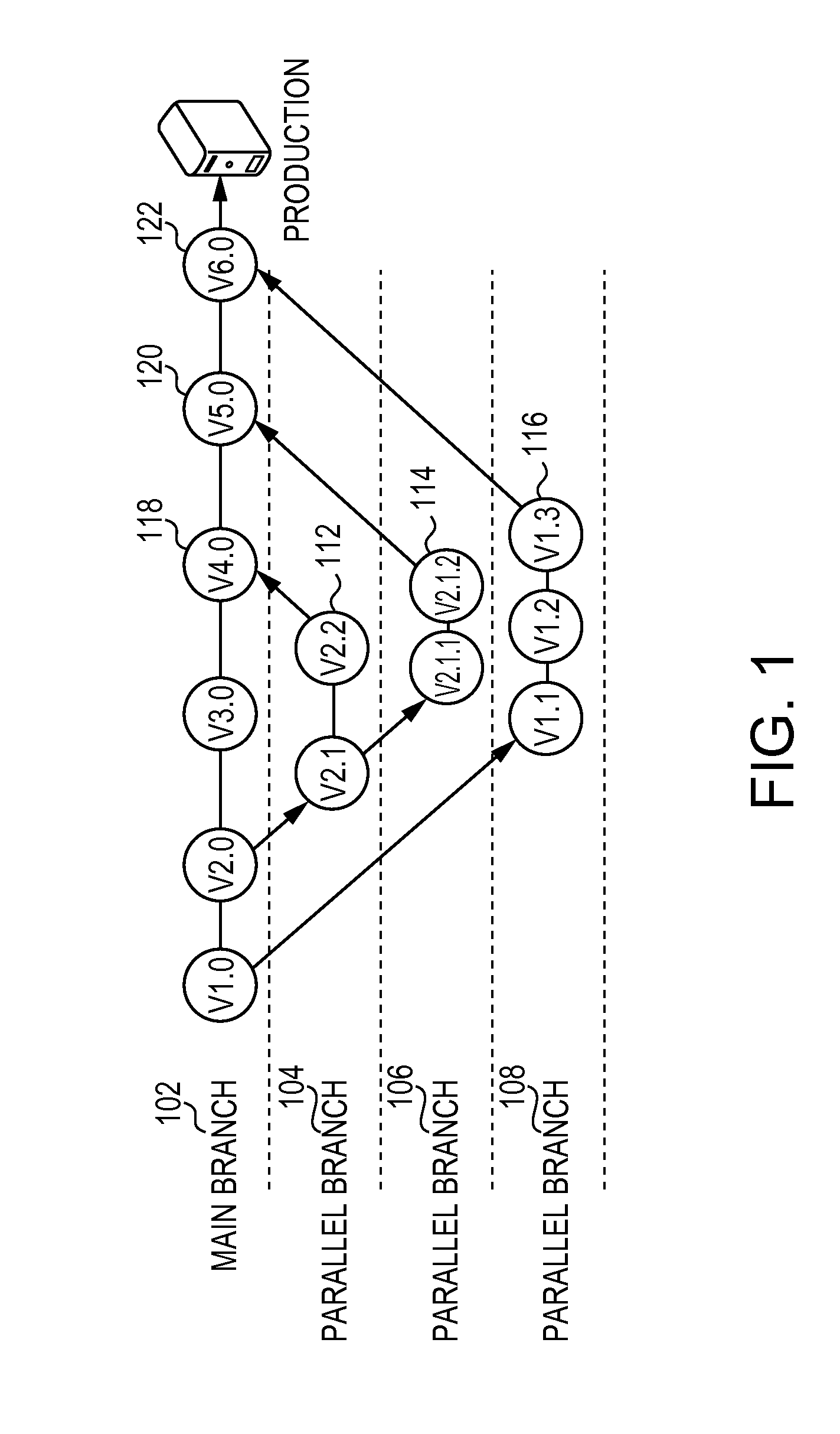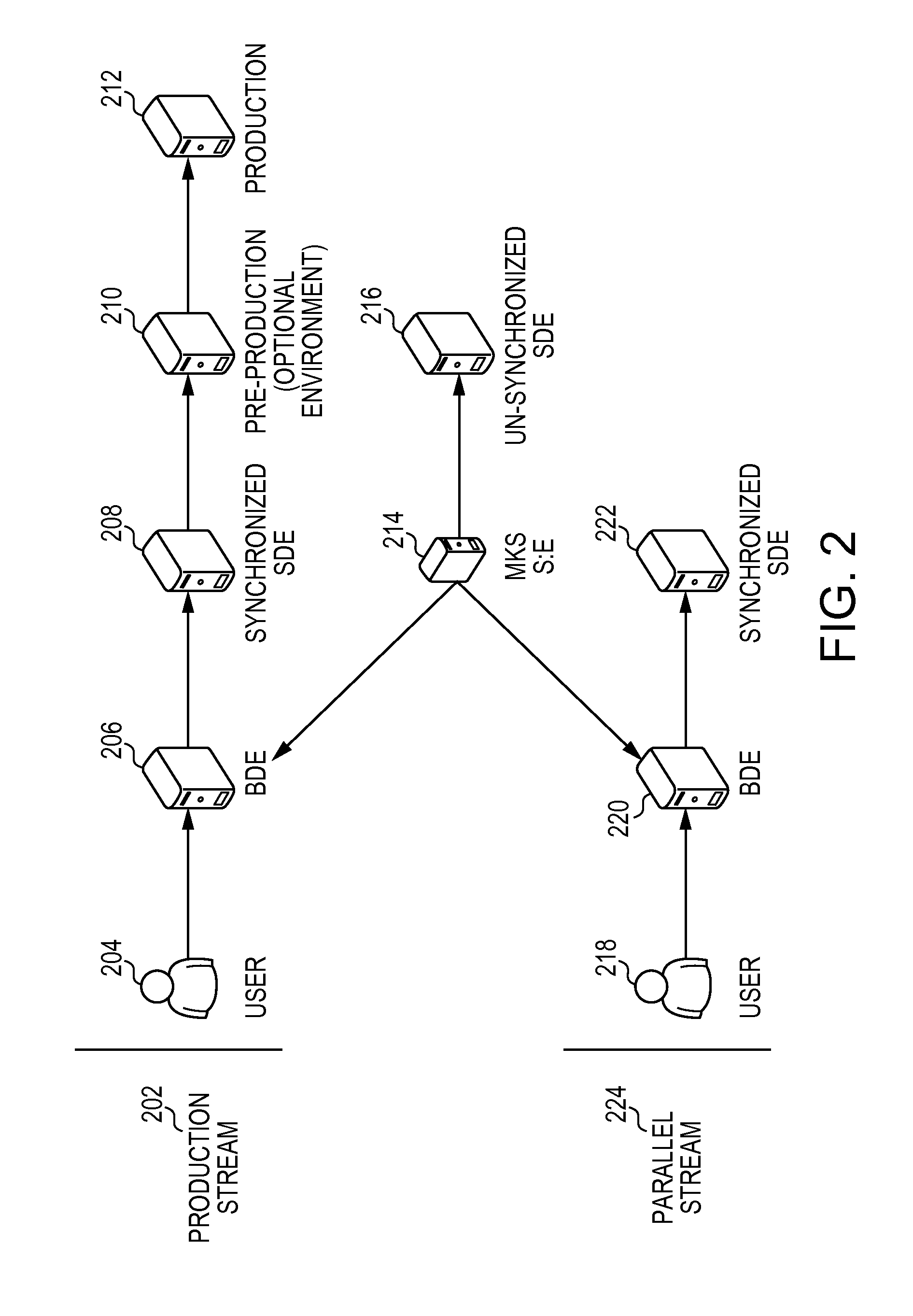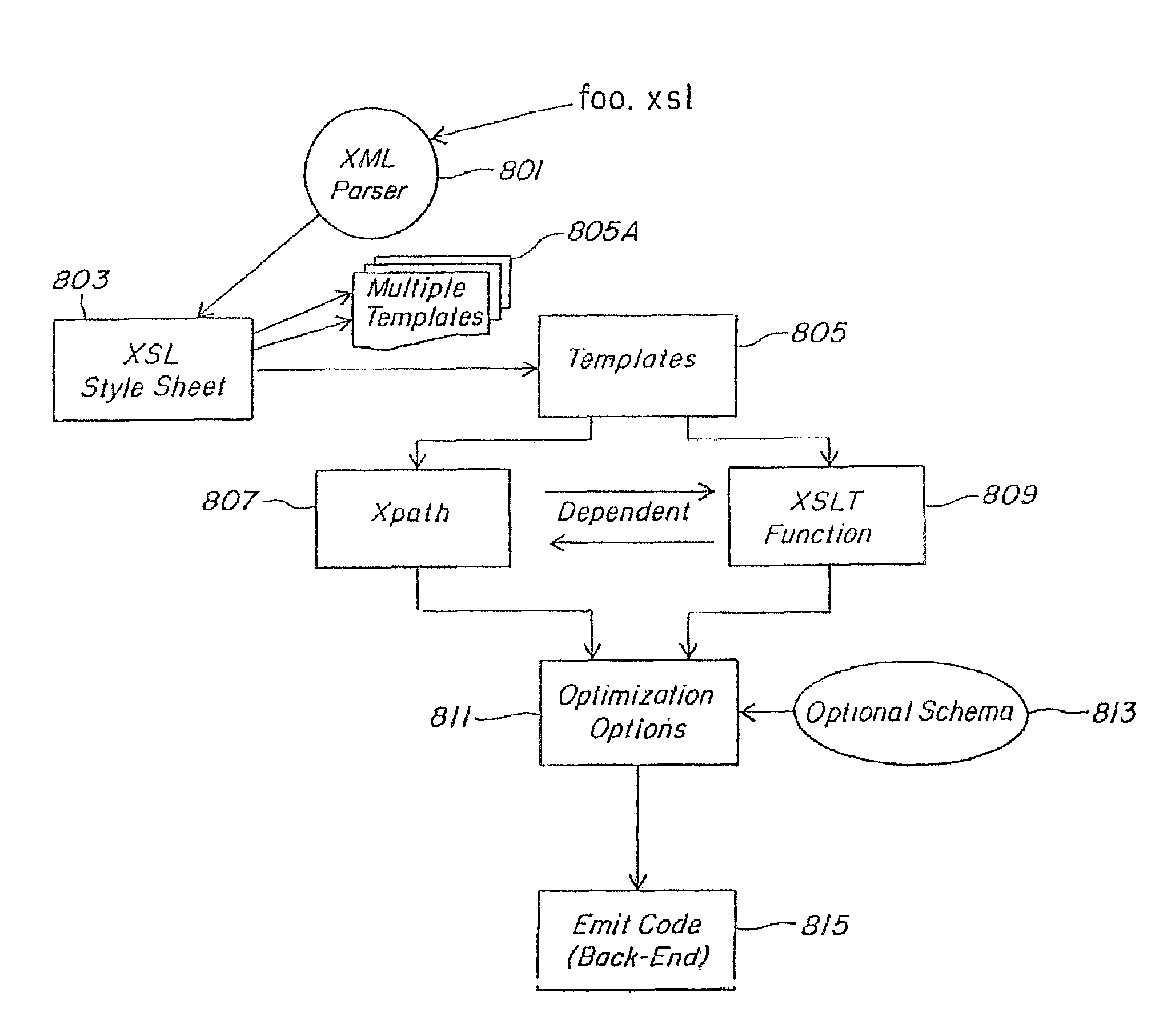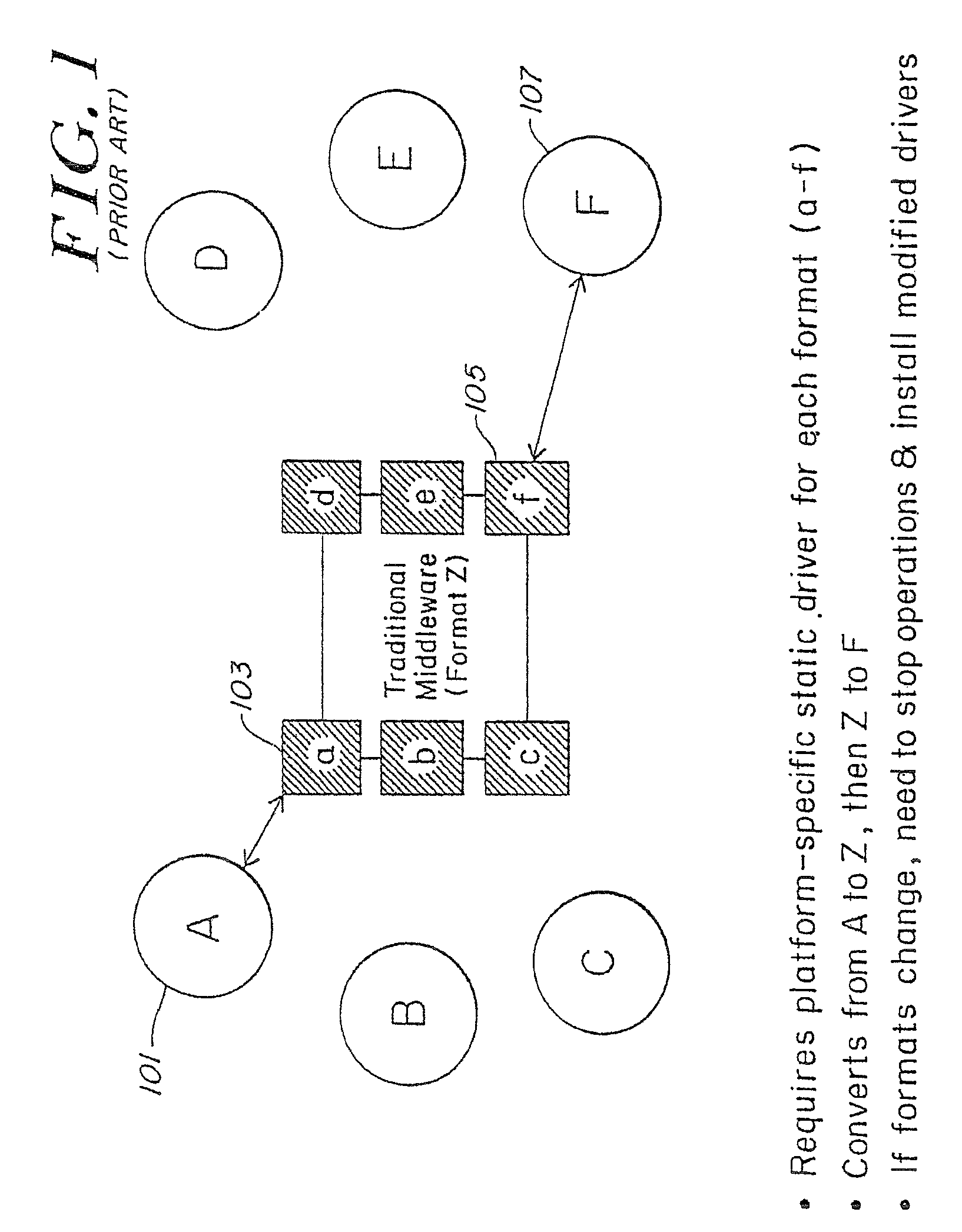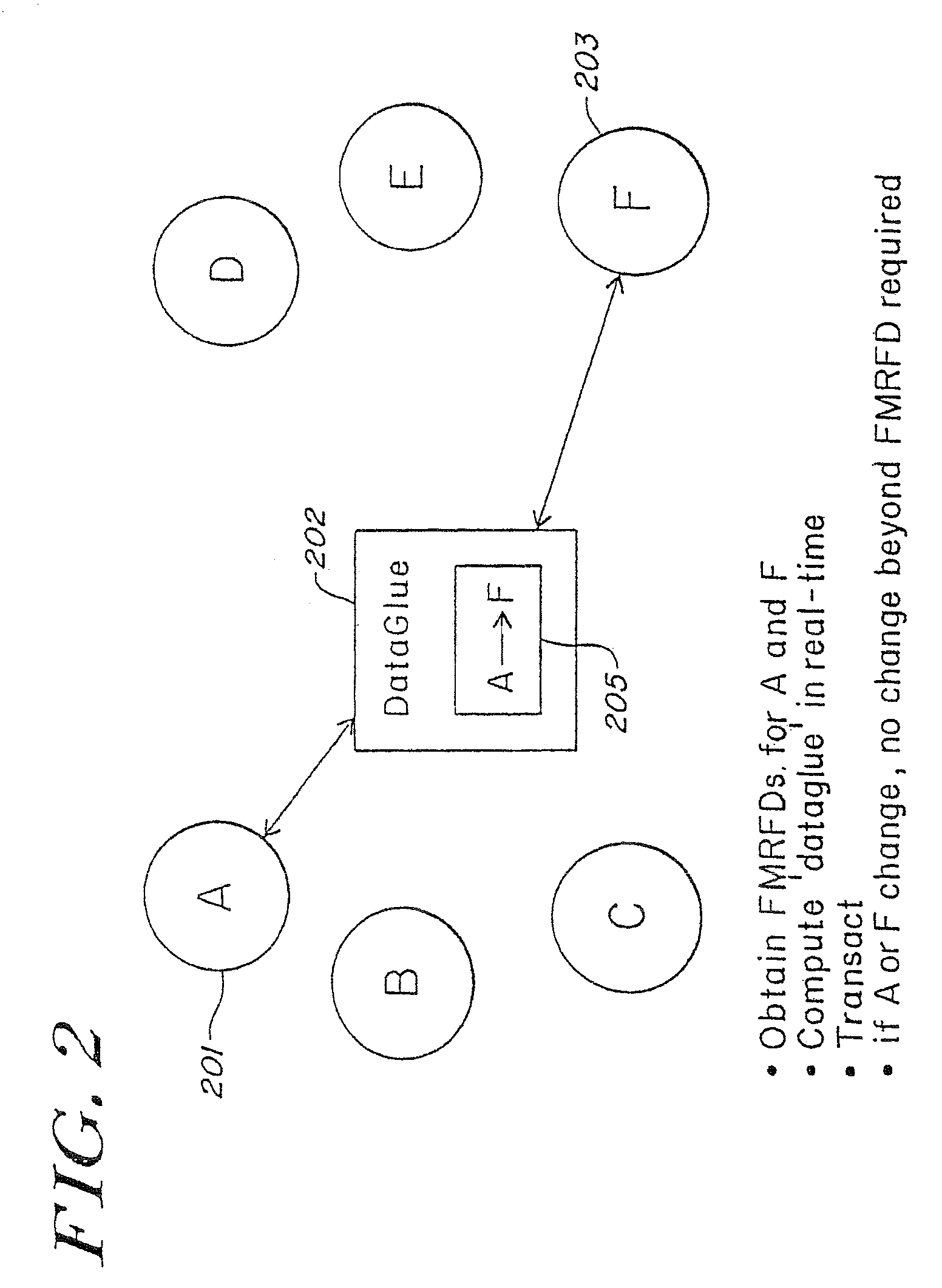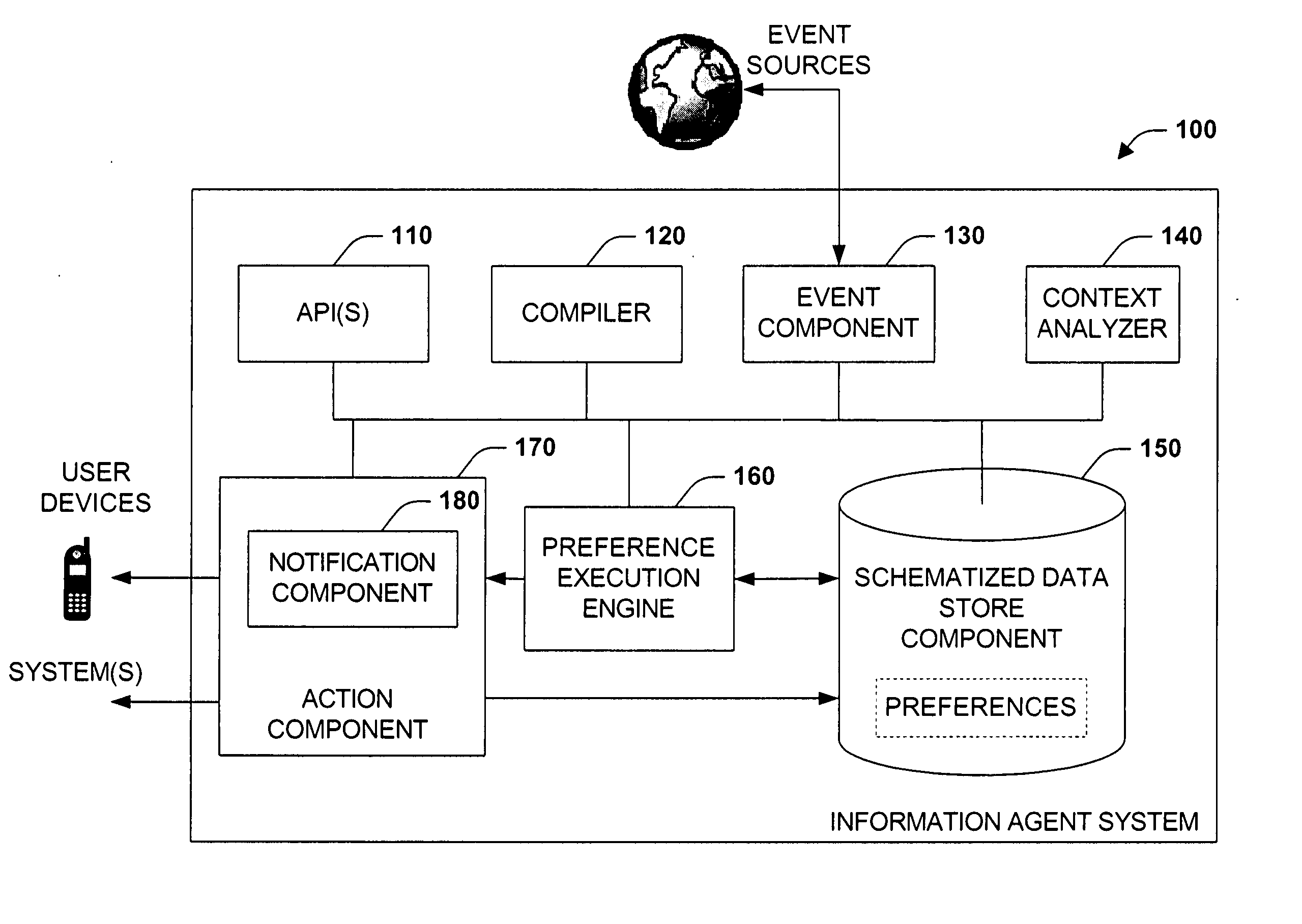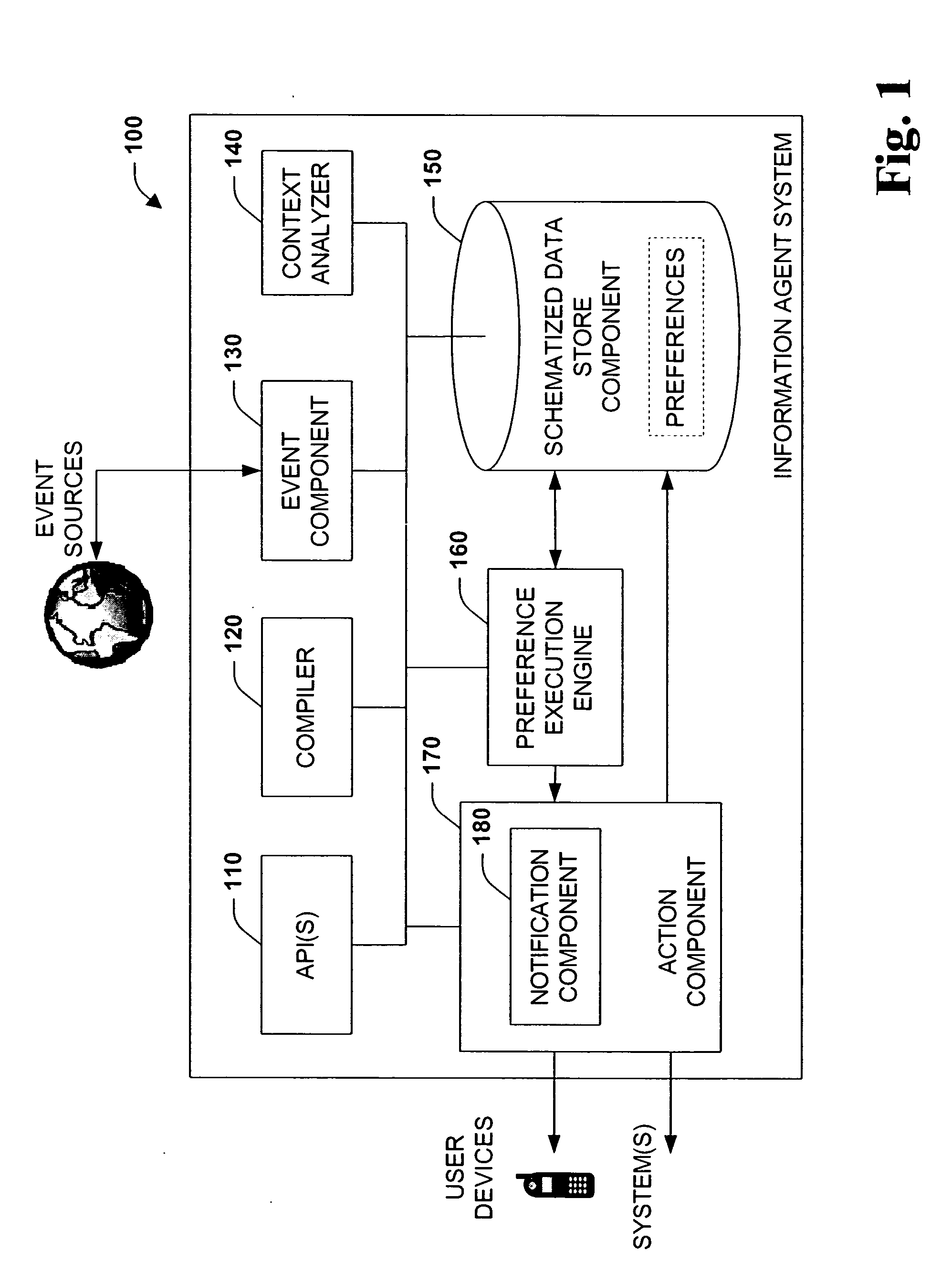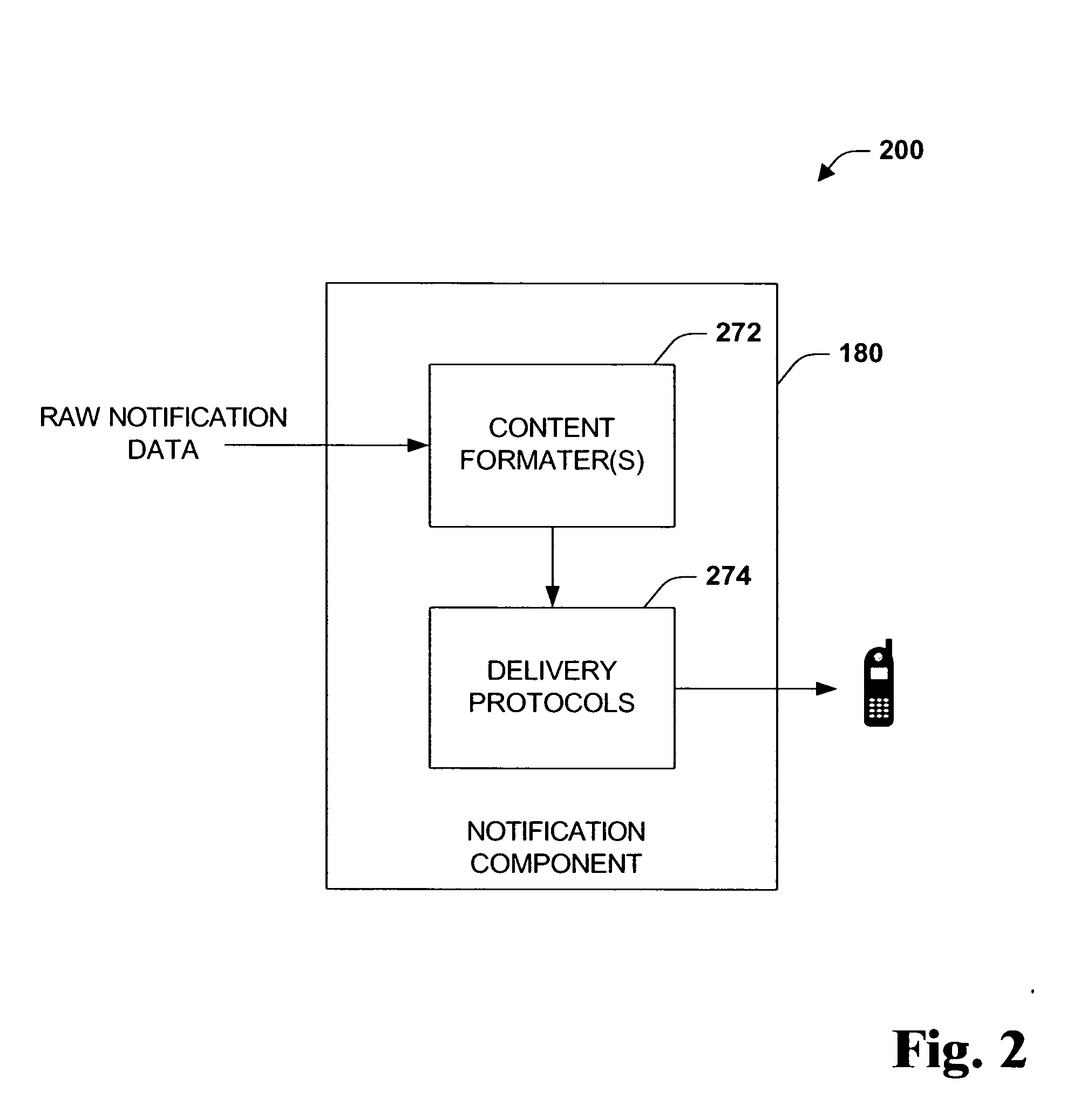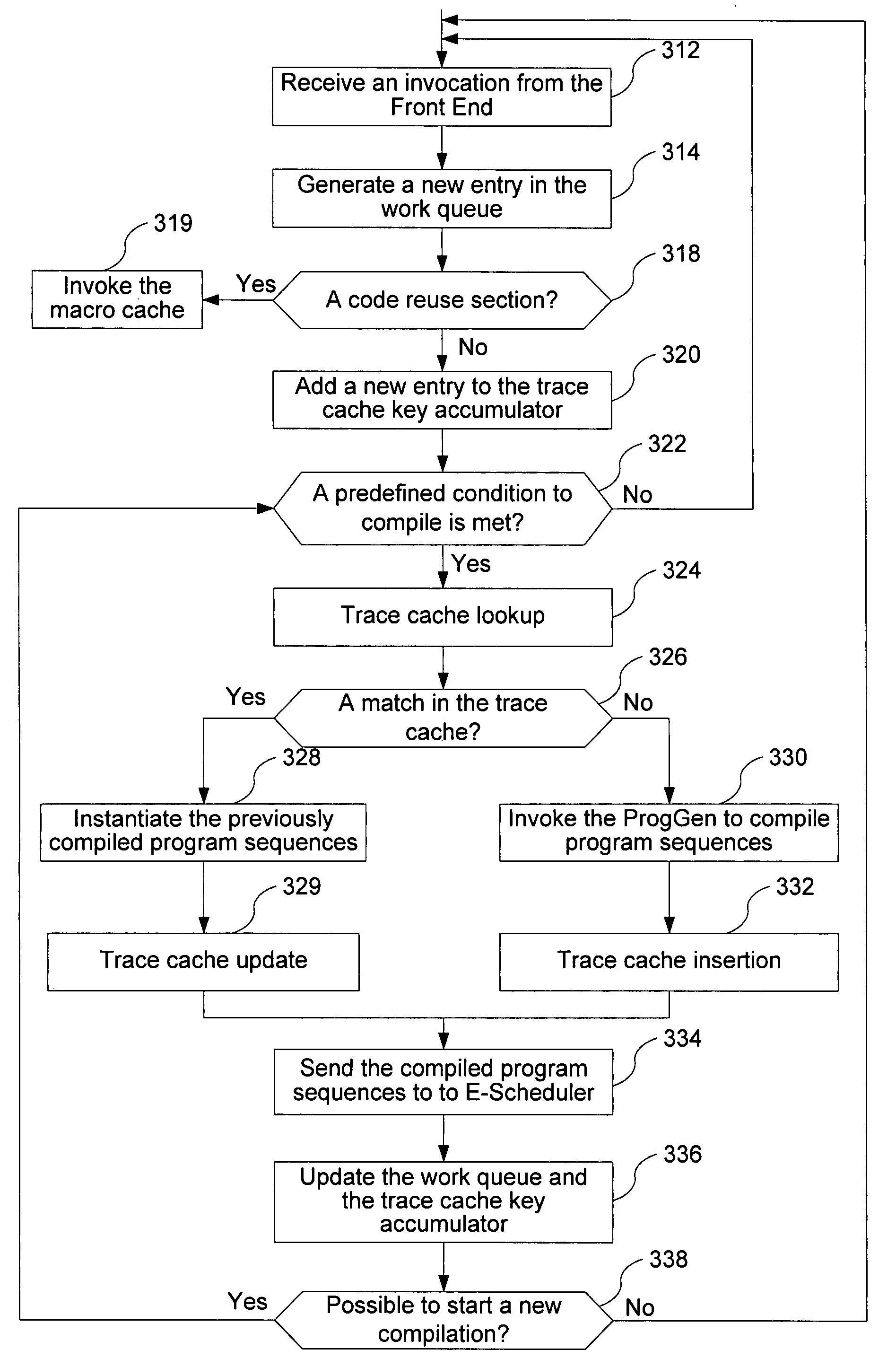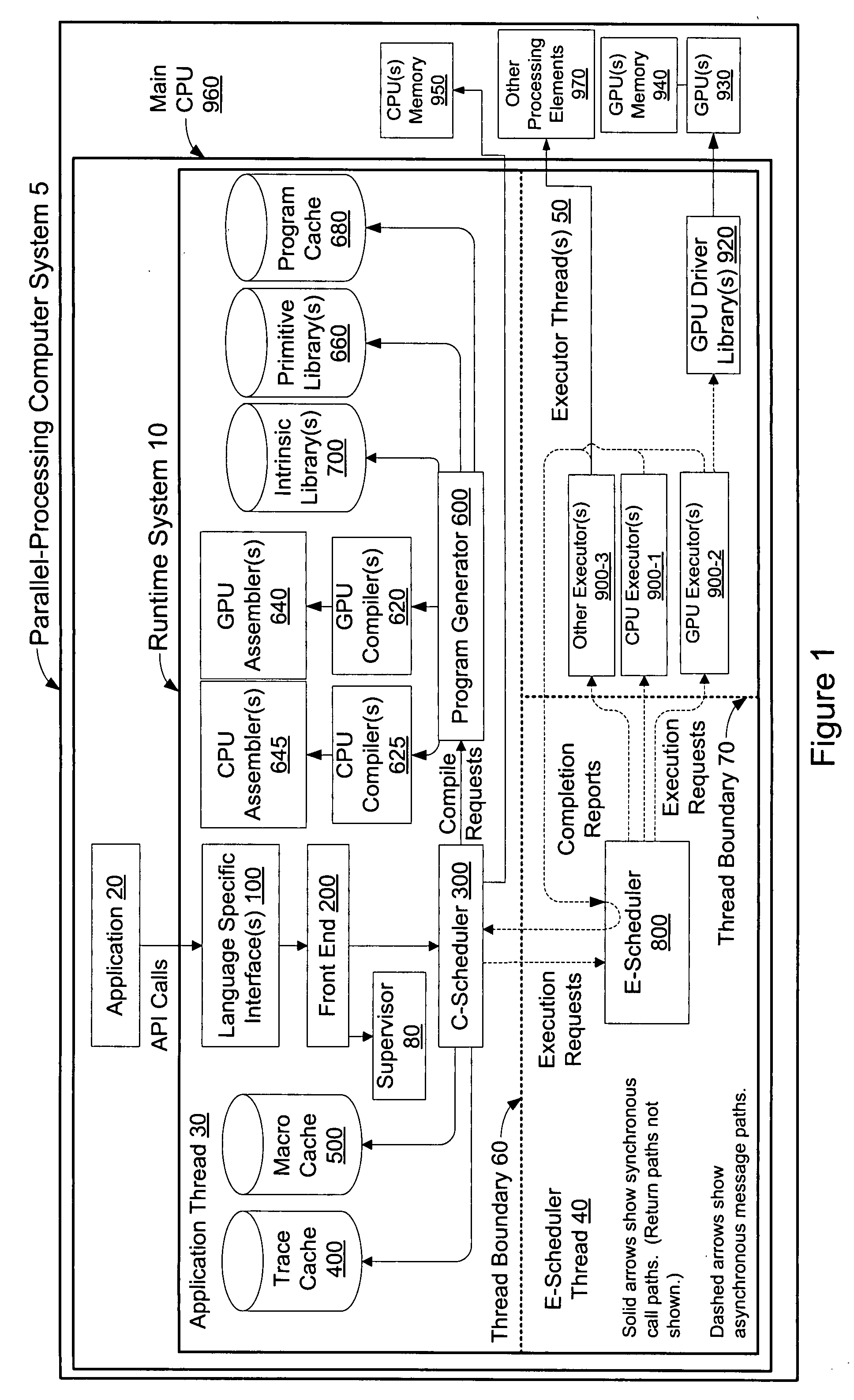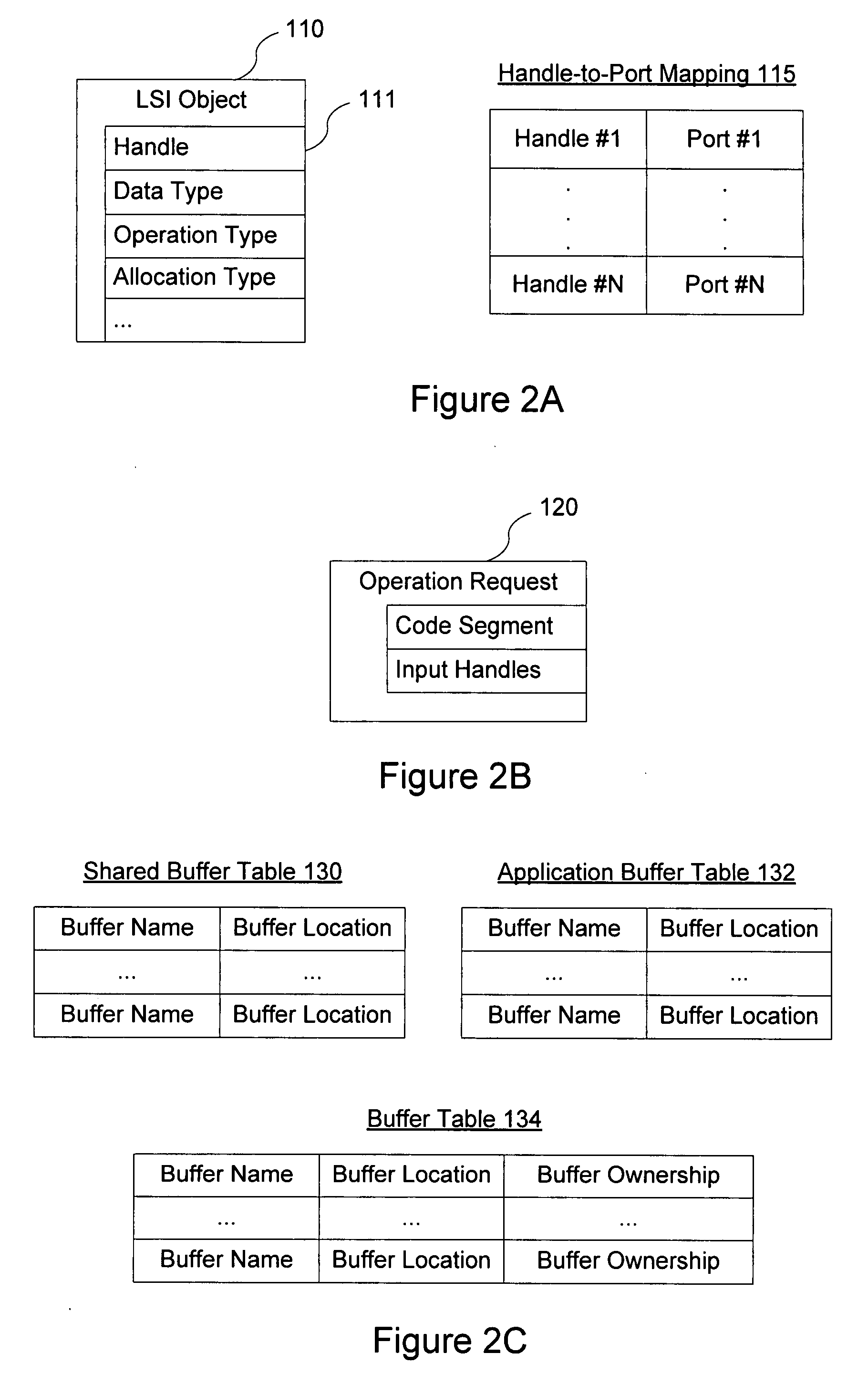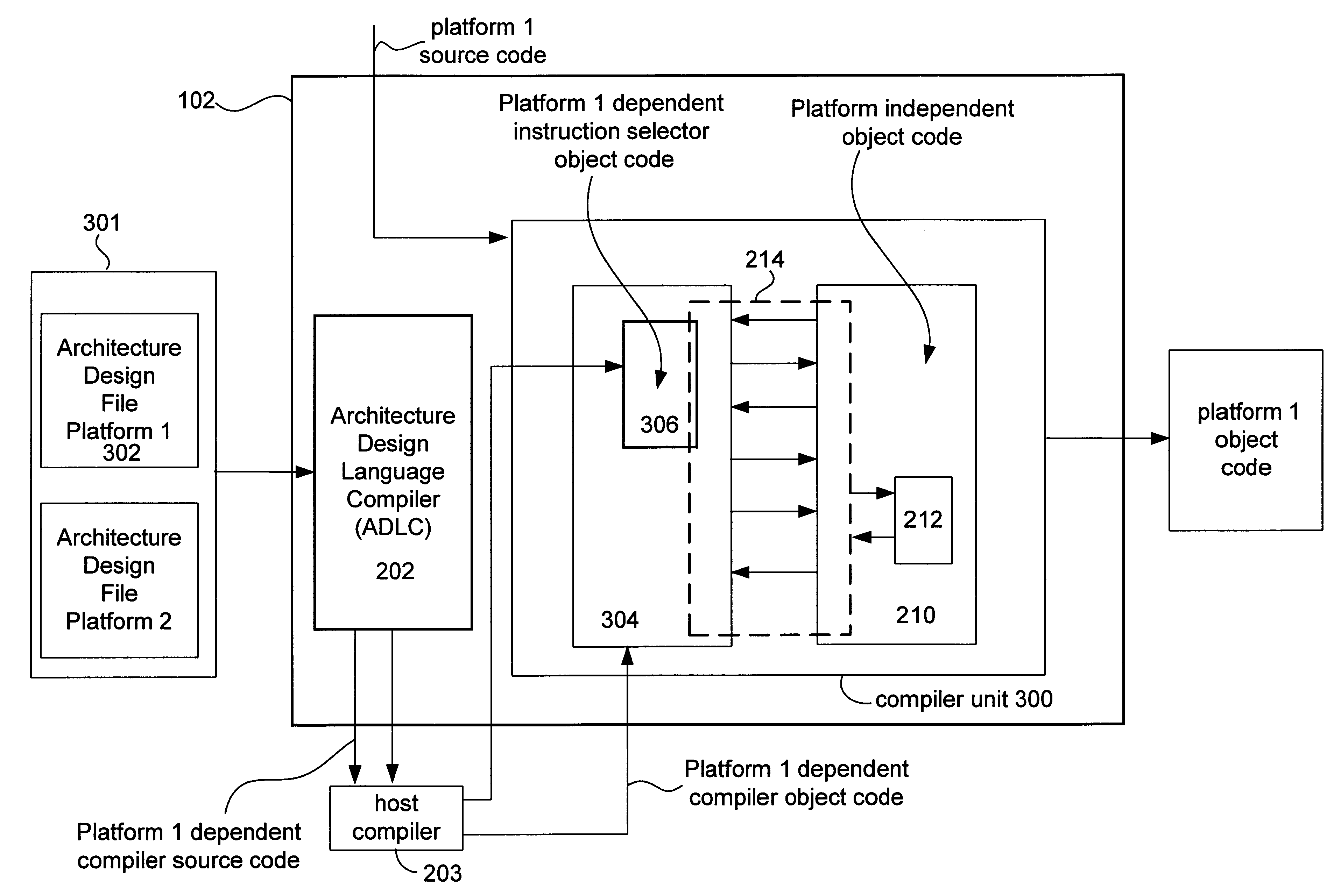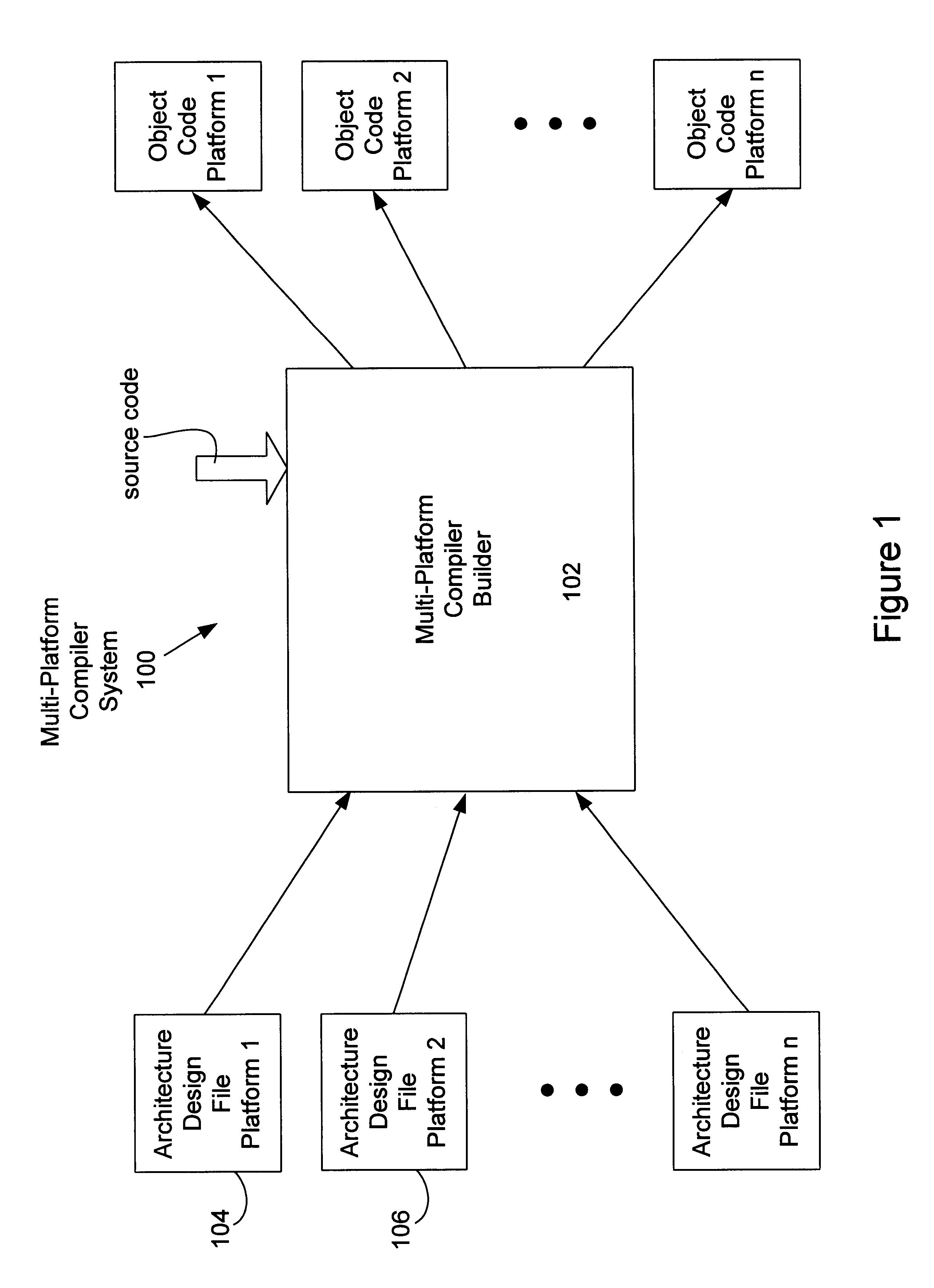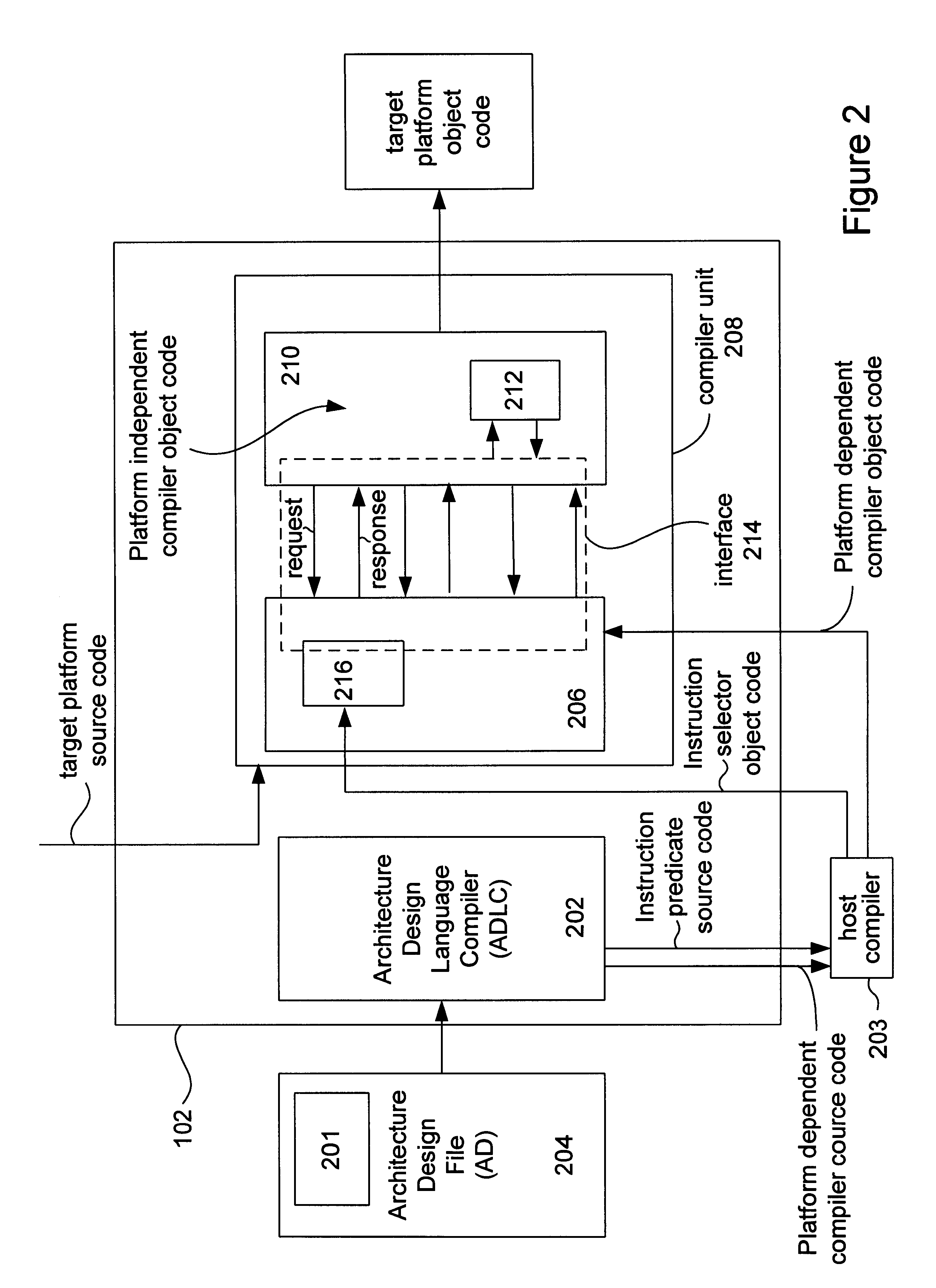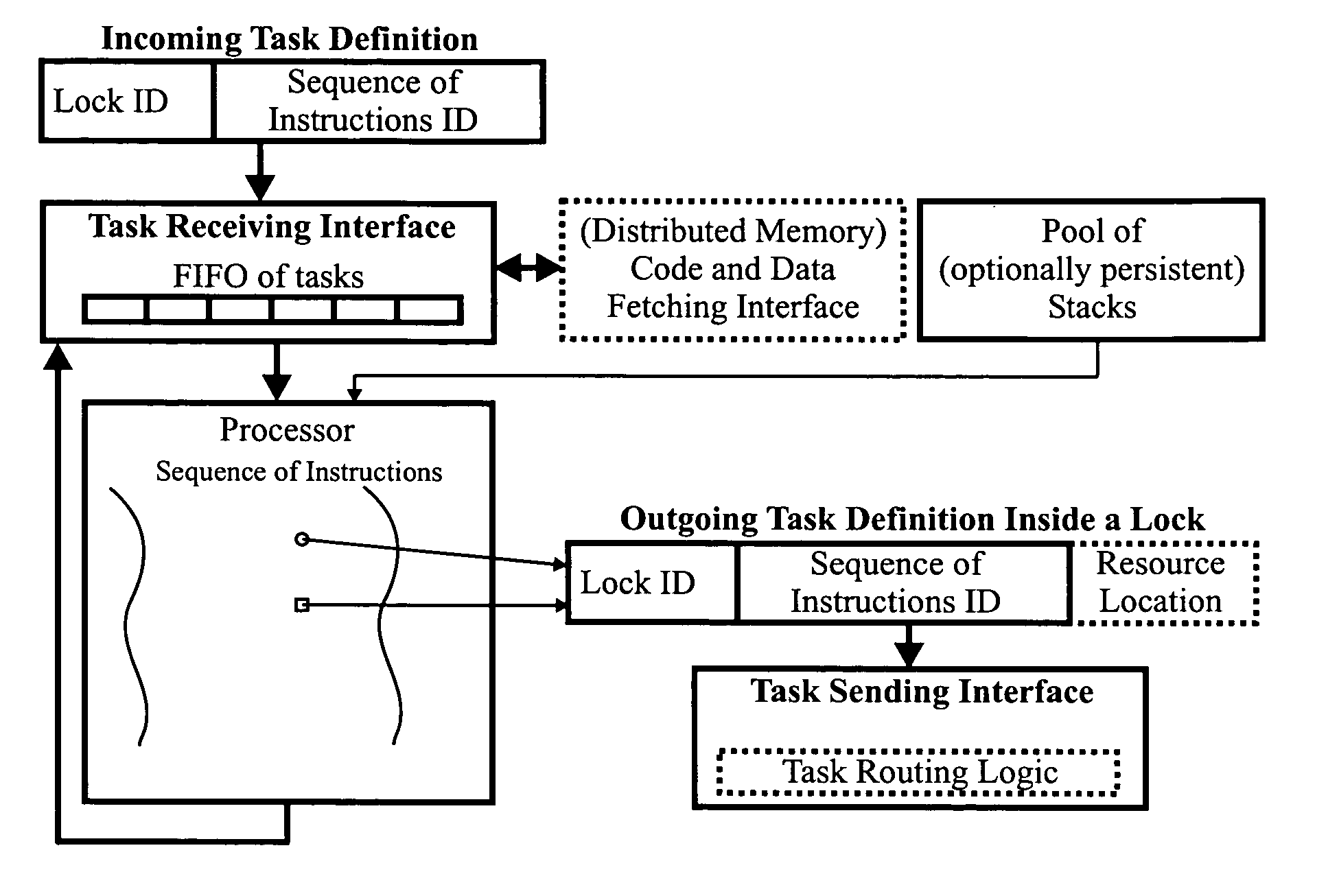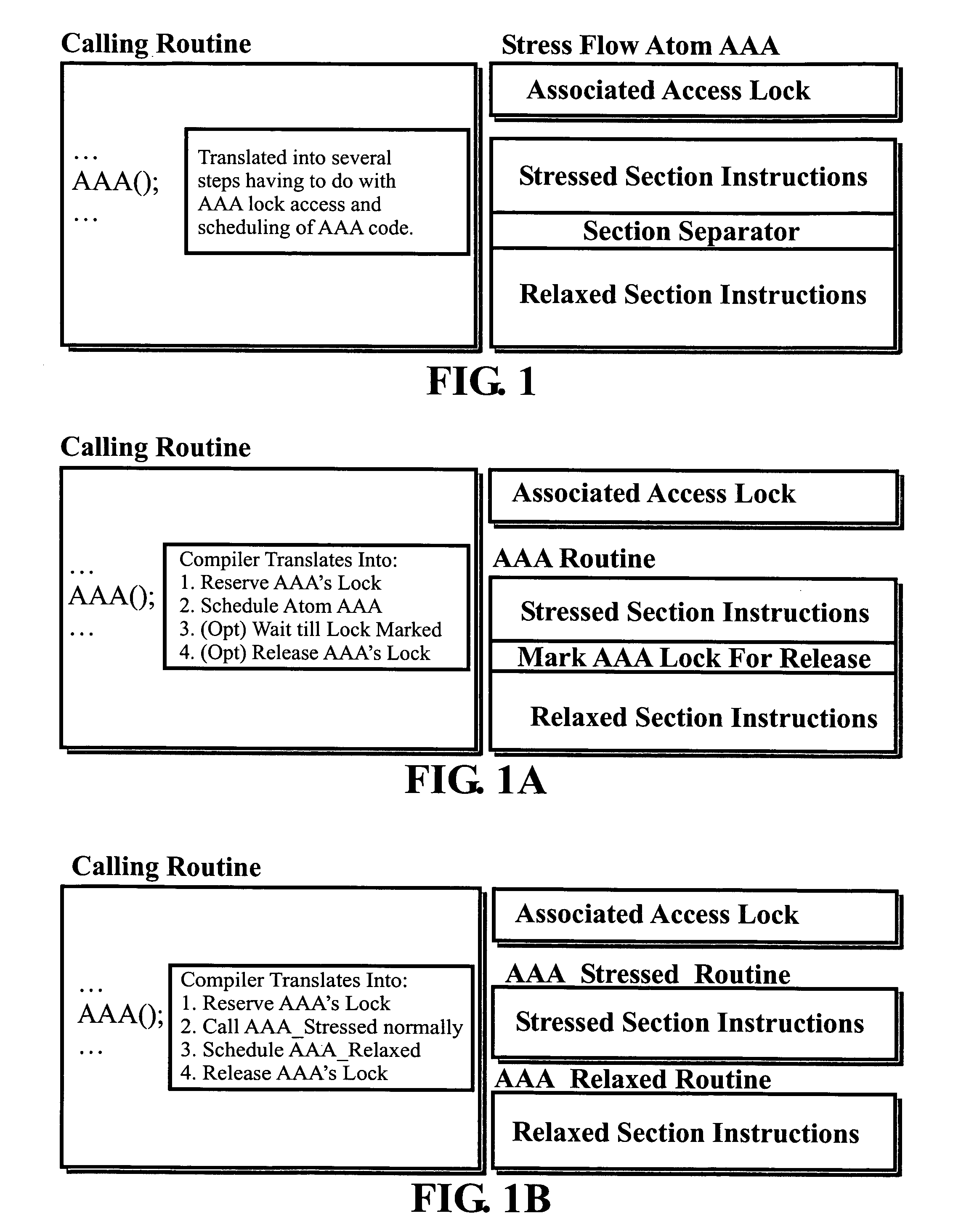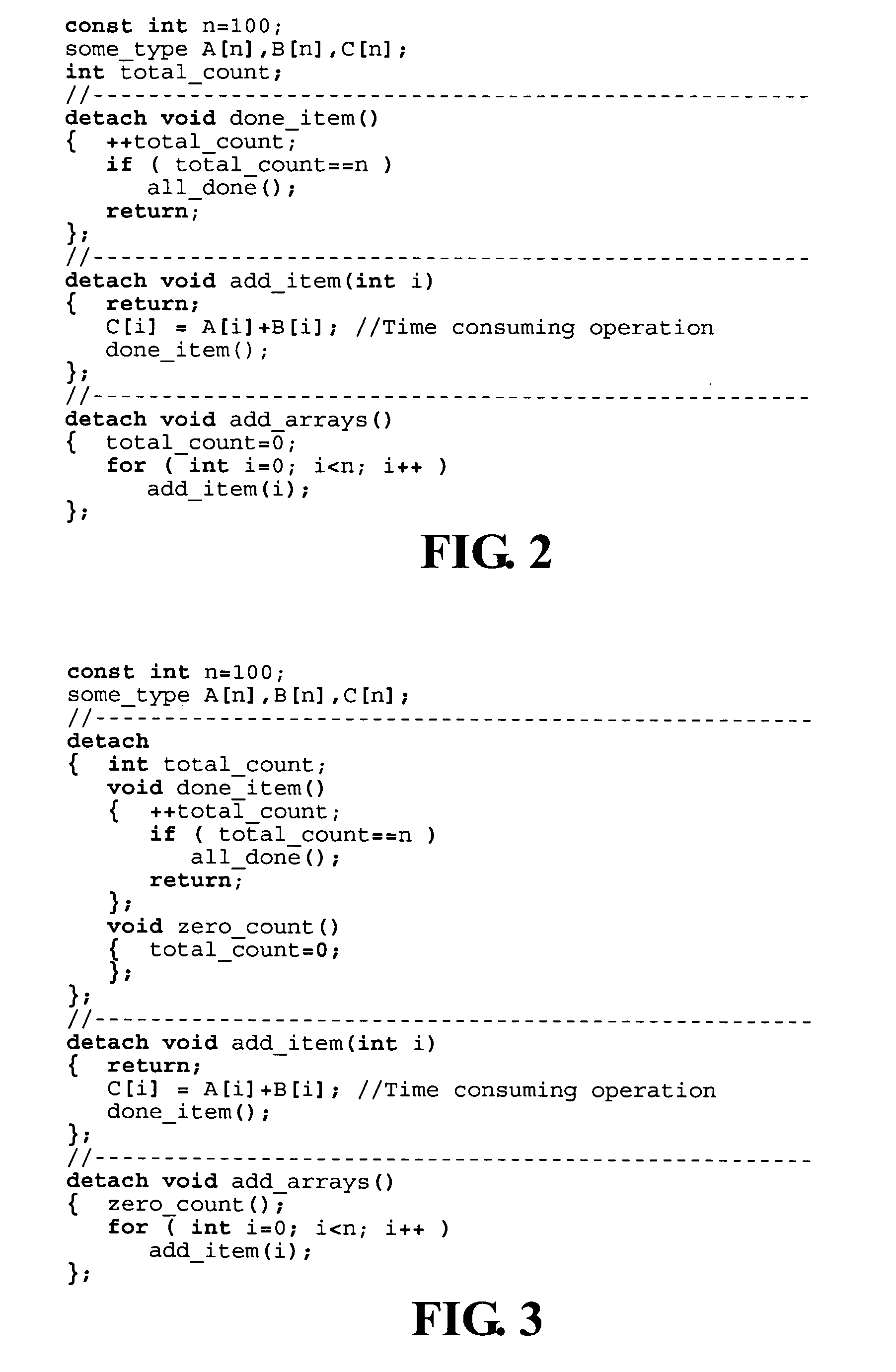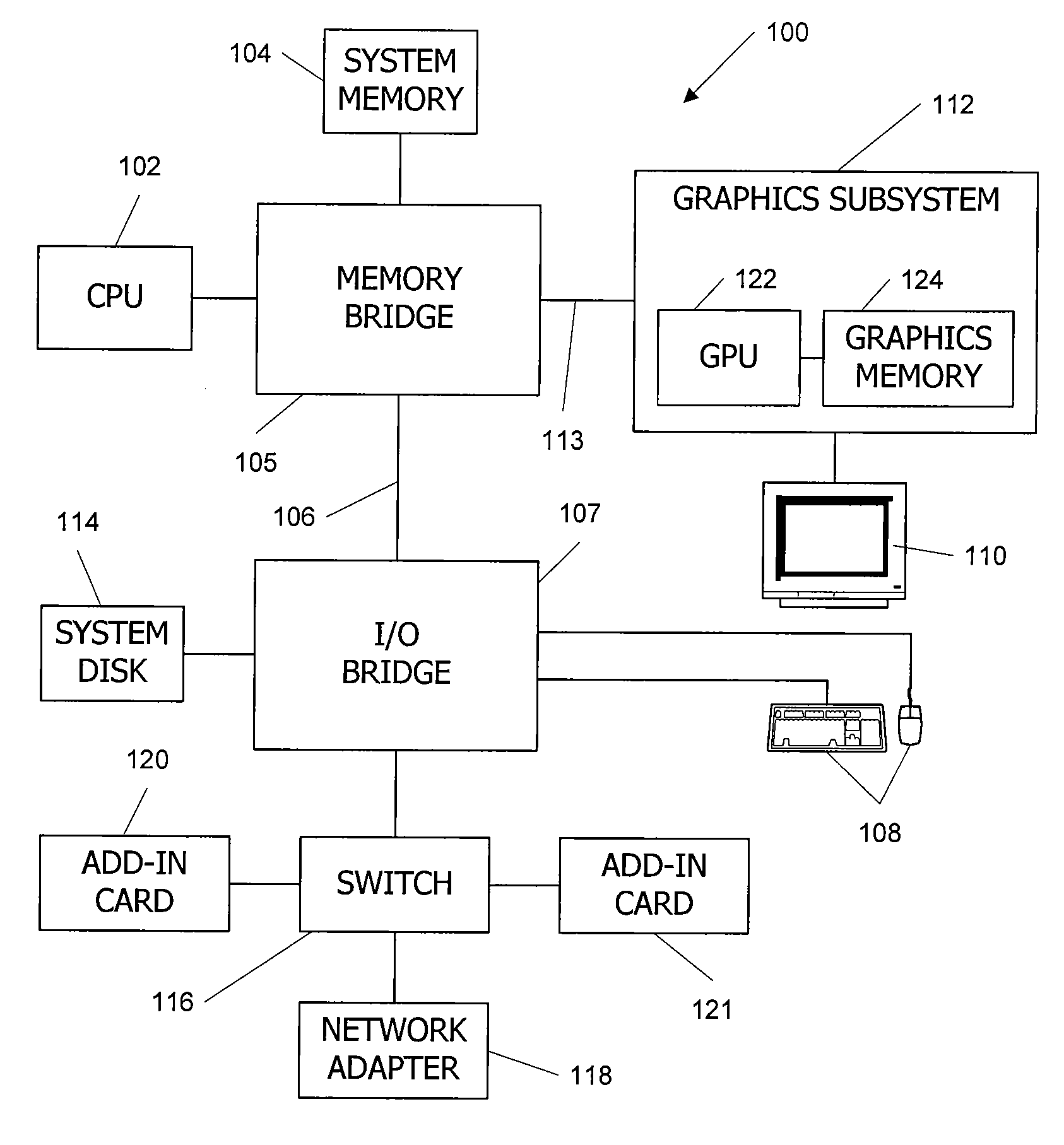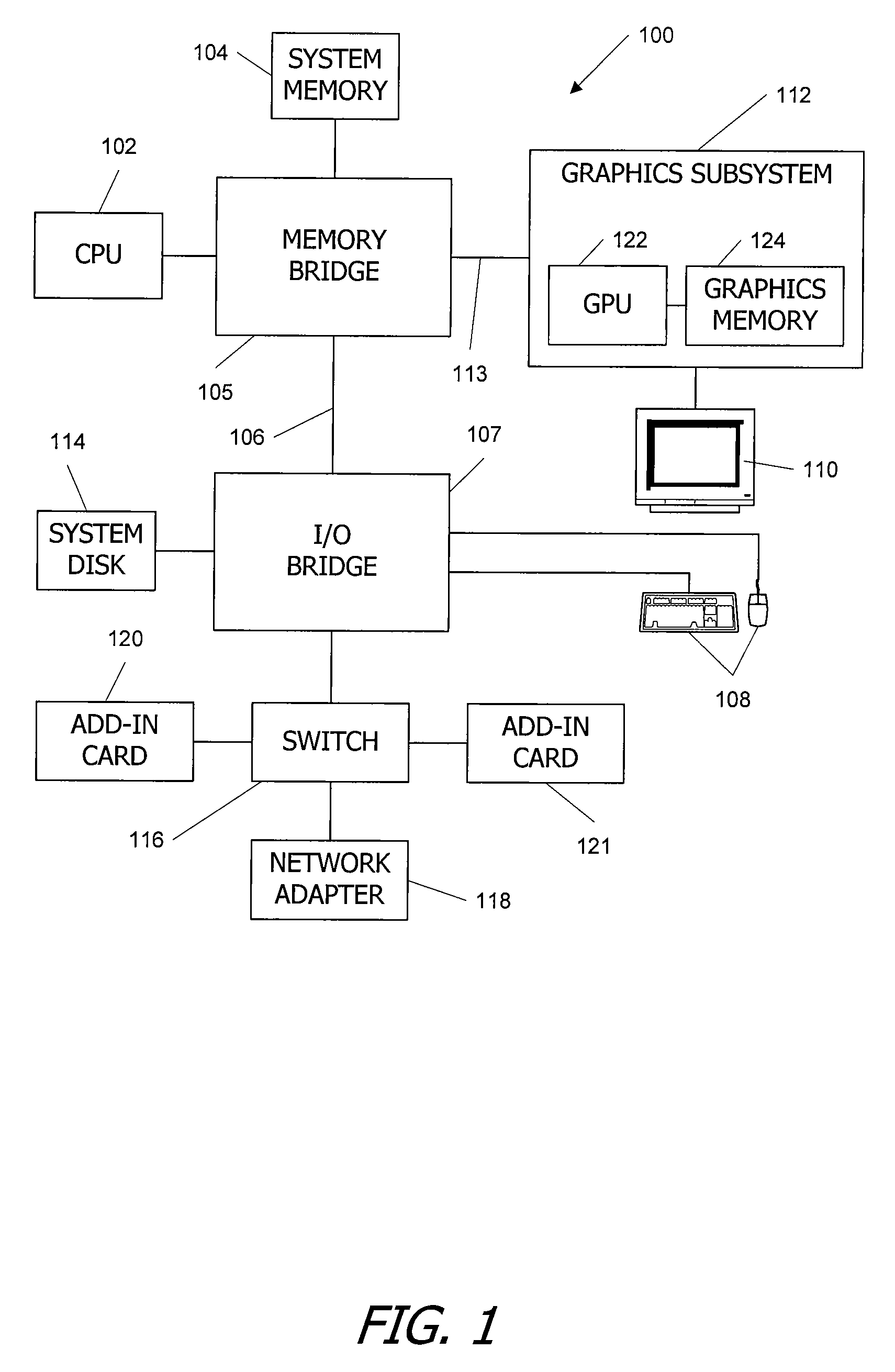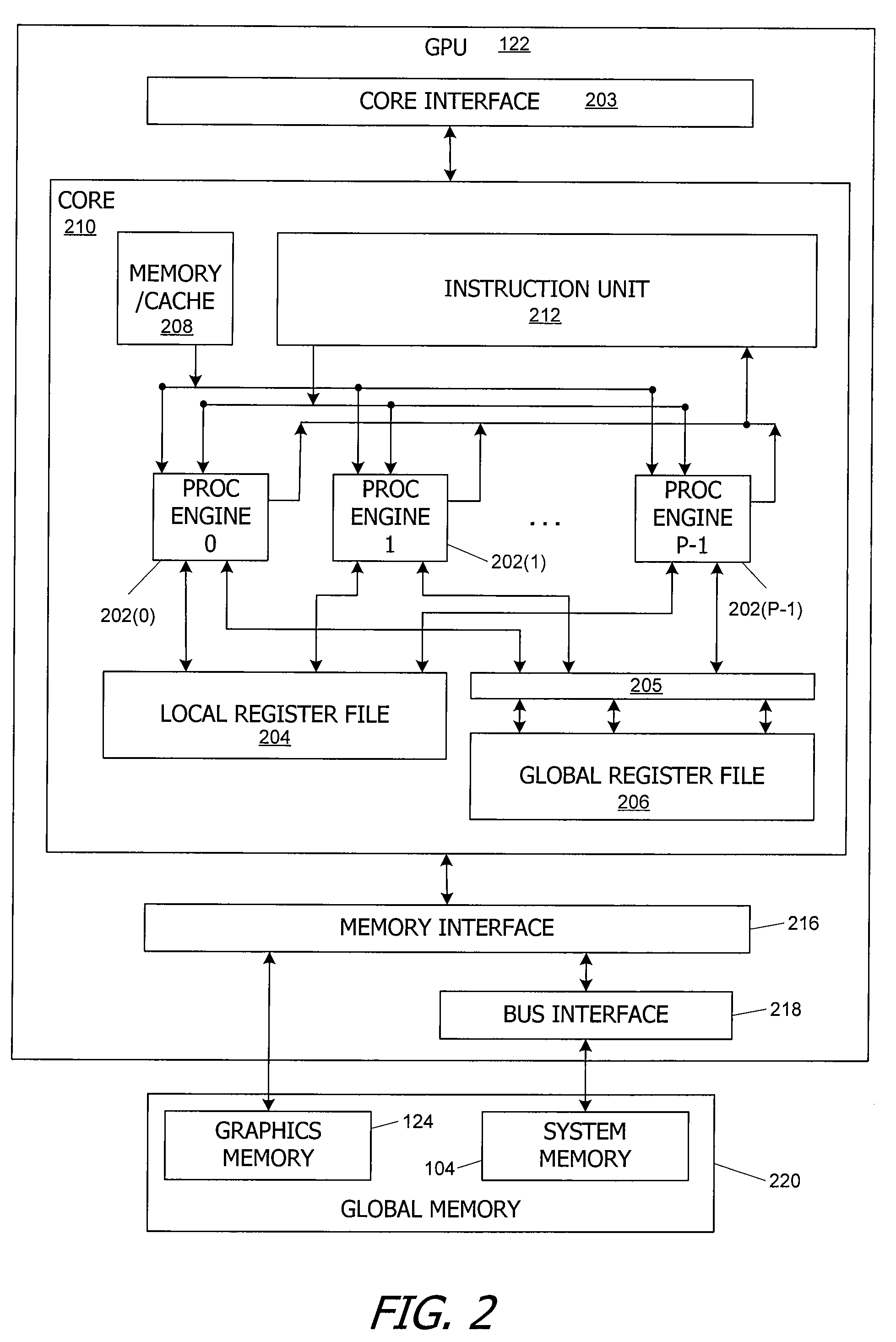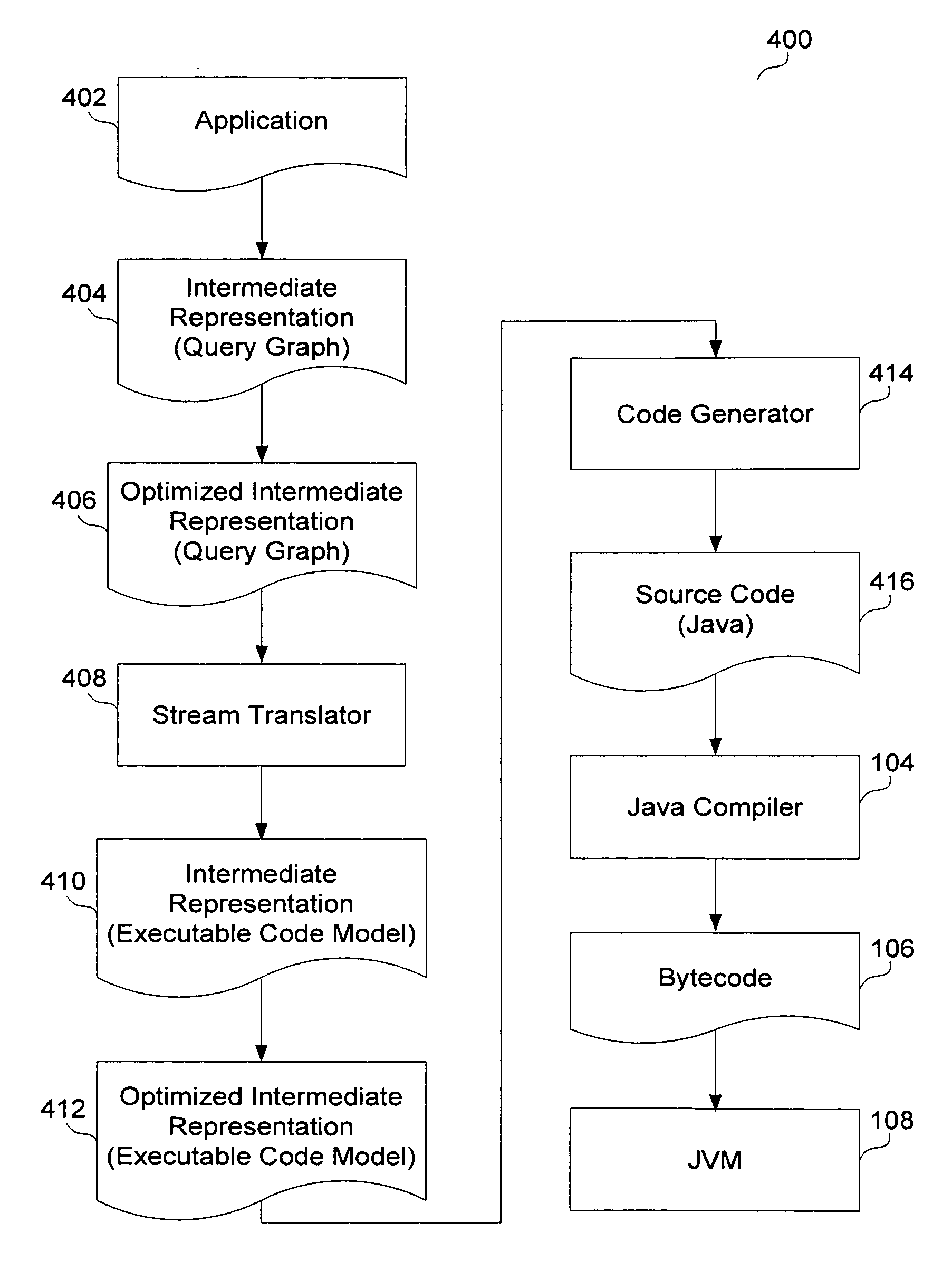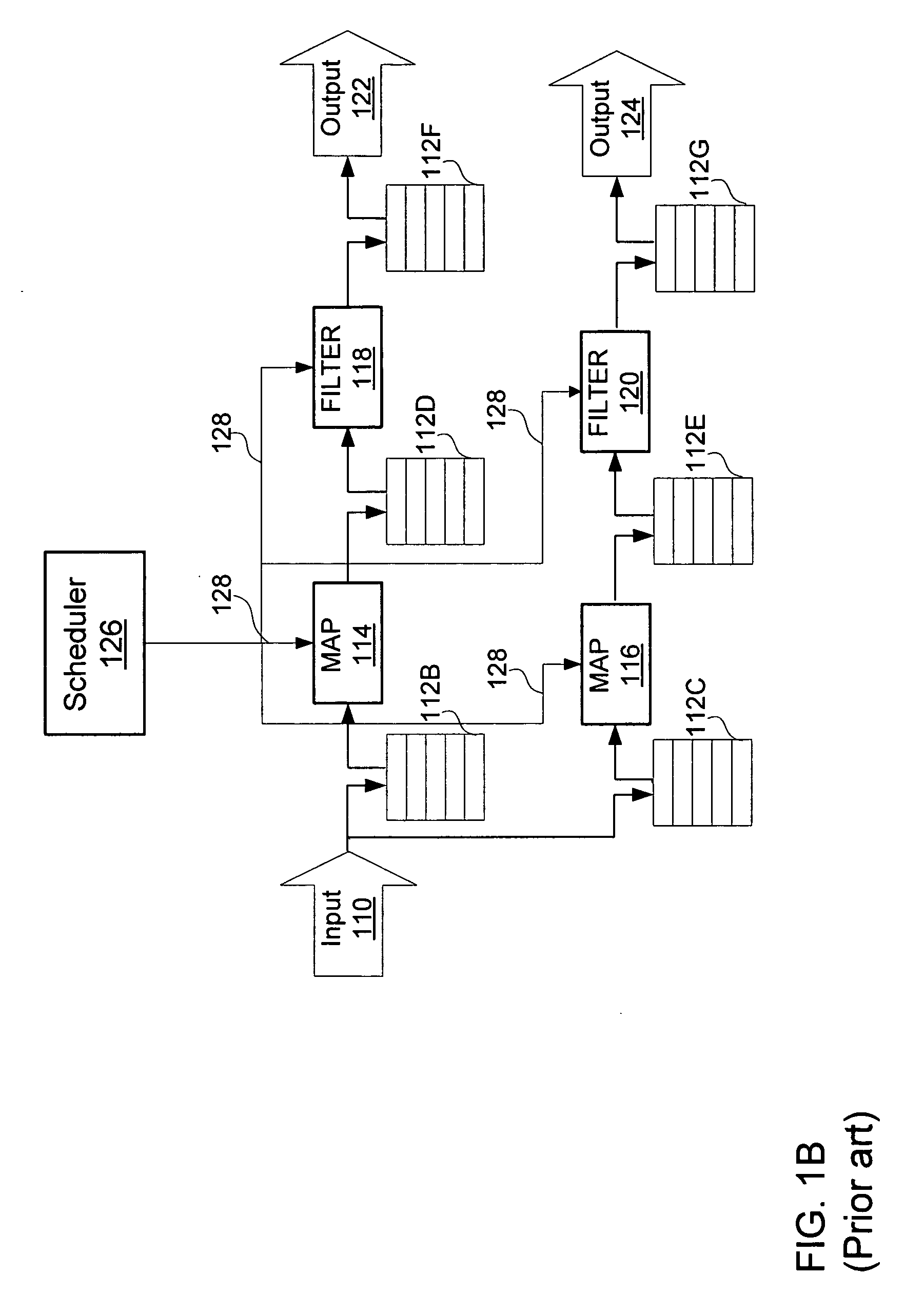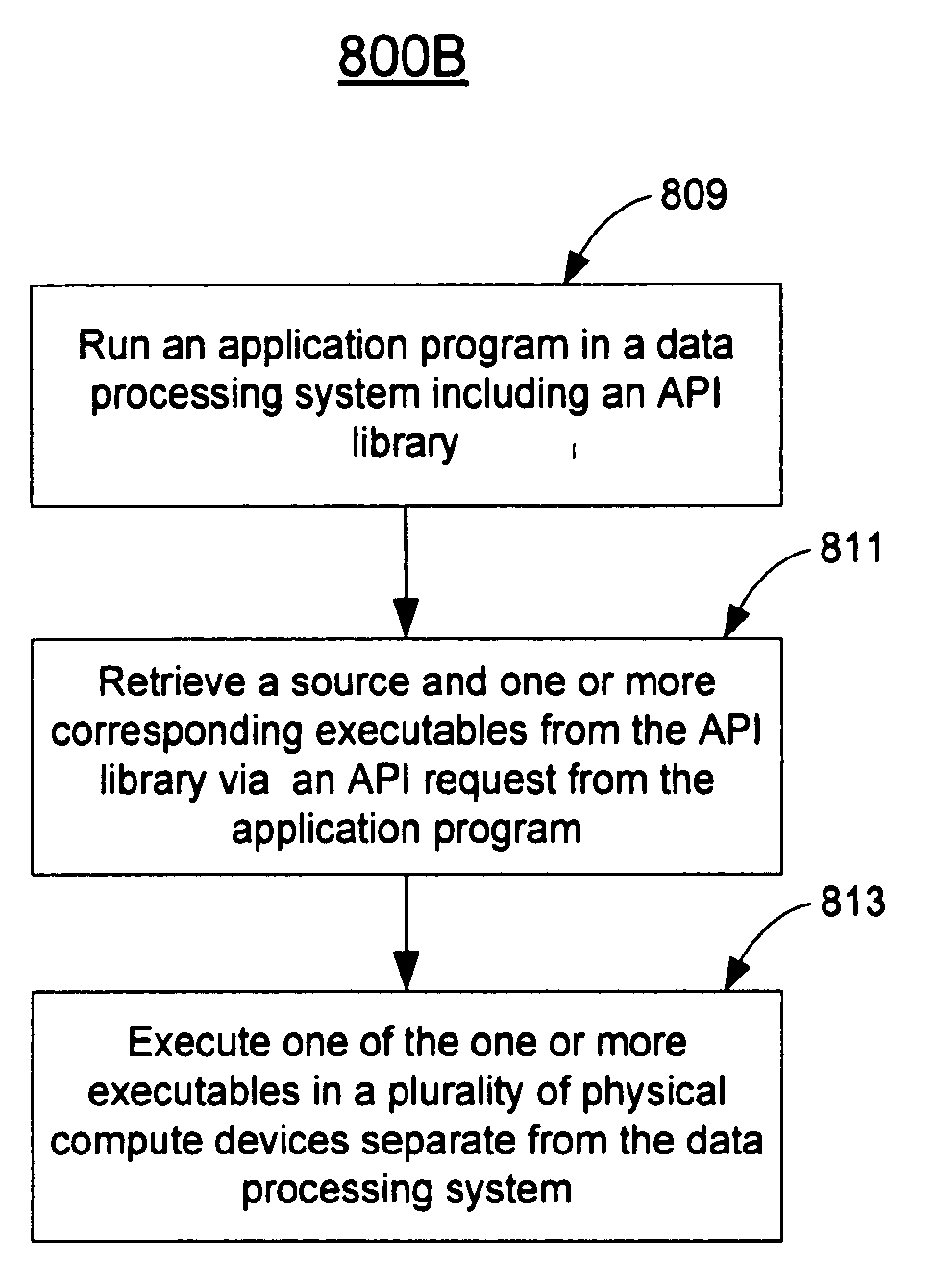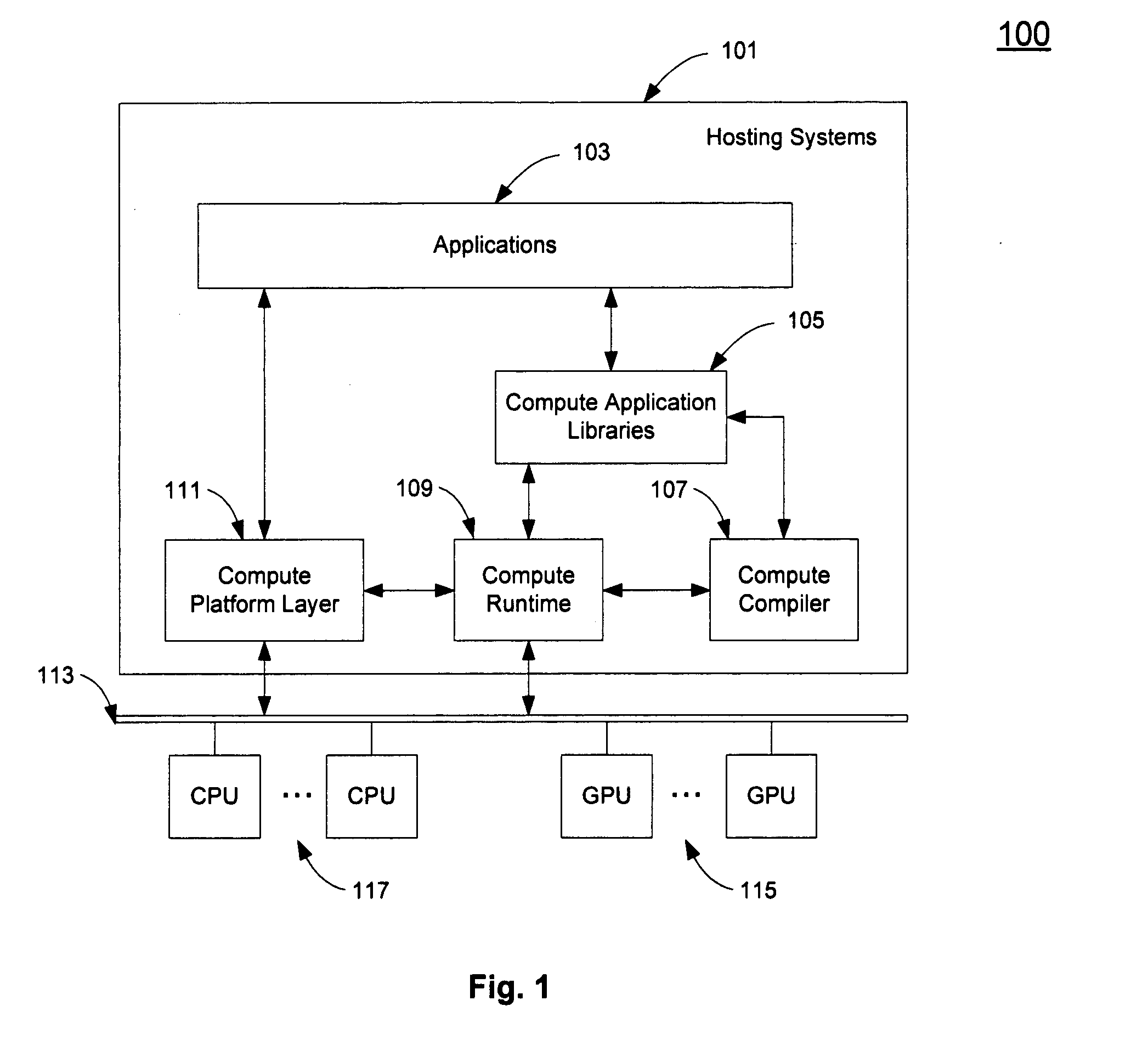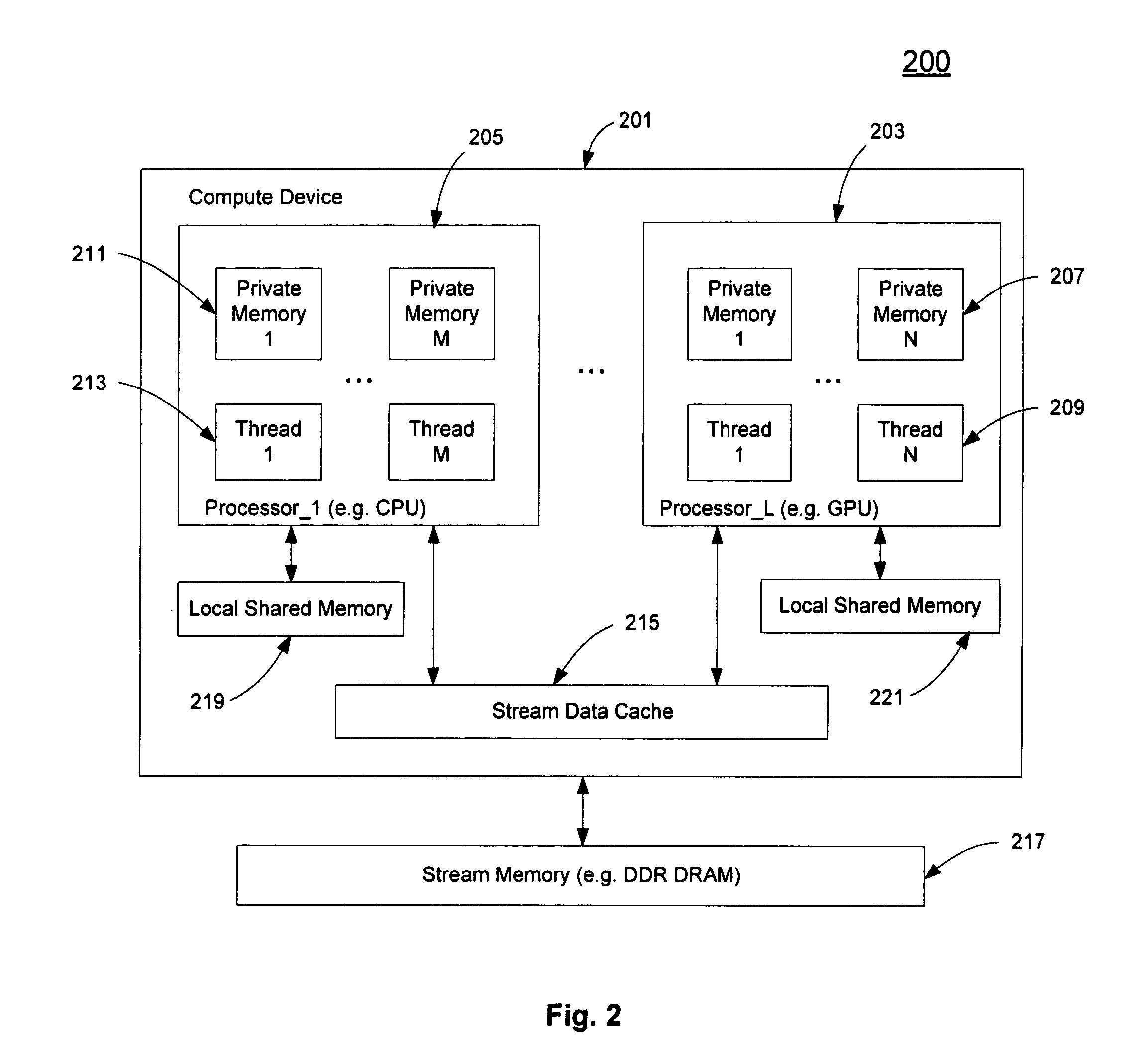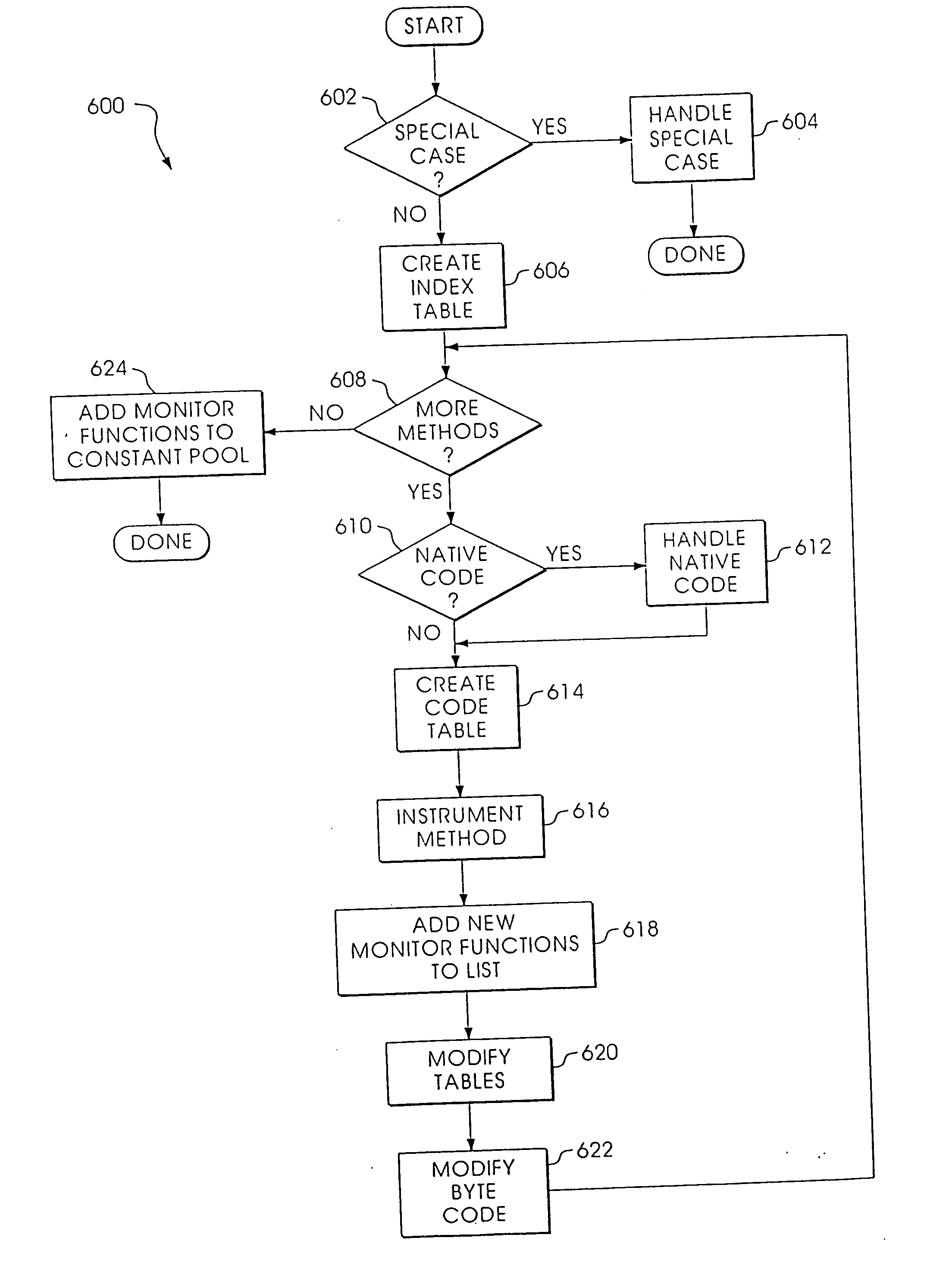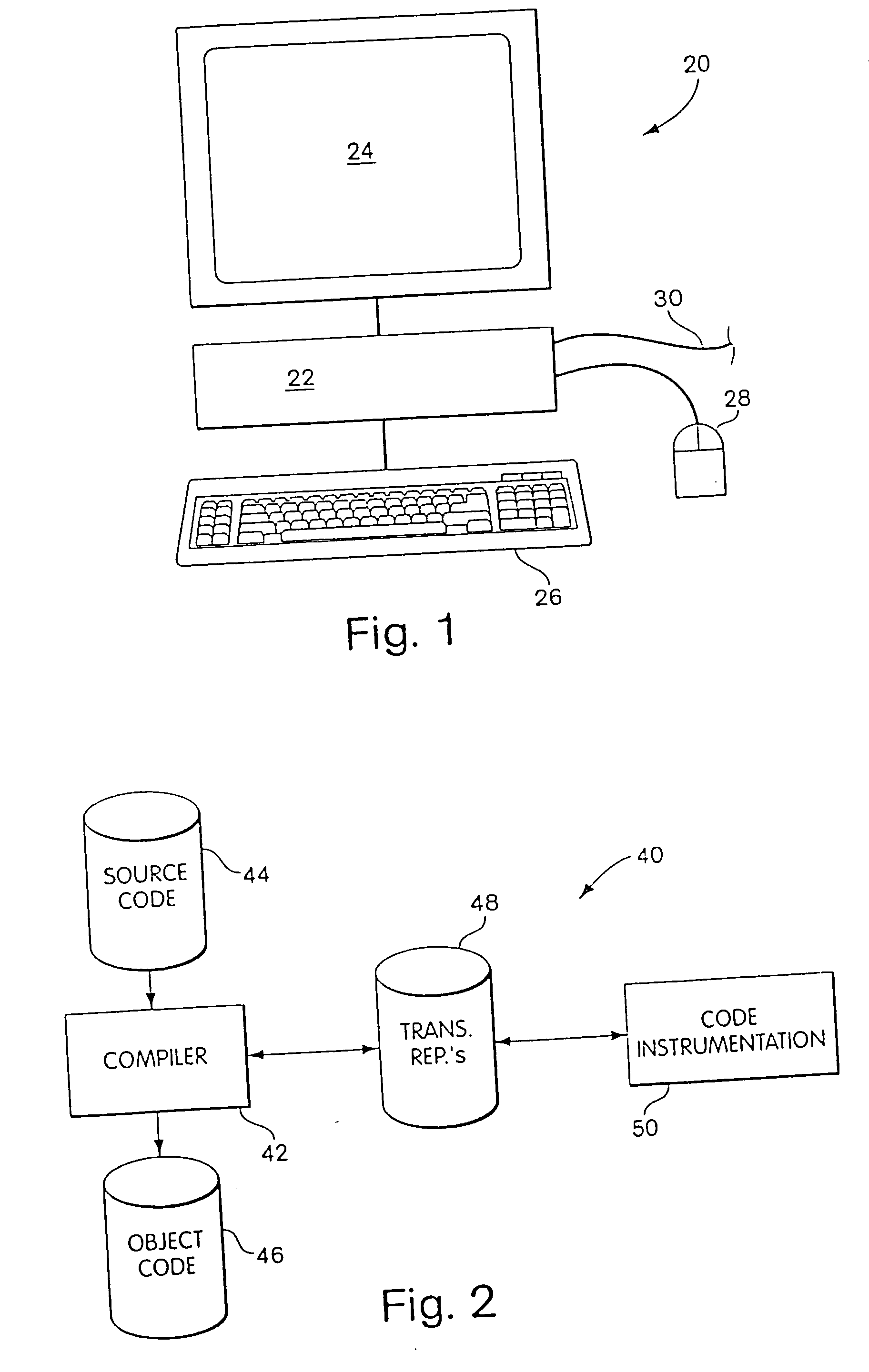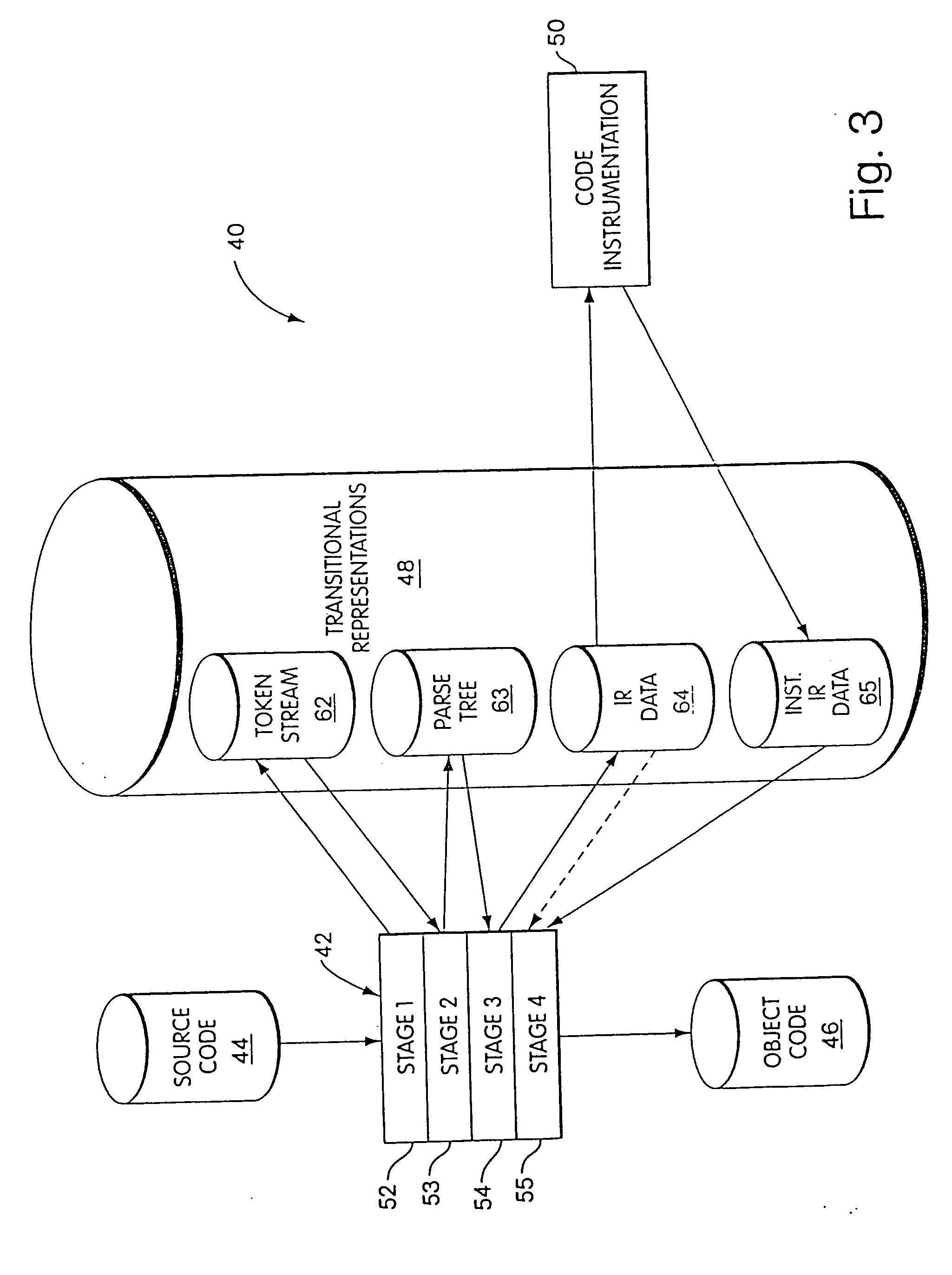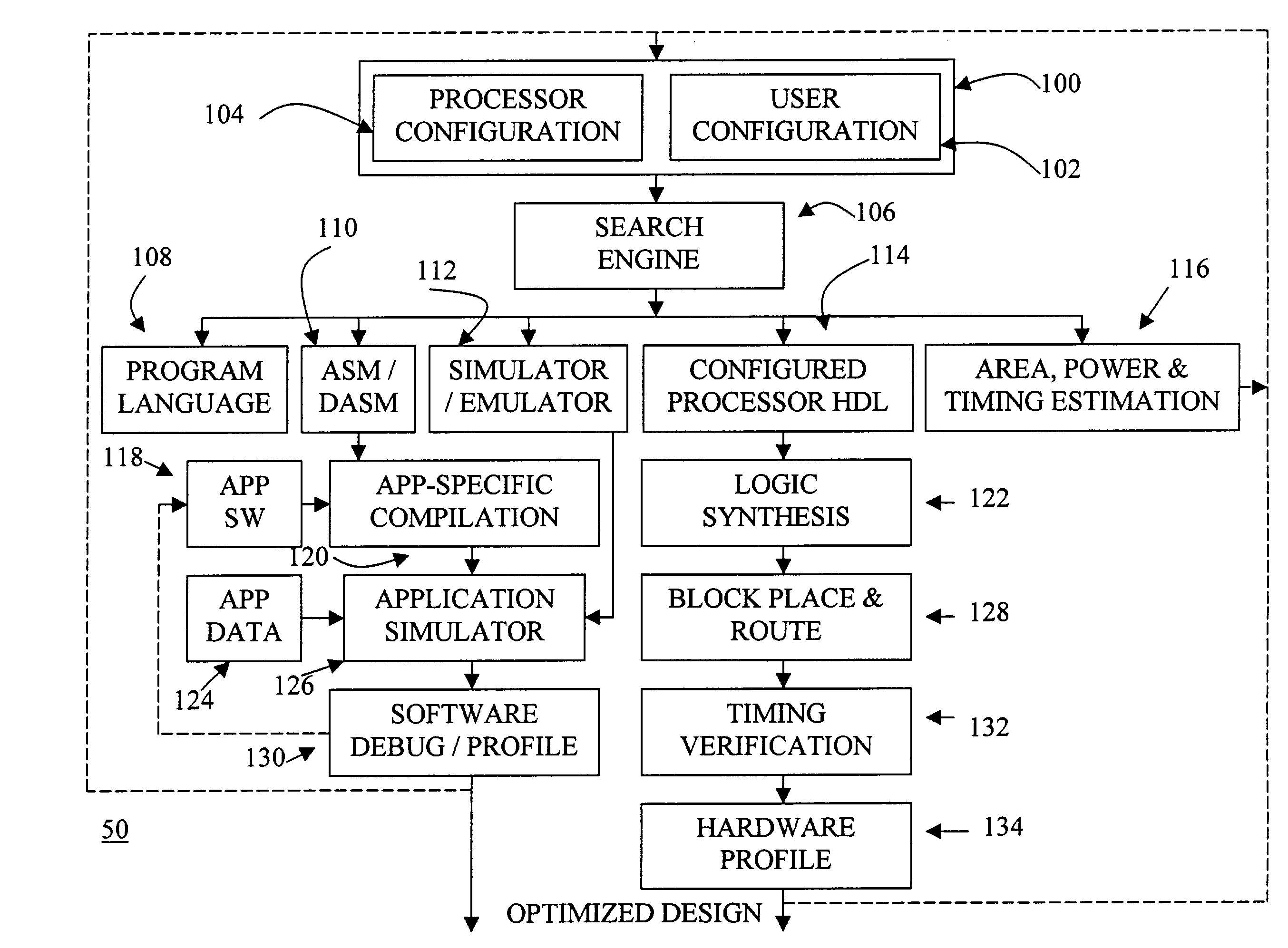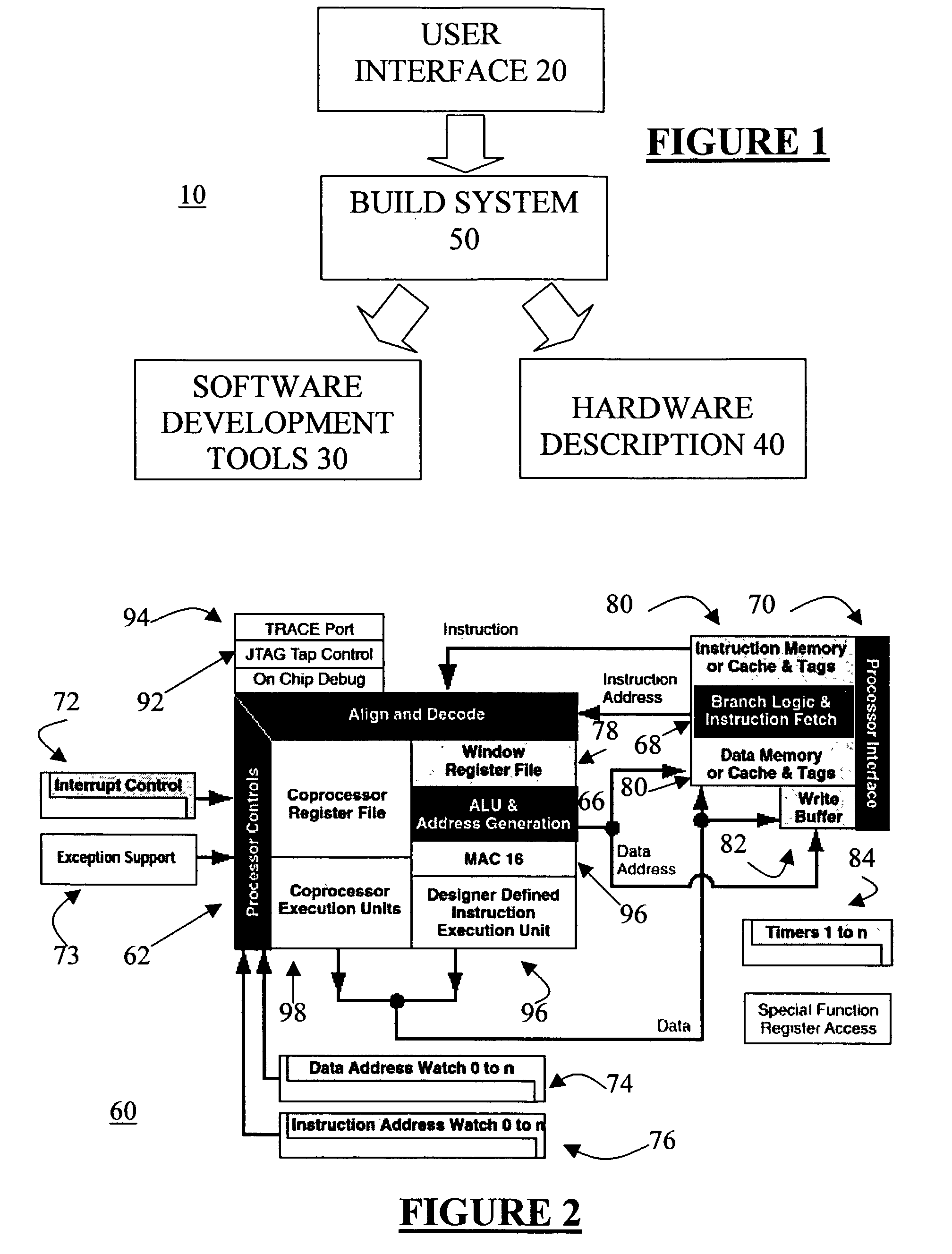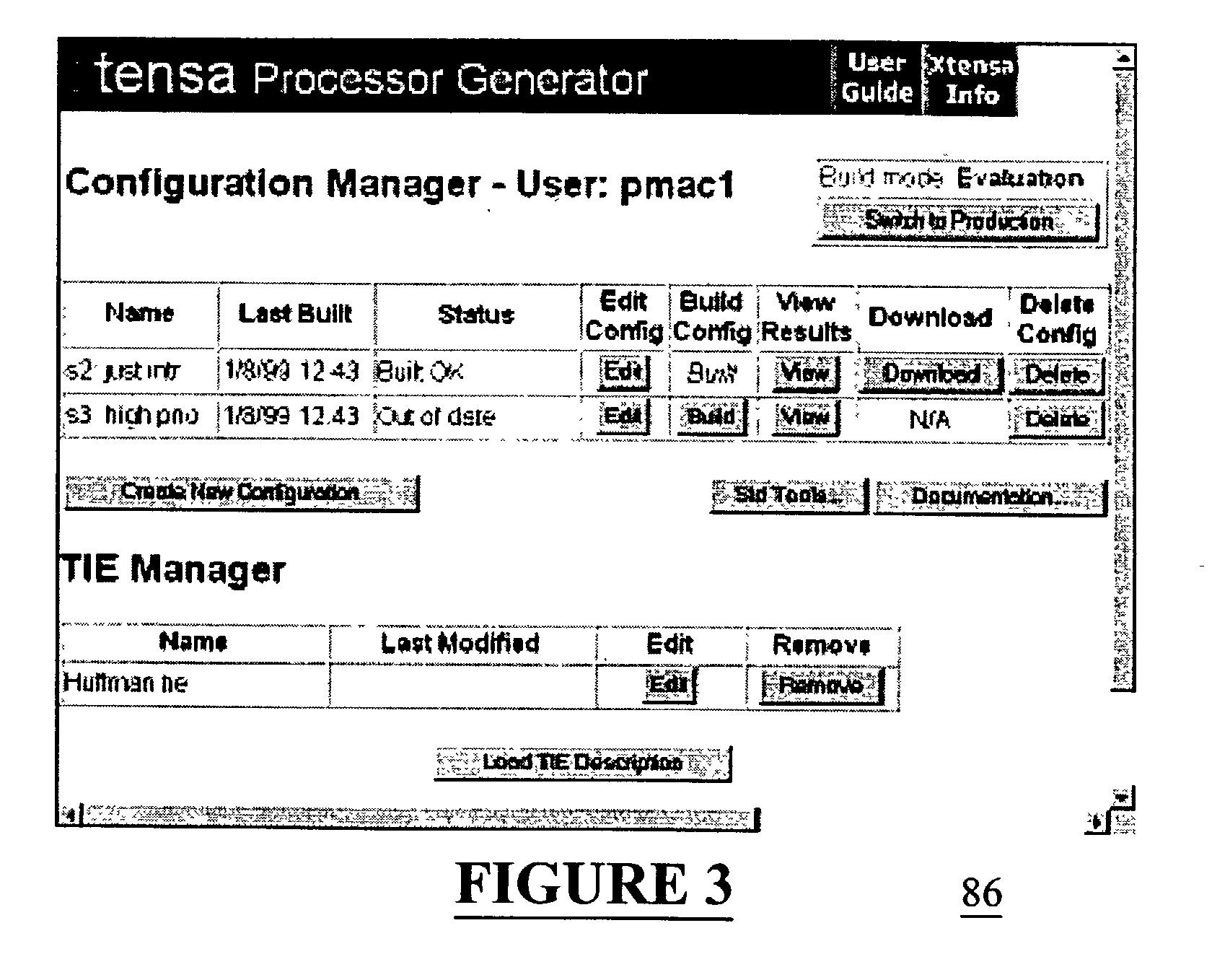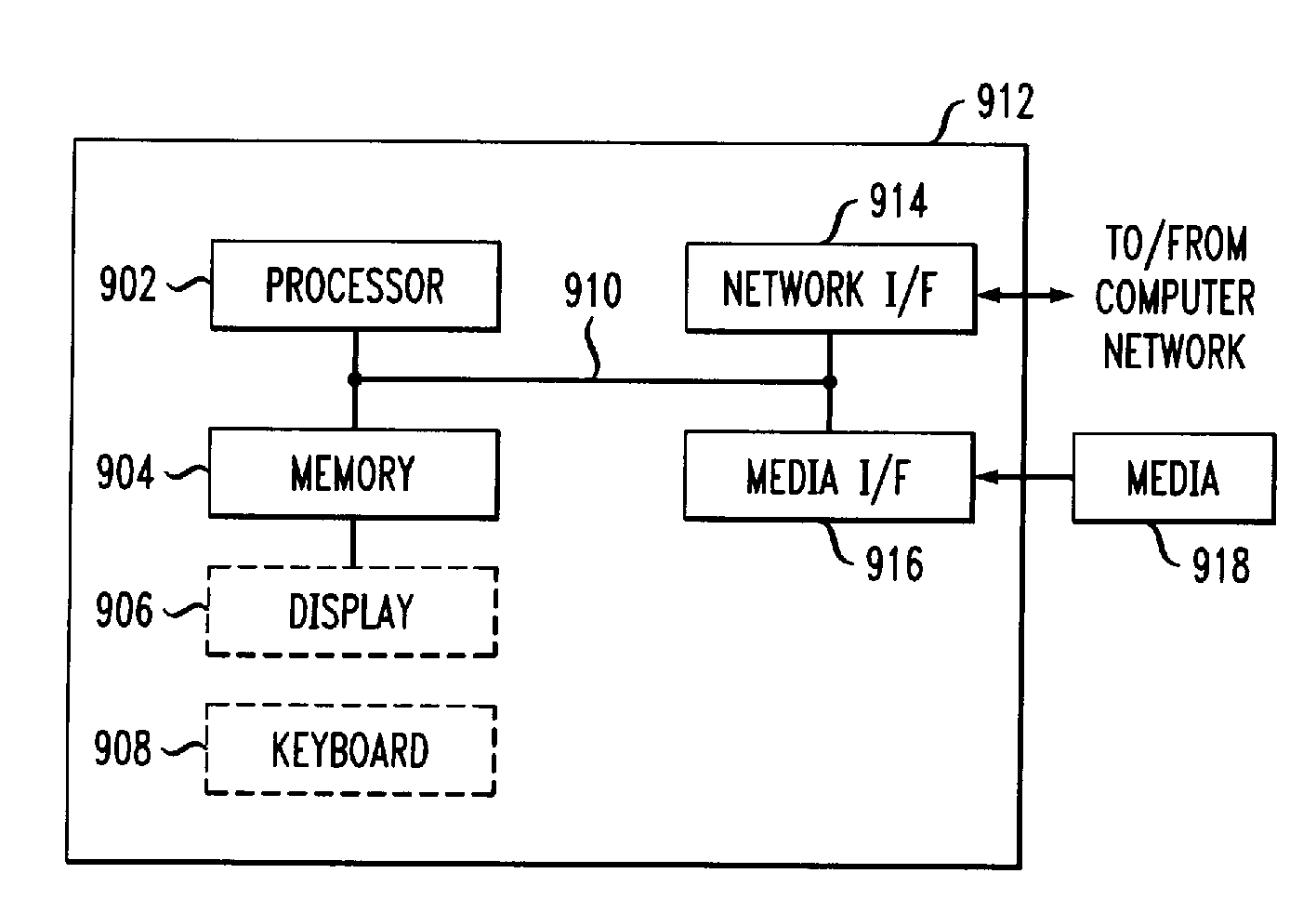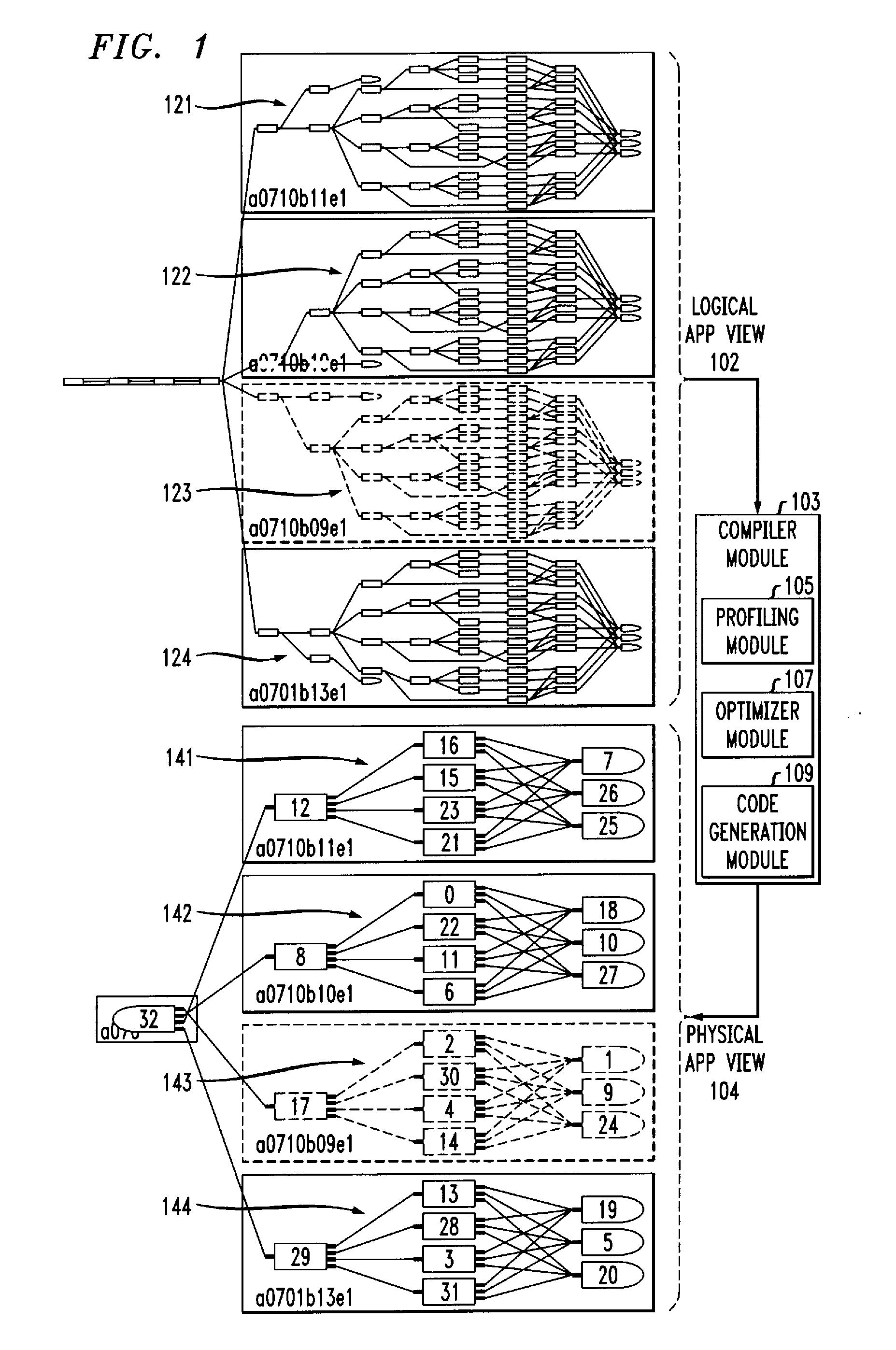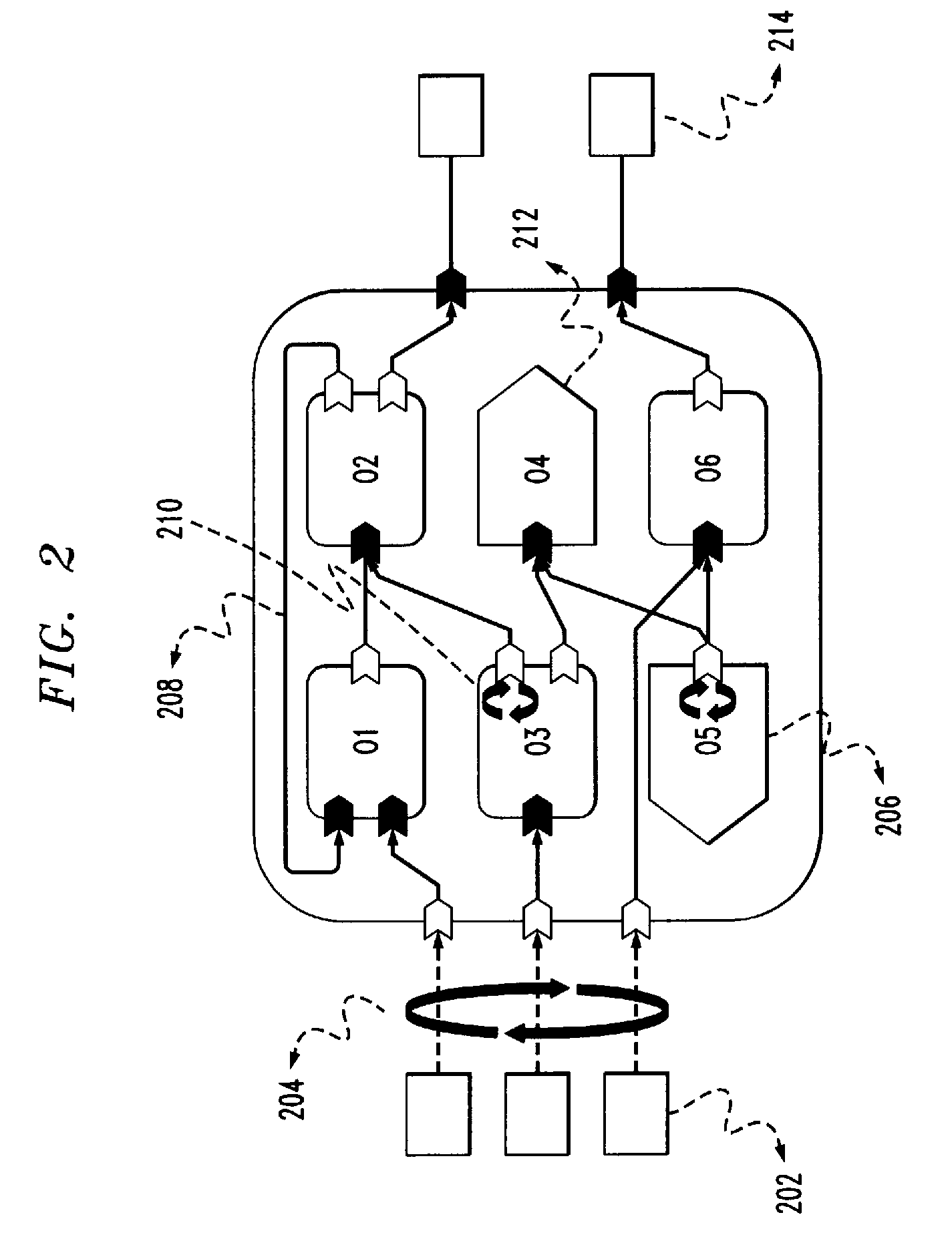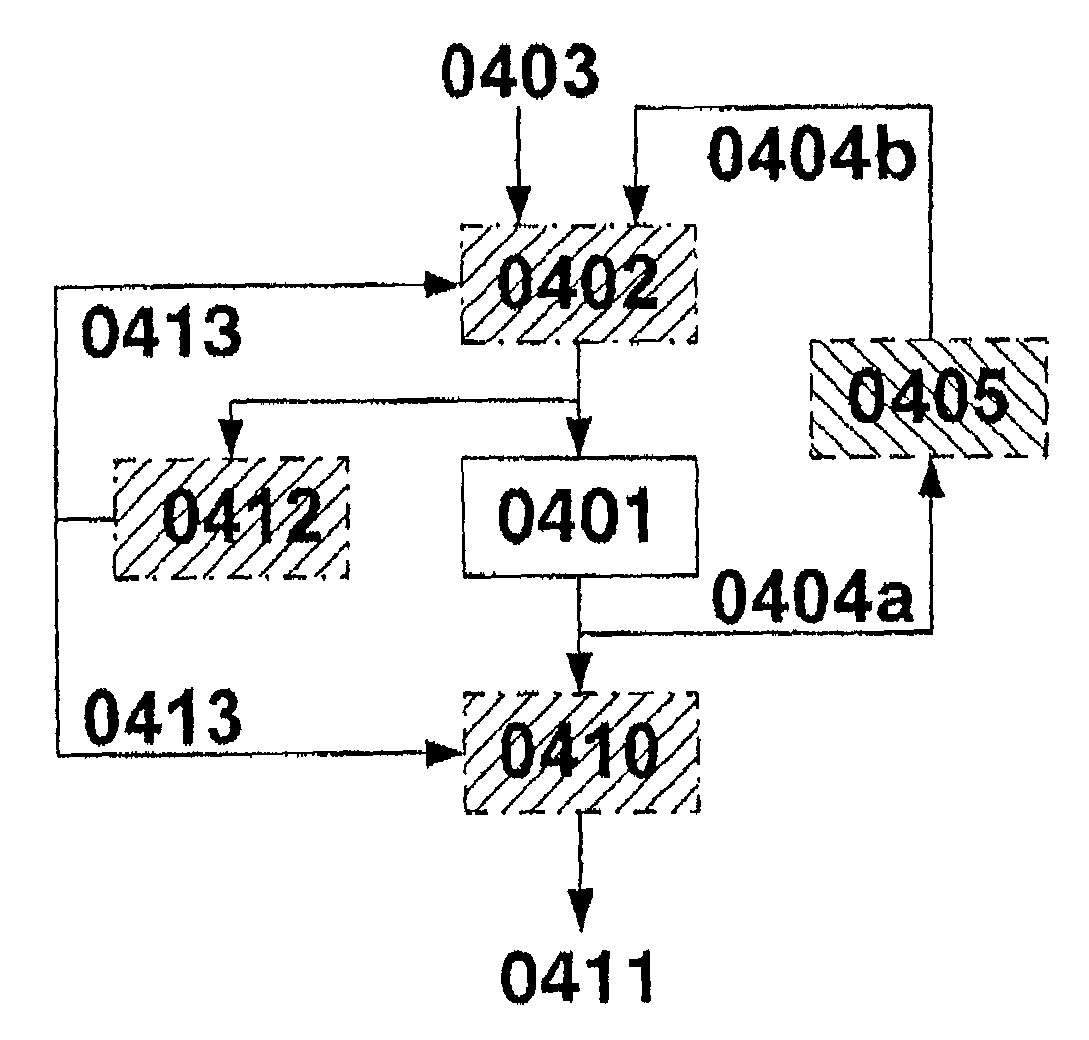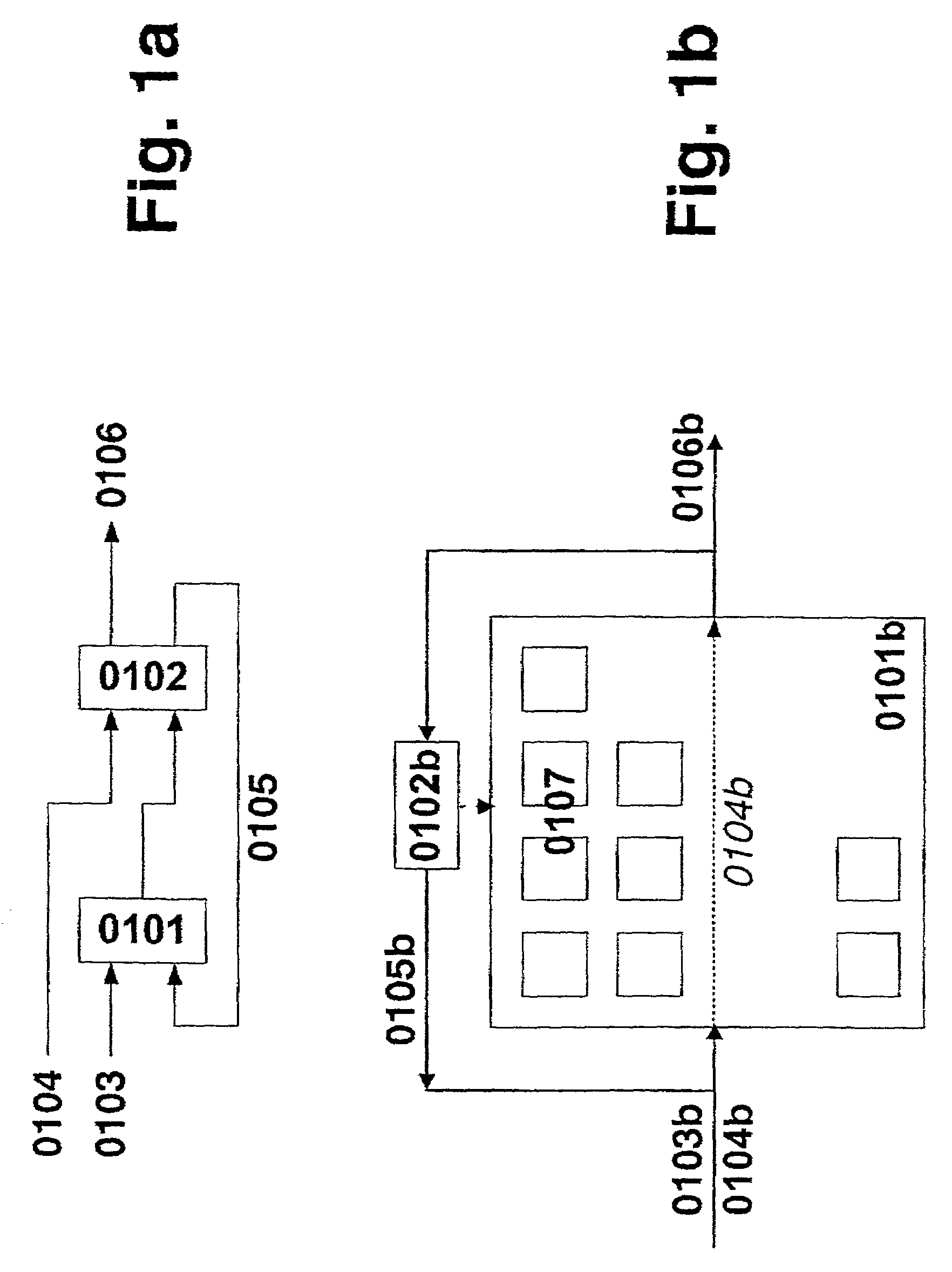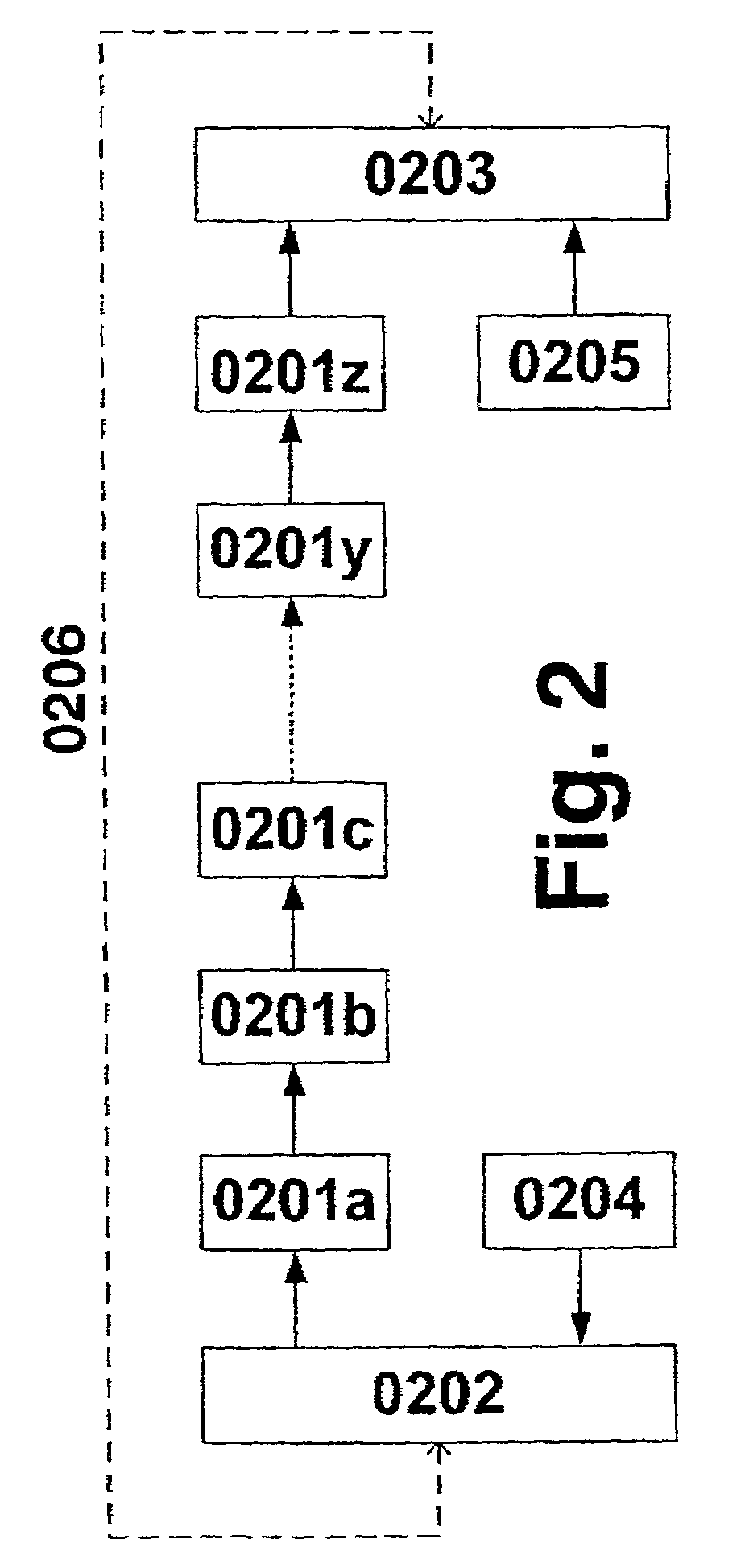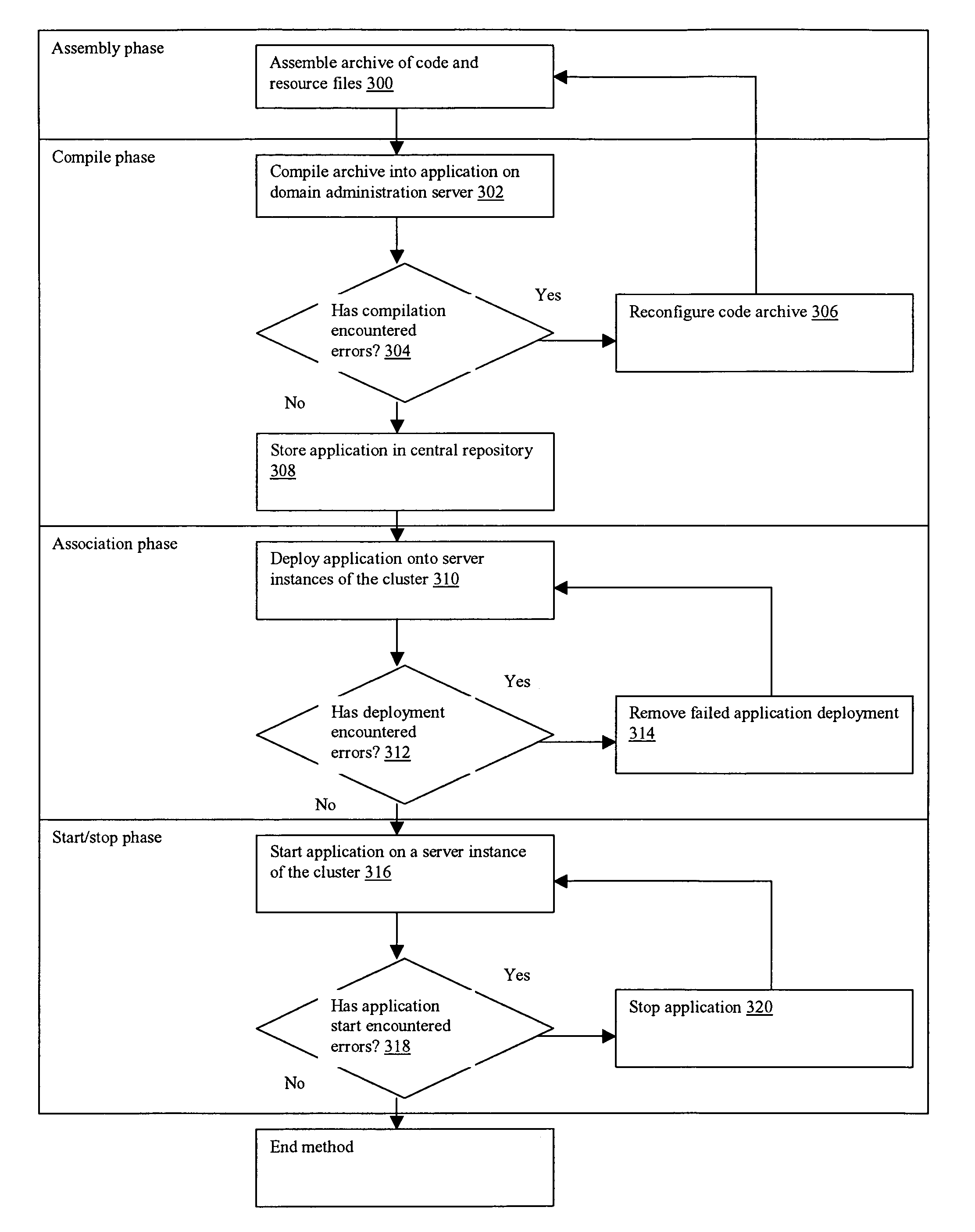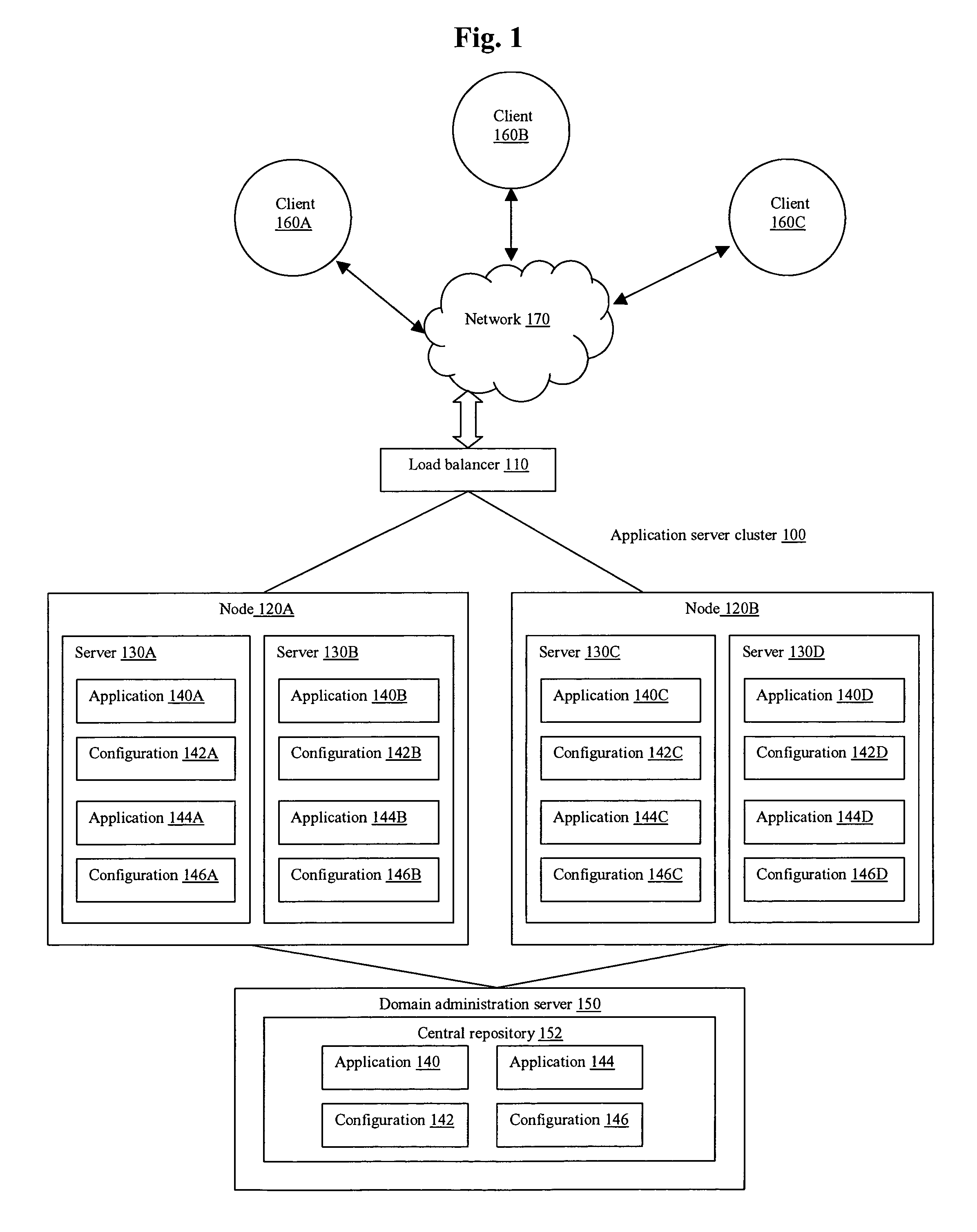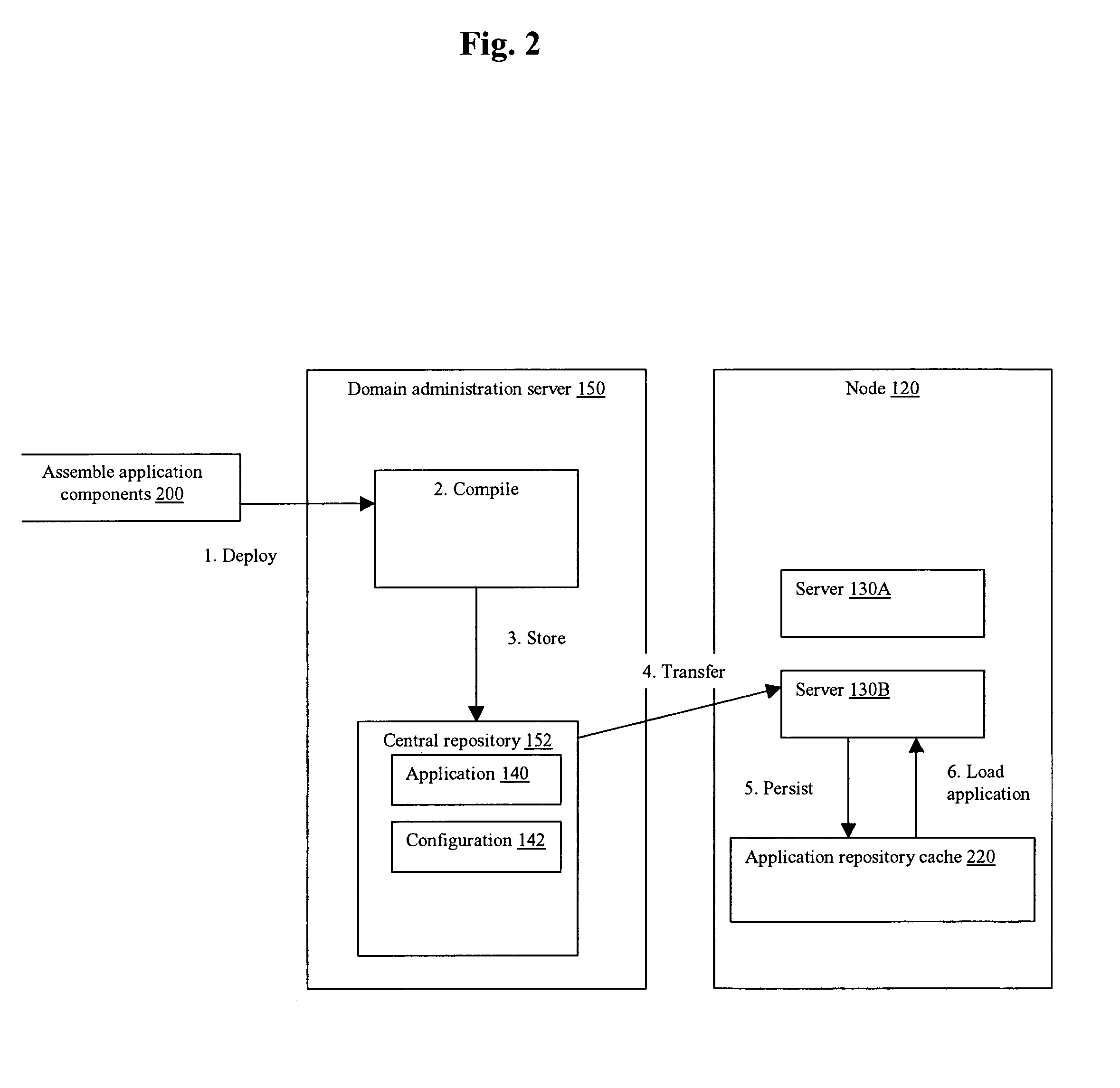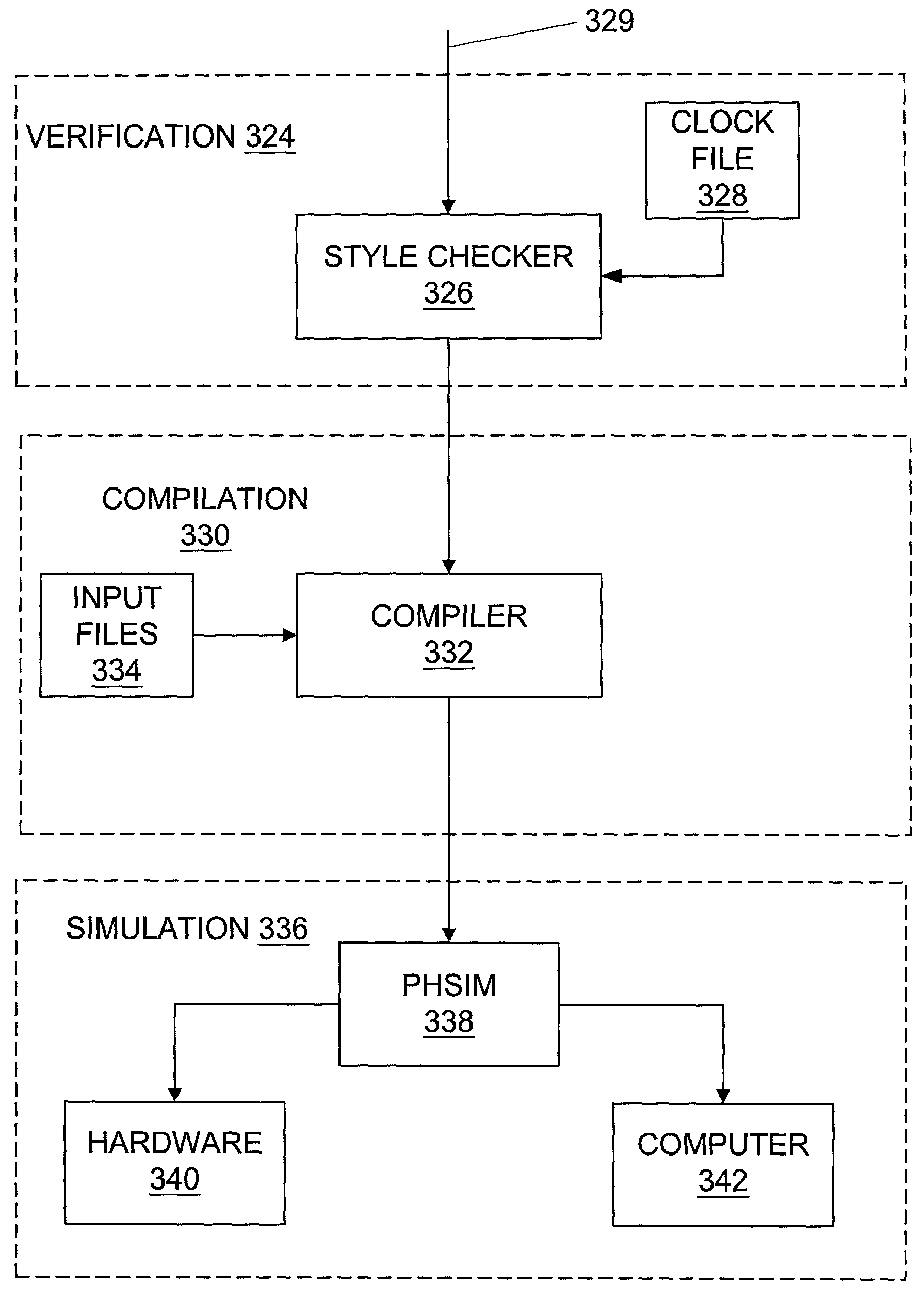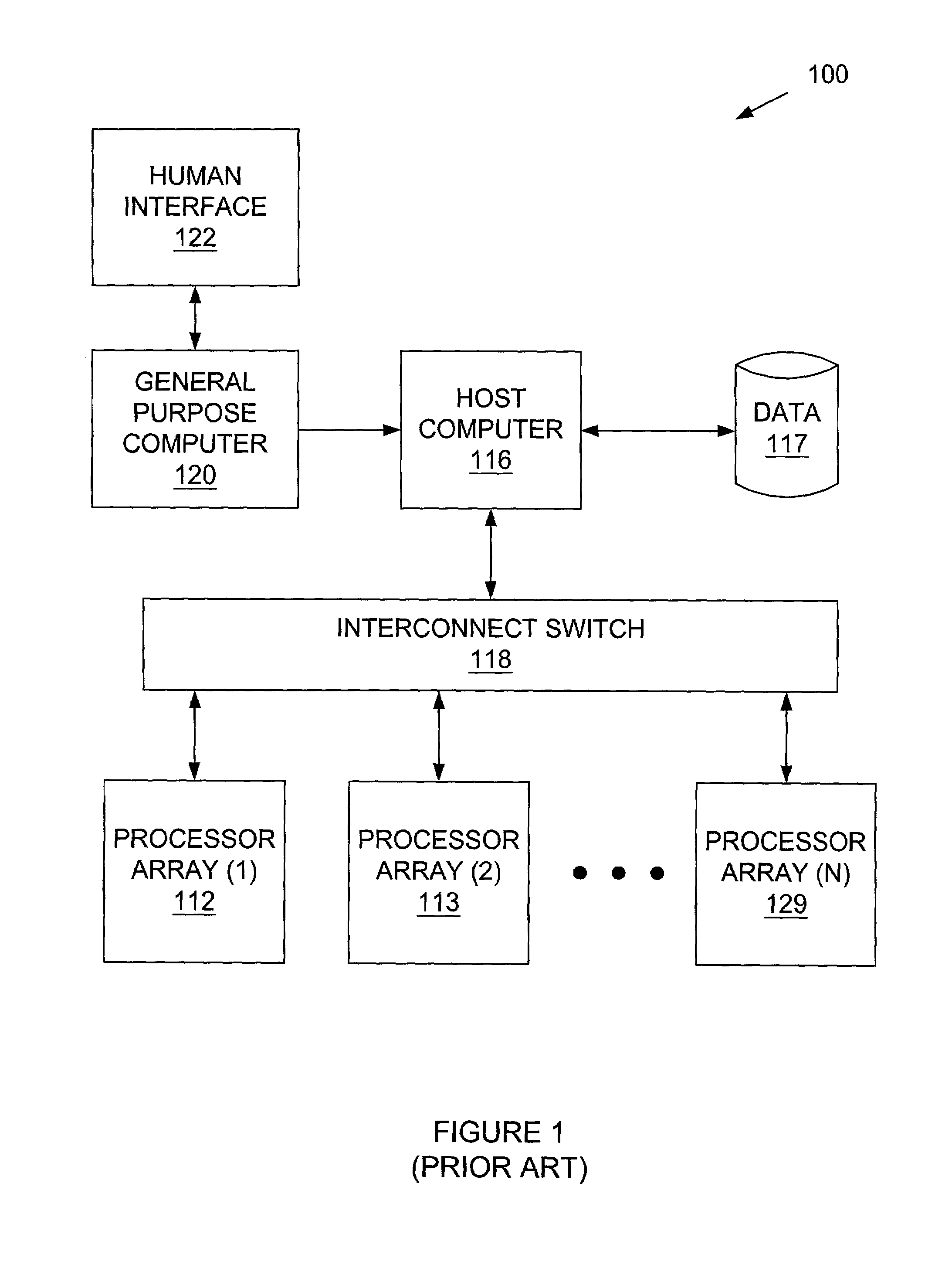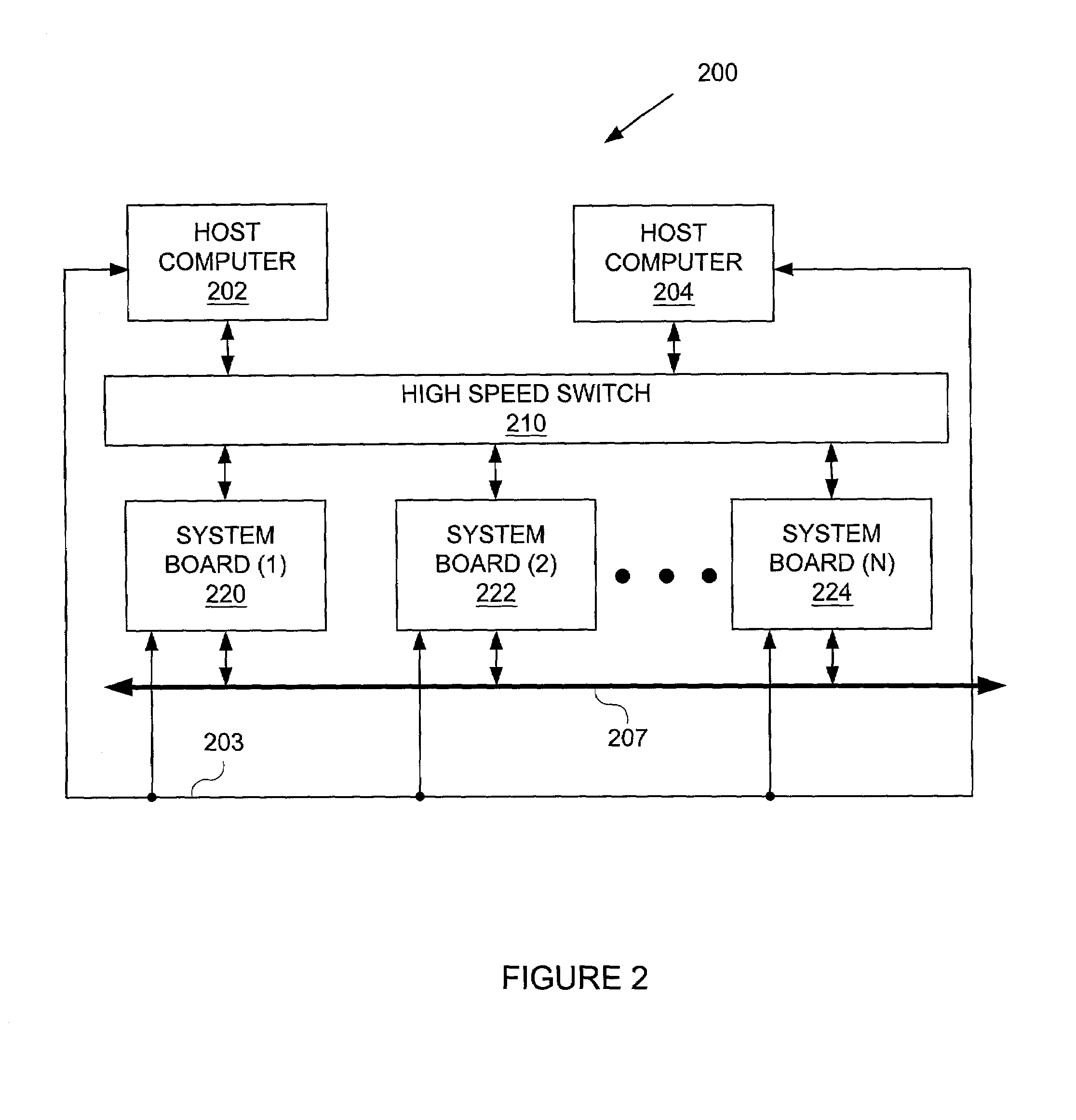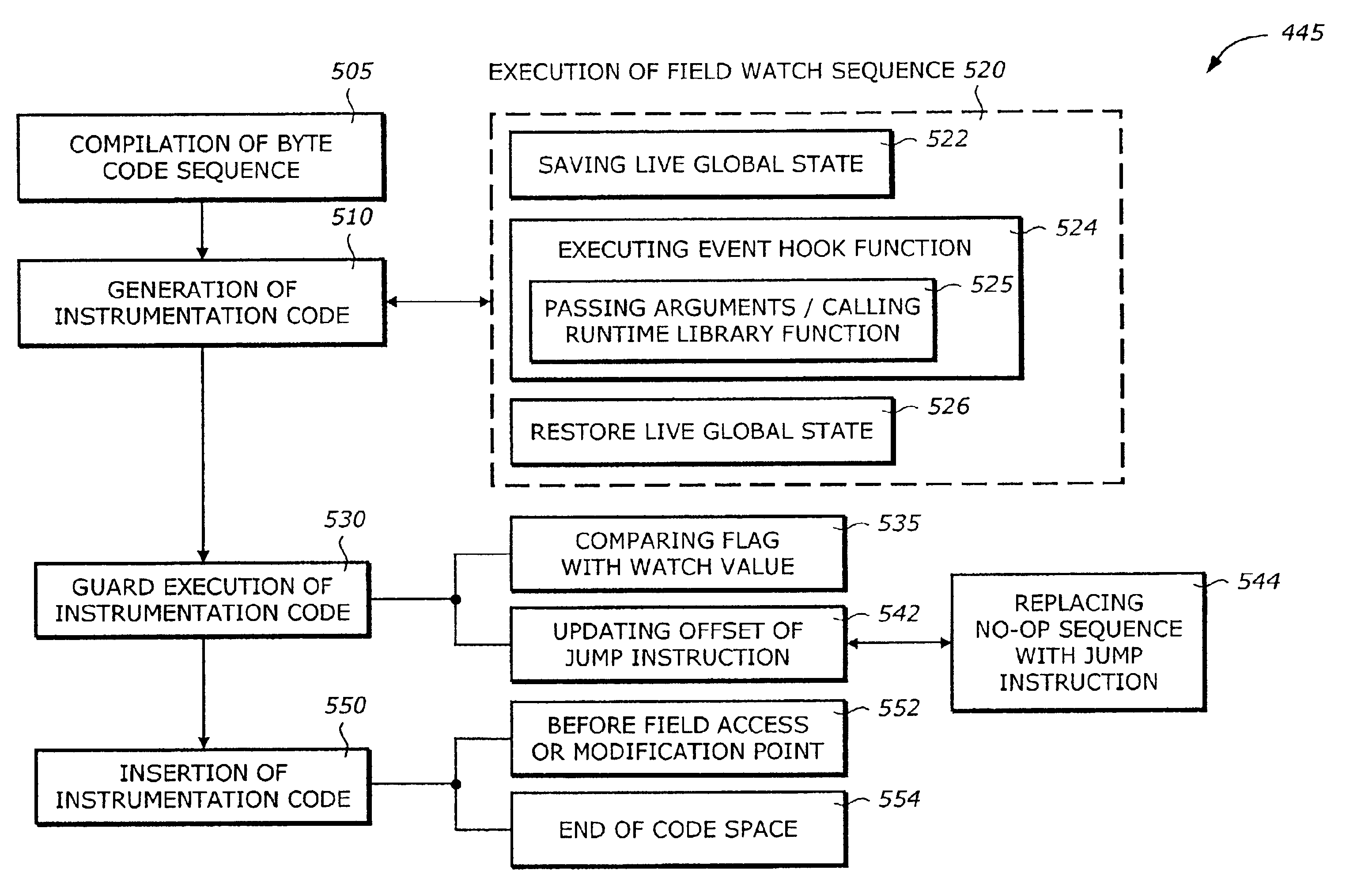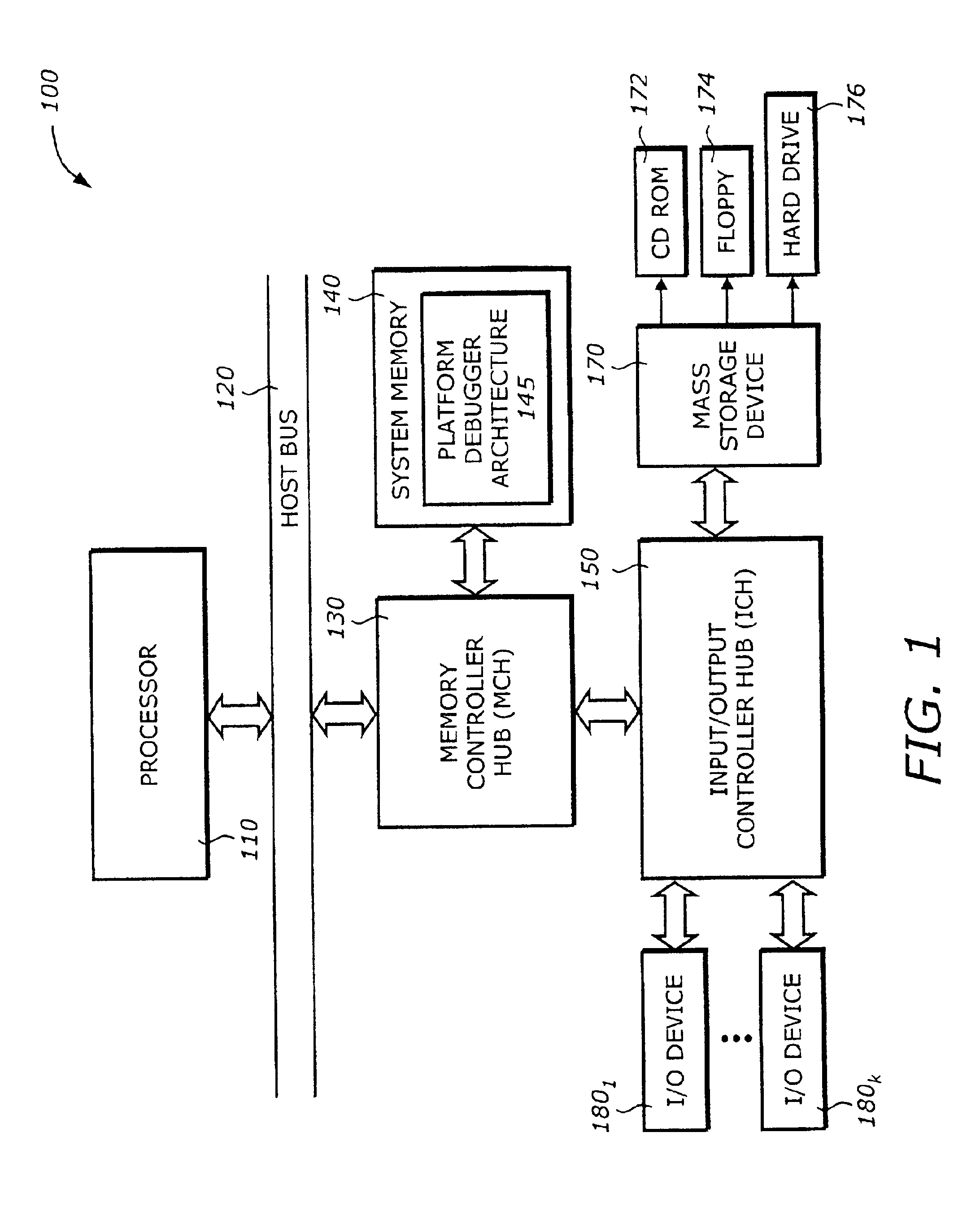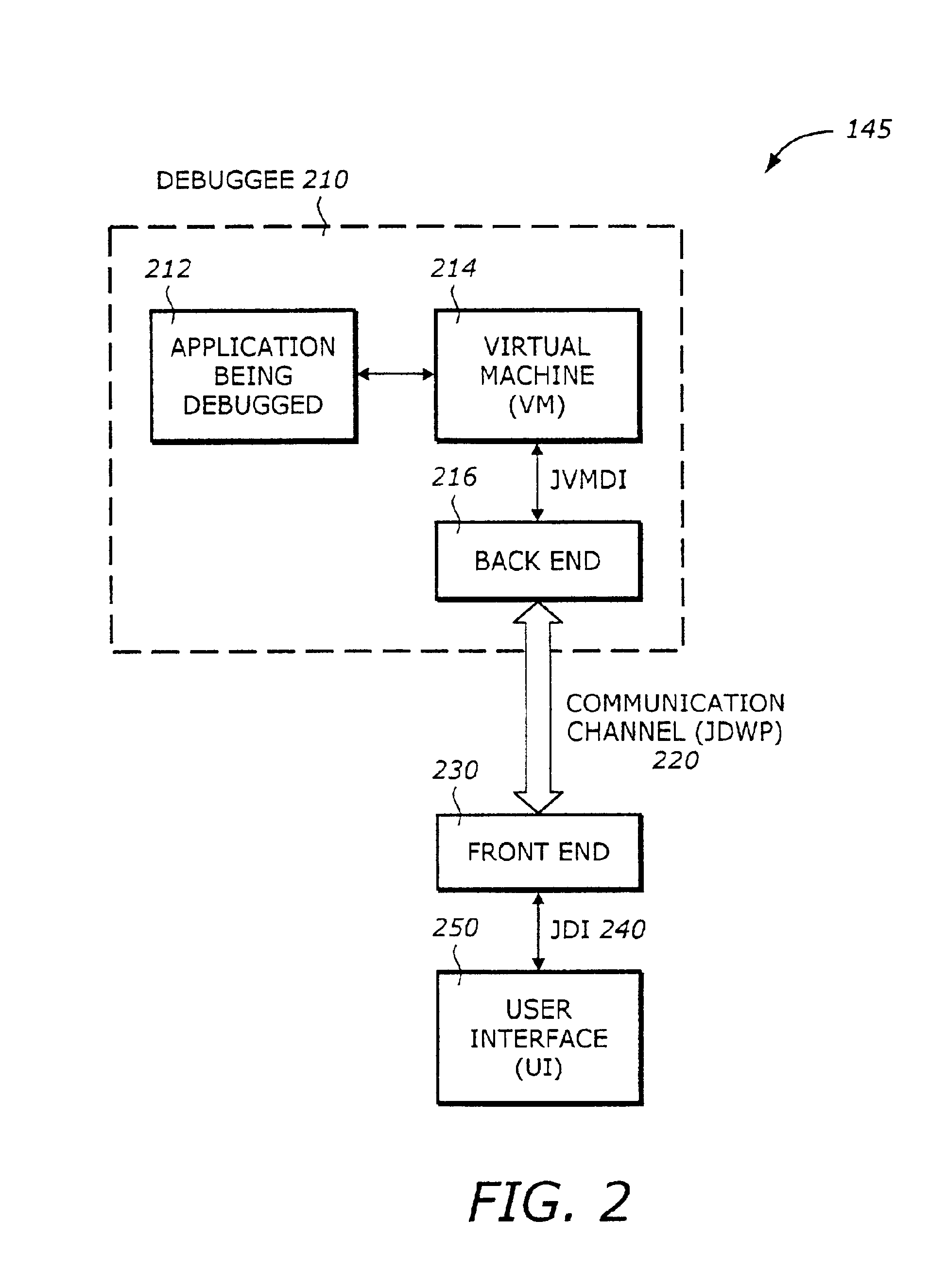Patents
Literature
Hiro is an intelligent assistant for R&D personnel, combined with Patent DNA, to facilitate innovative research.
9201results about "Code compilation" patented technology
Efficacy Topic
Property
Owner
Technical Advancement
Application Domain
Technology Topic
Technology Field Word
Patent Country/Region
Patent Type
Patent Status
Application Year
Inventor
Automated processor generation system for designing a configurable processor and method for the same
InactiveUS6477683B1Decompilation/disassemblyCAD network environmentApplication softwareProcessor design
An automated processor design tool uses a description of customized processor instruction set extensions in a standardized language to develop a configurable definition of a target instruction set, a Hardware Description Language description of circuitry necessary to implement the instruction set, and development tools such as a compiler, assembler, debugger and simulator which can be used to develop applications for the processor and to verify it. Implementation of the processor circuitry can be optimized for various criteria such as area, power consumption, speed and the like. Once a processor configuration is developed, it can be tested and inputs to the system modified to iteratively optimize the processor implementation. By providing a constrained domain of extensions and optimizations, the process can be automated to a high degree, thereby facilitating fast and reliable development.
Owner:TENSILICA
Method and apparatus of streaming data transformation using code generator and translator
InactiveUS20050273772A1Promote generationStay flexibleNatural language data processingMultiple digital computer combinationsStreaming dataObject code
A high level transformation method and apparatus for converting data formats in the context of network applications, among other places. A flexible transformation mechanism is provided that facilitates generation of translation machine code. A translator is dynamically generated by a translator compiler engine. When fed an input stream, the translator generates an output stream by executing the native object code generated on the fly by the translator compiler engine. In addition, the translator may be configured to perform a bi-directional translation between the two streams as well as translation between two distinct protocol sequences. Further a translator may working in streaming mode, to facilitate streaming processing of documents.
Owner:IBM CORP
Method and system for modifying deployed applications
ActiveUS20150169318A1Visual/graphical programmingProgram loading/initiatingSoftware engineeringApplication software
The present invention relates to a method of dynamically modifying a deployed application including an embedded library, including: during execution of the application, the library transmitting a model about the visual appearance of the application to an editing component; receiving input from a user at the editing component to generate instructions utilising the model; and transmitting the instructions to the application which, in turn, modify the application. A system for dynamically modifying a deployment application is also disclosed.
Owner:NASH PETER
Byte code instrumentation
InactiveUS6314558B1Software testing/debuggingSpecific program execution arrangementsMessage flowTime function
Instrumenting a computer program to provide instrumented byte code includes examining the byte code, selecting portions of the byte code for instrumentation, and instrumenting the portions to provide instrumented byte code. Selecting the portions may include choosing portions of the byte code corresponding to method entry, method exit, a throw, a method call, or a new line number. Instrumenting a portion of the byte code corresponding to a method call may include instrumenting a local line number of source code corresponding to the byte code being instrumented. Instrumenting the portions may include adding calls to instrumentation runtime functions that pass parameters indicative of the portions being instrumented. At least one of the parameters that is passed may include a line number of the source code corresponding to the portion being instrumented or a object pointer for the method corresponding to the portion being instrumented. Data from instrumentation may be passed via a message stream that is viewed as the data is being generated and / or stored.
Owner:BORLAND
System and method for developing and deploying computer applications over a network
InactiveUS20050155027A1Reduce bandwidth costsReduce maintenance costsNatural language data processingProgram loading/initiatingVisual BasicOperational system
A method of developing a computer application by coding a markup document in an XML markup language, coding a business logic component using any programming language, compiling the business logic component into a specific executable code, converting the XML document into a specific markup language document and deploying the converted markup document and the executable code to a client machine running a specific operating system via a network connection. The XML markup document can be converted in any markup language including XUL, SVG, Xforms, XML related languages, HTML, HTML related languages, text, and combinations thereof. The business logic component can be written using any programming language including Java, JavaScript, J#, C#, C, C++, Visual Basic, ActionScript, XSL, XQuery, and XPath, among others. The computer application can run in any operating system including next generation Windows Longhorn, Windows 2000, Linux, Unix, Apple or Palm operating systems, among others.
Owner:NEXAWEB
Dynamic arrays and overlays with bounds policies
InactiveUS7062761B2Simplify the codeEfficient accessResource allocationProgramming languages/paradigmsArray data structureOperating system
Systems and methods are provided for writing code to access data arrays. One aspect provides a method of accessing a memory array. Data is provided within a one-dimensional array of allocated memory. A dimensional dynamic overlay is declared from within a block of statements, and the declaration initializes various attributes within an array attribute storage object. The data is accessed from within the block of statements as a dimensional indexed array using the array attribute storage object. Another aspect provides a method of creating and accessing a dimensional dynamic array. A dimensional dynamic array is declared from within a block of statements, and memory storage for the array is dynamically allocated. A dynamic overlay storage object is also provided and its attributes are initialized from the dynamic array declaration. The data is accessed as a dimensional indexed array from within the block of statements using the array attribute storage object.
Owner:MICRON TECH INC
System and method for creating a parser generator and associated computer program
InactiveUS20120191446A1Quality improvementImprove securitySpecial data processing applicationsCompiler constructionComputer moduleParsing
A system is provided for building a parser generator. The system includes a grammar input module for inputting in the parser generator a grammar expressed in a given formalism. A checking module formally verifies that a given grammar belongs to a predetermined class of grammars for which a translation to a correct, terminating parser is feasible. A checking module formally verifies that a grammar expressed in the formalism is well-formed. A semantic action module defines a parsing result depending on semantic actions embedded in the grammar. The semantic action module ensures in a formal way that all semantic actions of the grammar are terminating semantic actions. A formal module generates a parser with total correctness guarantees, using the modules to verify that the grammar is well-formed, belongs to a certain class of feasible, terminating grammars and all its semantic actions are terminating.
Owner:PROVICIEL MLSTATE
Maintenance of link level consistency between database and file system
Methods and computer-readable media for maintaining transactional link-level consistency between a database and a file system. A file system change is logged in a record of a database log and a file corresponding to the file system change is created in a file system folder. During a restart recovery process, an analysis operation and a conditional redo operation are performed based on the database log, and a conditional redo operation and an undo operation are performed based on the files in the file system folder. An undo operation is then performed based on the database log.
Owner:MICROSOFT TECH LICENSING LLC
Preprocessor to improve the performance of message-passing-based parallel programs on virtualized multi-core processors
InactiveUS20070038987A1Reduced execution timeEasy to implementMultiprogramming arrangementsMemory systemsCluster basedParallel processing
Provided is a complier which optimizes parallel processing. The complier records the number of execution cores, which is the number of processor cores that execute a target program. First, the compiler detects a dominant path, which is a candidate of an execution path to be consecutively executed by a single processor core, from a target program. Subsequently, the compiler selects dominant paths with the number not larger than the number of execution cores, and generates clusters of tasks to be executed by a multi-core processor in parallel or consecutively. After that, the compiler computes an execution time for which each of the generated clusters is executed by the processor cores with the number equal to one or each of a plurality natural numbers selected from the natural numbers not larger than the number of execution cores. Then, the compiler selects the number of processor cores to be assigned for execution of each of the clusters based on the computed execution time.
Owner:IBM CORP
Systems and methods for creating network-based software services using source code annotations
ActiveUS20050021689A1Digital data processing detailsUnauthorized memory use protectionWeb serviceDEVS
A developer can express the logic offered by a Web service, or other network accessible service, using a standard programming language augmented with declarative annotations specifying preferences for exposing that logic as a Web service. At compile time, an enhanced compiler can analyze the annotated source file and automatically generate the mechanisms required to expose its functionality as a Web service or network accessible service. Because the annotations are declarative, they may be easily visualized, created, and modified such as by using a graphical user interface, further simplifying the developer's task. Thus, such an approach decreases the time, knowledge, skill and ultimately cost required to develop the complex support required to proved services in these environments. This description is not intended to be a complete description of, or limit the scope of, the invention. Other features, aspects, and objects of the invention can be obtained from a review of the specification, the figures, and the claims.
Owner:ORACLE INT CORP
Digital signal processor containing scalar processor and a plurality of vector processors operating from a single instruction
InactiveUS6317819B1Register arrangementsMemory adressing/allocation/relocationCrossbar switchDigital data
A digital data processor integrated circuit (1) includes a plurality of functionally identical first processor elements (6A) and a second processor element (5). The first processor elements are bidirectionally coupled to a first cache (12) via a crossbar switch matrix (8). The second processor element is coupled to a second cache (11). Each of the first cache and the second cache contain a two-way, set-associative cache memory that uses a least-recently-used (LRU) replacement algorithm and that operates with a use-as-fill mode to minimize a number of wait states said processor elements need experience before continuing execution after a cache-miss. An operation of each of the first processor elements and an operation of the second processor element are locked together during an execution of a single instruction read from the second cache. The instruction specifies, in a first portion that is coupled in common to each of the plurality of first processor elements, the operation of each of the plurality of first processor elements in parallel. A second portion of the instruction specifies the operation of the second processor element. Also included is a motion estimator (7) and an internal data bus coupling together a first parallel port (3A), a second parallel port (3B), a third parallel port (3C), an external memory interface (2), and a data input / output of the first cache and the second cache.
Owner:CUFER ASSET LTD LLC
Distributed model compilation
ActiveUS7509244B1Shorten the timePromote generationAnalogue computers for electric apparatusComputation using non-denominational number representationGraphicsParallel computing
Methods and systems are provided for partitioning and distributing the model processing of a graphical model to provide an executable form of the graphical model. The methods and systems determine tasks of the model processing that can be processed separately and concurrently from other tasks. A distribution scheme for distributing the model processing tasks is determined that considers the characteristics of the model processing tasks in view of the characteristics of available computing resources. Variations of partitioning and distributing the model processing tasks can be determined to provide for distributed processing in an optimized or desired manner. The results of the distributed processing of the model processing tasks are obtained and combined to provide an executable form for the graphical model.
Owner:THE MATHWORKS INC
Apparatus and method for processing web service descriptions
ActiveUS7596622B2Facilitates invocation of web serviceReduce processing loadDigital data processing detailsMultiple digital computer combinationsWeb serviceMobile device
An apparatus and method for processing a web service description such that the web service description is adapted for use with mobile devices. A web services accelerator is adapted to receive a web service description that defines an interface to a web service, create at least one accelerator output file from the web service description, and transmit the at least one accelerator output file to a mobile device. Accelerator output files are used by the mobile device to invoke web services.
Owner:MALIKIE INNOVATIONS LTD
Producer graph oriented programming and execution
ActiveUS20080134138A1Specific program execution arrangementsMemory systemsProgramming languageGraphics
A method and apparatus for producer graph oriented programming and execution. According to one aspect of the invention, a runtime is provided that interprets producer dependency declarations for methods. The producer dependency declarations identify at run time a set of zero or more producers, where a producer is a runtime instantiatable construct that includes at least an instance and a method associated with that instance. The runtime automatically generates and executes, responsive to receiving a designation of a producer of interest whose method has a producer dependency declaration, a producer graph. The producer graph initially includes the producer of interest and is generated, from the producer of interest to source producers, through instantiation of producers based on the producer dependency declarations of the methods of the producers already in the producer graph. The runtime sequences the execution of the producers in the producer graph as indicated by the producer graph.
Owner:MUREX
Automated methods and systems for developing and deploying projects in parallel
Embodiments of the invention are directed to system and method for managing parallel development of projects. One embodiment of the invention is a method of automatically managing processes in the parallel development of an application through a graphical user interface. The graphical user interface manages the automated processes, which are able to complete their tasks without further user interaction. The automated processes managed by the graphical user interface include, provisioning a first development environment and second development environment. The processes also includes deploying a second release of an application to the second development environment, and merging modifications to the second source code and the second content of the second release into a first source code and a first content of the first release. After the releases have been merged together, the process automatically deploys the third release of the application to a production environment for use by users.
Owner:HSBC TECH & SERVICES (USA) INC
Method and apparatus of streaming data transformation using code generator and translator
InactiveUS7590644B2Promote generationStay flexibleDigital data processing detailsNatural language data processingStreaming dataObject code
A high level transformation method and apparatus for converting data formats in the context of network applications, among other places. A flexible transformation mechanism is provided that facilitates generation of translation machine code. A translator is dynamically generated by a translator compiler engine. When fed an input stream, the translator generates an output stream by executing the native object code generated on the fly by the translator compiler engine. In addition, the translator may be configured to perform a bi-directional translation between the two streams as well as translation between two distinct protocol sequences. Further a translator may working in streaming mode, to facilitate streaming processing of documents.
Owner:INT BUSINESS MASCH CORP
System and method for preference application installation and execution
InactiveUS20050091269A1Facilitate information exchangeEasy to shareDigital data processing detailsDigital computer detailsPersonalizationData store
The present systems and methods disclose a system for personalizing computer functionality. End-users are provided with tools to easily write rich and complex preferences, for example, by using a plurality simple IF-THEN propositional logic. The preferences are then transformed into queries and executed efficiently on structured data. Preferences that are satisfied then execute actions such as providing notification or storing data in a particular folder. Furthermore, according to an aspect of the invention, data, logic, events, inter alia, are all schematized, thereby enabling sharing of data between application components and across applications.
Owner:MICROSOFT TECH LICENSING LLC
Application program interface of a parallel-processing computer system that supports multiple programming languages
ActiveUS20070294663A1Interprogram communicationKitchen cabinetsApplication programming interfacePerformance computing
A runtime system implemented in accordance with the present invention provides an application platform for parallel-processing computer systems. Such a runtime system enables users to leverage the computational power of parallel-processing computer systems to accelerate / optimize numeric and array-intensive computations in their application programs. This enables greatly increased performance of high-performance computing (HPC) applications.
Owner:GOOGLE LLC
Instruction selection in a multi-platform environment
Systems and methods for building a platform specific compiler having an embedded instruction selector in a multi-platform environment are provided. A set of user defined platform dependent compiler architecture descriptors that describe corresponding architectural features and a set of instruction predicates defining those instructions to be selected are converted to platform dependent compiler object code and instruction selector object code, respectively. The platform specific compiler having the embedded instruction selector is formed from the platform dependent compiler object code, the instruction selector object code, and the platform independent compiler object code.
Owner:ORACLE INT CORP
Object-oriented, parallel language, method of programming and multi-processor computer
This invention relates to architecture and synchronization of multi-processor computing hardware. It establishes a new method of programming, process synchronization, and of computer construction, named stress-flow by the inventor, allowing benefits of both opposing legacy concepts of programming (namely of both data-flow and control flow) within one cohesive, powerful, object-oriented scheme. This invention also relates to construction of object-oriented, parallel computer languages, script and visual, together with compiler construction and method to write programs to be executed in fully parallel (or multi-processor) architectures, virtually parallel, and single-processor multitasking computer systems.
Owner:JANCZEWSKA NATALIA URSZULA +2
C/c++ language extensions for general-purpose graphics processing unit
A general-purpose programming environment allows users to program a GPU as a general-purpose computation engine using familiar C / C++ programming constructs. Users may use declaration specifiers to identify which portions of a program are to be compiled for a CPU or a GPU. Specifically, functions, objects and variables may be specified for GPU binary compilation using declaration specifiers. A compiler separates the GPU binary code and the CPU binary code in a source file using the declaration specifiers. The location of objects and variables in different memory locations in the system may be identified using the declaration specifiers. CTA threading information is also provided for the GPU to support parallel processing.
Owner:NVIDIA CORP
Stream processor with compiled programs
ActiveUS20080134158A1Visual/graphical programmingProgram controlApplication softwareStream processing
A stream processing platform that provides fast execution of stream processing applications within a safe runtime environment. The platform includes a stream compiler that converts a representation of a stream processing application into executable program modules for a safe environment. The platform allows users to specify aspects of the program that contribute to generation of modules that execute as intended. A user may specify aspects to control a type of implementation for loops, order of execution for parallel paths, whether multiple instances of an operation can be performed in parallel or whether certain operations should be executed in separate threads. In addition, the stream compiler may generate executable modules in a way that cause a safe runtime environment to allocate memory or otherwise operate efficiently.
Owner:AUTOLIV DEV AB +1
Parallel runtime execution on multiple processors
ActiveUS20080276262A1Multiprogramming arrangementsProgram loading/initiatingGraphicsParallel computing
A method and an apparatus that schedule a plurality of executables in a schedule queue for execution in one or more physical compute devices such as CPUs or GPUs concurrently are described. One or more executables are compiled online from a source having an existing executable for a type of physical compute devices different from the one or more physical compute devices. Dependency relations among elements corresponding to scheduled executables are determined to select an executable to be executed by a plurality of threads concurrently in more than one of the physical compute devices. A thread initialized for executing an executable in a GPU of the physical compute devices are initialized for execution in another CPU of the physical compute devices if the GPU is busy with graphics processing threads. Sources and existing executables for an API function are stored in an API library to execute a plurality of executables in a plurality of physical compute devices, including the existing executables and online compiled executables from the sources.
Owner:APPLE INC
Byte code instrumentation
InactiveUS20040133882A1Reliability increasing modificationsSoftware testing/debuggingMessage flowParallel computing
Instrumenting a computer program to provide instrumented byte code includes examining the byte code, selecting portions of the byte code for instrumentation, and instrumenting the portions to provide instrumented byte code. Selecting the portions may include choosing portions of the byte code corresponding to method entry, method exit, a throw, a method call, or a new line number. Instrumenting a portion of the byte code corresponding to a method call may include instrumenting a local line number of source code corresponding to the byte code being instrumented. Instrumenting the portions may include adding calls to instrumentation runtime functions that pass parameters indicative of the portions being instrumented. At least one of the parameters that is passed may include a line number of the source code corresponding to the portion being instrumented or a thispointer for the method corresponding to the portion being instrumented. Data from instrumentation may be passed via a message stream that is viewed as the data is being generated and / or stored.
Owner:BORLAND
Automated processor generation system for designing a configurable processor and method for the same
InactiveUS20030208723A1Decompilation/disassemblyGeneral purpose stored program computerApplication softwareProcessor design
An automated processor design tool uses a description of customized processor instruction set extensions in a standardized language to develop a configurable definition of a target instruction set, a Hardware Description Language description of circuitry necessary to implement the instruction set, and development tools such as a compiler, assembler, debugger and simulator which can be used to develop applications for the processor and to verify it. Implementation of the processor circuitry can be optimized for various criteria such as area, power consumption, speed and the like. Once a processor configuration is developed, it can be tested and inputs to the system modified to iteratively optimize the processor implementation. By providing a constrained domain of extensions and optimizations, the process can be automated to a high degree, thereby facilitating fast and reliable development.
Owner:TENSILICA
Profile-Driven Data Stream Processing
Techniques for compiling a data stream processing application are provided. The techniques include receiving, by a compiler executing on a computer system, source code for a data stream processing application, wherein the source code comprises source code for a plurality of operators, each of which performs a data processing function, determining, by the compiler, one or more characteristics of operators within the data stream processing application, grouping, by the compiler, the operators into one or more execution containers based on the one or more characteristics, and compiling, by the compiler, the source code for the data stream processing application into executable code, wherein the executable code comprises a plurality of execution units, wherein each execution unit contains one or more of the operators, wherein each operator is assigned to an execution unit based on the grouping, and wherein each execution unit is to be executed in a partition.
Owner:IBM CORP
Method for translating programs for reconfigurable architectures
InactiveUS7210129B2General purpose stored program computerSpecific program execution arrangementsHigh-level programming languageOperand
A method for translating high-level languages to reconfigurable architectures is disclosed. The method includes building a finite automaton for calculation. The method further includes forming a combinational network of a plurality of individual functions in accordance with the structure of the finite automaton. The method further includes allocating a plurality of memories to the network for storing a plurality of operands and a plurality of results.
Owner:PACT INFORMATIONSTECH +1
System and method for application deployment in a domain for a cluster
A system and method for application deployment in a server cluster from a central domain. The method may include assembling a set of source code and related resource files on an administration server coupled to an application repository. The method may also include compiling the set of source code and related resource files into an application and storing the application in the application repository. The application may then be deployed onto a first subset of servers in a cluster of servers and executed on the subset of servers. In one embodiment, the method may further include storing a different version of the application in the application repository and deploying the different version of the application onto a second subset of servers separate from the first subset of servers. The different version of the application may then be executed on the second subset of servers.
Owner:ORACLE INT CORP
Method and apparatus for simulation system compiler
ActiveUS7080365B2CAD circuit designSoftware simulation/interpretation/emulationParallel computingIntermediate form
A method for compiling a cycle-based design involves generating a parsed cycle-based design from the cycle-based design, elaborating the parsed cycle-based design to an annotated syntax tree, translating the annotated syntax tree to an intermediate form, and converting the intermediate form to an executable form.
Owner:ORACLE INT CORP
Static compilation of instrumentation code for debugging support
The present invention is a method and system to support debug. A function is compiled. The function includes a byte code sequence having a field byte code that accesses or modifies a field. The compiled function provides a native code and occupies a code space. An instrumentation code corresponding to a field match of a field is generated. The instrumentation code is inserted to the native code.
Owner:INTEL CORP
Features
- R&D
- Intellectual Property
- Life Sciences
- Materials
- Tech Scout
Why Patsnap Eureka
- Unparalleled Data Quality
- Higher Quality Content
- 60% Fewer Hallucinations
Social media
Patsnap Eureka Blog
Learn More Browse by: Latest US Patents, China's latest patents, Technical Efficacy Thesaurus, Application Domain, Technology Topic, Popular Technical Reports.
© 2025 PatSnap. All rights reserved.Legal|Privacy policy|Modern Slavery Act Transparency Statement|Sitemap|About US| Contact US: help@patsnap.com
